Webinar Archives
The HERO Learning Series provides industry professionals with educational opportunities to enhance their performance in the workplace.
HERO offers select archived webinars for public viewing (see below). The complete webinar archive is available to HERO members.
The Organizational Care Gap: New Research, Real Strategies
Original air date: February 11, 2026
Guest Panelists:

Judy Lee

Erin L. D. Seaverson, MPH
Only 1 in 4 employees strongly agree their organization cares about their well-being—a number that decreased from the past year. And yet, the data is clear: when employees feel genuinely cared for, everything improves—from employee engagement with work and retention to well-being and life satisfaction. In this webinar, you’ll get new insights into data from the Workplace and Employee Survey conducted by WebMD’s Center for Research, alongside client stories and tactical insights that show how employers are taking action to move the needle on care. You’ll walk away with a clear understanding of the six elements employees say matter most—and how you can bring them to life through leadership, communication and culture.
Learning Objectives:
After attending this webinar, participants will be able to:
- Understand current trends around organizational care and what it means for retention, burnout and performance.
- Identify six key elements that make employees feel genuinely cared for.
- Explore real-world examples from organizations who are doing great work to foster care.
SPEAKERS
Erin Seaverson is the Senior Director for the Center for Research at WebMD Health Services, steering the Center’s health and well-being research agenda. She serves as a research consultant and principal investigator on strategic initiatives, program evaluation and outcomes studies. Erin has published numerous peer-reviewed scientific research studies, and her work in research and reporting helps to define best practices for the industry. Her research has been recognized as Paper of the Year by the American Journal of Health Promotion and as one of the 25 most important studies in workplace health promotion for its contributions to the industry. Erin serves on the Board of Directors for the Health Enhancement Research Organization. Erin earned her bachelor’s degree in Exercise and Health Science from Alma College and her Master of Public Health degree in Epidemiology from the University of Massachusetts. She has also studied at the University of North London in London, England. Erin resides in Tampa, Florida with her husband, Marc, and daughter, Ruby. She has a deep love for endurance running, strength training and baking, finds peace in the great outdoors, and believes in giving back to her community through volunteerism.
Judy Lee is the Senior People Scientist for the Center for Research at WebMD Health Services, where she focuses on translating research into practical strategies. Her passion lies in empowering both employees and organizations to create healthier and more fulfilling workplaces by blending principles of people science and organizational management theories. With a diverse background in management consulting, research, and product management, Dr. Lee has collaborated with clients and teams across sectors such as Fortune 500 companies, tech startups, and non-profit organizations. These experiences have equipped her with expertise in addressing complex business and well-being challenges at both organizational and individual levels, leveraging mixed methods research, data analysis, and actionable insights. Her contributions have garnered recognition in the field of organizational research and have been featured in news articles. Dr. Lee earned her Ph.D. in Management from the Business School at Yonsei University in Seoul, South Korea, where she had previously earned her Bachelor of Science in Business. Additionally, she completed a study abroad program at the University of Washington in Seattle, WA. Dr. Lee lives in West Hartford, CT, with her family. She finds pleasure in both reading and traveling, having embarked on international trips and explored 40+ states within the U.S.
HOST:
Paul Terry, PhD, is a Senior Fellow at HERO where he leads our learning agenda. Paul is also Editor-in-Chief of the American Journal of Health Promotion. His prior positions were president and CEO at HERO, president and CEO at StayWell Health Management, and president and CEO at The Park Nicollet Institute. Paul is the author of four books and over 200 research and professional papers. A study he led won the C. Everett Koop National Health Award. He was awarded two Fulbright Senior Scholarships and served on advisory councils for The National Academy of Sciences, the American Heart Association, the CDC, the University of North Carolina, Gillings School of Global Public Health, and the Harvard T.H. Chan School of Public Health.
Sponsored by Health Enhancement Research Organization (HERO), a designated provider of continuing education contact hours (CECH) in health education by the National Commission for Health Education Credentialing, Inc. This program is designated for Certified Health Education Specialists (CHES) and/or Master Certified Health Education Specialists (MCHES) to receive 1 total Category I continuing education contact hours. Provider ID#101039
Getting to What Matters for Well-Being in the Workplace
Original air date: January 28, 2026
Guest Panelists:

Jessica Grossmeier, PhD, MPH
Learning objectives:
- Participants will be able to describe current trends in employee engagement and employee burnout.
- Participants will be able to identify at least three business outcomes linked to a holistic approach to employee well-being.
- Participants will be able to describe at least three practical exercises or activities that increase employee’s sense of engagement, connection and fulfillment at work.
SPEAKERS
Dr. Jessica Grossmeier: Jessica Grossmeier, PhD, MPH is an award-winning researcher, speaker, and author of “Reimagining Workplace Well-being: Fostering a Culture of Purpose, Connection, and Transcendence” and “Well At Work: Chart Your Course to Purpose, Connection, and Transcendence.” She is a leading voice in workplace well-being and was recently recognized as one of the most influential women leaders in health promotion by the American Journal of Health Promotion. Jessica works with employers and well-being service providers to identify evidence-based practices to support employee well-being and foster a culture of health. This includes collaborative research, advising, writing, and speaking on topics related to workplace well-being best practices, measurement/evaluation, strategic planning, and value demonstration. In her previous work as an outcomes researcher, she executed research studies demonstrating health and financial outcomes for workplace well-being programs sponsored by large national employers. Her more recent research has focused on identifying best practice approaches to superior health and business outcomes. Many of these studies have been published in peer-reviewed professional journals. Jessica serves as a Senior Fellow for the Health Enhancement Research Organization; Strategic Advisor-ROI of Care for Compassion 2.0; Chairs the Global Wellness Institute’s Workplace Wellbeing Initiative, and serves on several advisory boards. She has published more than 80 articles in professional journals and frequently presents at industry conferences, events, and webinars. Jessica received doctoral and master’s degrees in public health, with an emphasis on community health education. She currently lives in the San Francisco Bay Area and enjoys hiking, yoga, reading, art gallery crawls, and travel which allows her to combine those interests.
HOST:
Paul Terry, PhD, is a Senior Fellow at HERO where he leads our learning agenda. Paul is also Editor-in-Chief of the American Journal of Health Promotion. His prior positions were president and CEO at HERO, president and CEO at StayWell Health Management, and president and CEO at The Park Nicollet Institute. Paul is the author of four books and over 200 research and professional papers. A study he led won the C. Everett Koop National Health Award. He was awarded two Fulbright Senior Scholarships and served on advisory councils for The National Academy of Sciences, the American Heart Association, the CDC, the University of North Carolina, Gillings School of Global Public Health, and the Harvard T.H. Chan School of Public Health.
Sponsored by Health Enhancement Research Organization (HERO), a designated provider of continuing education contact hours (CECH) in health education by the National Commission for Health Education Credentialing, Inc. This program is designated for Certified Health Education Specialists (CHES) and/or Master Certified Health Education Specialists (MCHES) to receive 1 total Category I continuing education contact hours. Provider ID#101039
Activating Employers as Agents of Change in Lifestyle as Medicine
Original air date: December 2, 2025
Guest Panelists:
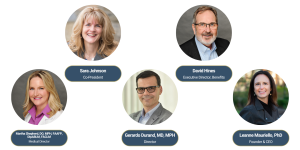
Employers have been identified as a crucial partner in advancing lifestyle as medicine to promote whole health. In an 18-month case study at 3 sites of 2 employers from different industries and geographic regions, HERO demonstrated how a framework designed to catalyze employers’ efforts to implement lifestyle as medicine can be effectively applied in real-world settings.
In close collaboration with Metro Nashville Public Schools and 3M, the HERO team conducted organizational audits; co-developed a comprehensive, systems-based implementation plan; provided ongoing, individualized technical assistance to the employers; and co-created a rigorous, multi-level outcome evaluation plan and sustainability strategies.
This webinar will share insights gleaned from the organizational audits; describe the specific tactics each participating employer elected to implement; summarize the results; and highlight lessons learned. A strategic planning tool for applying this framework in organizations with varying levels of organizational readiness to implement lifestyle as medicine will be shared.
This case study, as well as a previous initiative entitled “Activating Employers as Agents of Change in the Implementation of Lifestyle Medicine,” was funded by Ardmore Institute of Health.
- List 1 internal and 1 external strategy organizations can apply to advance their implementation of lifestyle as medicine to advance whole health.
- Describe three examples of tactics employers have implemented to advance lifestyle as medicine.
- Apply a strategic planning tool to help their own or other organizations advance lifestyle as medicine.
SPEAKERS
Sara Johnson, PhD, is the Co-President & CEO of ProChange Behavior Solution. She is also the Senior Research Fellow for the Health Enhancement Research Organization (HERO), immediate past Chair of the Art and Science of Health Promotion Conference, and immediate former Co-Editor of Knowing Well, Being Well. She has been the principal investigator on over $10 million in federally-funded research. Sara has been recognized as one of the Top Ten Most Influential Women Scholars in Health Promotion by the American Journal of Health Promotion. Previous honors have included receiving HERO’s Mark Dundon Research Award and being named one of the 50 on Fire by Rhode Island Inno and Health Care Services Woman to Watch by Providence Business News, as well as being selected as a Top 10 Health Promotion Professional by the Wellness Council of America. She has more than 40 publications.
Gerardo Durand, MD, MPH, is the Director of 3M Corporate Occupational Medicine and Clinical Services. In his role, Gerardo provides medical direction for 3M’s safety, industrial, and consumer business groups’ U.S. manufacturing sites and products’ medical safety, oversees the medical team in Latin America, and leads the Clinical Services team. With nearly 25 years of experience in occupational health, Gerardo has been a steadfast advocate for healthy work environments, championing the integration of occupational and non-occupational health interventions and continually striving to achieve meaningful population health indicators. A native of Peru, Gerardo earned his medical degree from Cayetano Heredia University and is board-certified in internal medicine as well as occupational and environmental medicine. He also holds a Master of Public Health degree from the Harvard T.H. Chan School of Public Health. In addition to his work at 3M, Gerardo serves on the board of directors for the Health Enhancement Research Organization (HERO).
Leanne Mauriello, PhD enters health transformation and innovation with a unique combination of expertise in behavior change science, deep roots in the digital health industry, and pioneering experience in adding “health” to healthcare. Dr. Mauriello has led teams across industries to imagine, build, test, implement, and scale engaging and effective innovative programs, products, and services focused on optimizing health and well-being. As a pioneer in Lifestyle and Culinary Medicine, she led transformation to bring lifestyle to the forefront of the system strategy for a large integrated health system. Currently Dr. Mauriello serves as the Executive Director of the Bonnie Wesorick Center for Healthcare Transformation at Grand Valley State University and leads Evolve Health Advisors, through which she advises organizations on the strategy and implementation of health transformation products and initiatives. Dr. Mauriello shares her thought leadership on facilitating lasting behavior change and healthcare transformation and innovation through NIH-funded research, numerous scientific publications, hundreds of presentations, workshops, and media interviews.
Martha E. Shepherd, DO, MPH, FAAFP, FACLM is a professor of medicine at Vanderbilt University Medical Center in the Department of Medicine, Division of General Internal Medicine and Public Health. She is triple board-certified in family medicine, integrative medicine, and lifestyle medicine and holds a Master of Public Health from Geisel School of Medicine at Dartmouth. Dr. Shepherd is the Medical Director for Vanderbilt Health at Metro Nashville Public Schools, a network of five award-winning, employer-based clinics providing whole-person care to employees of Nashville’s school district through an interdisciplinary team approach. She is active in the corporate health and wellness sector, serving on the Board of Directors for the Health Enhancement Research Organization (HERO), the Cigna Mid-South Physician Advisory Council, and the Medical Director Council for the National Association of Worksite Health Centers (NAWHC). Dr. Shepherd’s research focuses on employer health, health plan design, and best practices in population health. Her work emphasizes the importance of effective health communication and including patients in their care plan using shared decision-making tools, evidence-based clinical care pathways, and patient advisory group feedback. She is particularly interested in leveraging technology to enhance care quality and improve the experiences of both patients and providers. She has been an invited speaker at academic institutions, corporate health events and scientific meetings locally, nationally, and internationally. In 2024, she was named to the American Journal of Health Promotion’s “Best of 2024 List” of Health Promotion Researchers.
HOST
Karen Moseley is President & CEO of the Health Enhancement Research Organization (HERO), a national think tank dedicated to advancing best practices in workplace health and well-being. In collaboration with HERO members, Karen and the HERO team provide leadership in research and education by connecting science and practice to demonstrate the value of a health and well-being employer ecosystem.
Research supported by the Ardmore Institute of Health

Sponsored by Health Enhancement Research Organization (HERO), a designated provider of continuing education contact hours (CECH) in health education by the National Commission for Health Education Credentialing, Inc. This program is designated for Certified Health Education Specialists (CHES) and/or Master Certified Health Education Specialists (MCHES) to receive 1 total Category I continuing education contact hours. Provider ID#101039
Leading Through Innovation: How Higher Education Benefits are Managing GLP-1s
Original air date: November 20, 2025
Guest Panelists:

As many colleges and universities grapple with tighter budgets, declining enrollments, and rising operational costs, the importance of strategic workforce engagement has never been more apparent. GLP-1 drug management is at the heart of this issue, posing some of the most complex challenges to university benefits teams.
Join Truven by Merative for a panel discussion on the ways higher education employers and plans are transforming diabetes and obesity care with GLP-1 management. Hear from benefits leaders from the University of Michigan, Penn State University, and the University of Minnesota as they guide attendees through the evolving landscape of collegiate benefits, offering perspectives and innovative solutions to balancing access, clinical impact, and financial sustainability for GLP-1 treatment.
Learning Objectives:
After attending this webinar, participants will be able to:
-
Apply real-world strategies and tools that have proven successful in elevating employee engagement and outcomes.
-
Integrate analytics and storytelling through dashboards, a method that connects data to strategic planning, performance measurement, and campus-wide initiatives.
-
Describe how top university leadership and benefit teams respond to periods of disruption and ambiguity—even when thinking about pharmacy benefit options.
SPEAKERS
Katherine Shanahan (Moderator)
Senior Pharmacy Analytic Advisor
Truven by Merative
Katherine Shanahan is a pharmaceutical industry expert, assisting commercial and government payers, providers, and research teams in developing actionable pharmacy-related analytics, strategies, and programs. With a background in pharmacology, toxicology, drug research and development, she began working with payers over a decade ago, driven by the emergence of specialty medication and the opioid crisis. Katherine supports efforts to identify cost saving opportunities, improve prescribing quality, reduce misuse and abuse of medications, and lower barriers to effective treatment in order to make healthcare more affordable and effective for plans and patients alike.
Stephen Lott
Director of Pharmacy Benefits
University of Michigan
Dr. Stephen Lott is the Director of Pharmacy Benefits and PGY1 Managed Care Residency Program Director of the University of Michigan Prescription Drug Plan. In his current role, he is responsible for the management and oversight of pharmacy utilization across the University’s employee population. He serves as an adjunct clinical instructor for the University of Michigan College of Pharmacy, where he precepts pharmacy students and provides didactic lectures in various courses on health economics, outcomes research, and managed care. Dr. Lott also serves as an Academy of Managed Care Pharmacy (AMCP) Diplomat for the University of Michigan.
Prior to his role with the University, he managed utilization review services for multiple payer groups, collaborated with payers and consultants on clinical utilization requirements and formulary strategies, and worked with industry partners and academic institutions on collaborative outcomes-based research initiatives. Dr. Lott obtained a Bachelor of Science (BS) degree with honors in biology from the University of Georgia, a Doctorate of Pharmacy (PharmD) degree from the University of Michigan, and a Master of Pharmaceutical Science (MS) degree in pharmaceutical outcomes and policy from the University of Florida.
Rita Bartolacci
Benefits Strategist, Healthcare and Well-being
Penn State University
Rita Bartolacci is the Benefits Strategist for Penn State. She holds a Bachelor of Science Degree in Psychology from DeSales University. She has worked in governmental and healthcare Human Resources at various senior leadership levels for 25 years. She also obtained her Pennsylvania Nursing Licensure to provide additional healthcare background to her HR experience. She joined Penn State a little over six years ago as an HR Consultant and then HR Strategic Partner. She moved into her new position as the Benefits Strategist for the University in early 2020. In this role, Rita manages the Healthcare and Wellbeing Strategy for Penn State as well as working on the design and administration of the University’s overall benefit programs and Total Rewards Strategy. Rita enjoys combining her psychology, nursing and Human Resources backgrounds as well as her healthcare and benefits expertise to analyze claims data, strategize on plan design, promote employee well-being and develop employee-centered, value-based healthcare and Total Rewards Strategies for Penn State University.
HOST:
Karen Moseley is President & CEO of the Health Enhancement Research Organization (HERO), a national think tank dedicated to advancing best practices in workplace health and well-being. In collaboration with HERO members, Karen and the HERO team provide leadership in research and education by connecting science and practice to demonstrate the value of a health and well-being employer ecosystem.
Sponsored by Health Enhancement Research Organization (HERO), a designated provider of continuing education contact hours (CECH) in health education by the National Commission for Health Education Credentialing, Inc. This program is designated for Certified Health Education Specialists (CHES) and/or Master Certified Health Education Specialists (MCHES) to receive 1 total Category I continuing education contact hours. Provider ID#101039
Progress in Health Promotion: Has There Been Enough in the Past 20 Years?
Original air date: October 14, 2025
Guest Panelists:

Sara Johnson , PhD
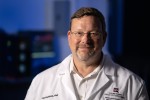
Jay Maddock, PhD, FAAHB
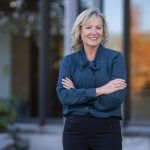
Amy Eyler, PhD
Persistent and pervasive challenges with physical, emotional, social, and financial well-being raise questions about the success of our efforts in promoting health and well-being in the past two decades. Despite concerted efforts of multidisciplinary scientists and practitioners, rates of obesity, anxiety, depression, burnout, loneliness, lack of social connection, financial distress, and disconnection from nature remain concerningly high.
This webinar will summarize the findings of a systematic comparative analysis that examined progress in health promotion literature from 2003 to 2023. A team compared the articles published in five top-tier health promotion journals (American Journal of Health Promotion, Health Education and Behavior, Health Psychology, Annals of Behavioral Medicine, and
American Journal of Preventive Medicine) in 2003 to those published in 2023. Only articles relating to primary research studies with a health promotion focus or behavior outcome were included. Reviews, commentaries, and studies that did not have a health behavior focus (e.g. disease focus or health services research) were excluded. Each paper was reviewed in depth to extract year of publication, journal, health behavior topic, study design, data collection methods, intervention delivery method (if applicable), theoretical framework, sample size, length of follow-up (if applicable), population characteristics, and setting.
Join us to reflect on insights about where we’ve been and where we are going as a field – as well as how we can accelerate our progress in the next five years.
Learning Objectives
Following this session, participants will be able to:
- Describe the amount of progress in health promotion literature in the past two decades.
- Identify three strategies for designing or collaborating on applied health promotion research with short-term practical implications.
- Name three key areas in which health promotion research needs to be advanced.
SPEAKERS
Sara Johnson, PhD, is the Co-President & CEO of ProChange Behavior Solution. She is also the Senior Research Fellow for the Health Enhancement Research Organization (HERO), immediate past Chair of the Art and Science of Health Promotion Conference, and immediate former Co-Editor of Knowing Well, Being Well. She has been the principal investigator on over $10 million in federally-funded research. Sara has been recognized as one of the Top Ten Most Influential Women Scholars in Health Promotion by the American Journal of Health Promotion. Previous honors have included receiving HERO’s Mark Dundon Research Award and being named one of the 50 on Fire by Rhode Island Inno and Health Care Services Woman to Watch by Providence Business News, as well as being selected as a Top 10 Health Promotion Professional by the Wellness Council of America. She has more than 40 publications.
Amy A. Eyler is a Professor at the Brown School, Washington University in St. Louis. The focus of her research is how policies and the built environment impact chronic disease prevention, mainly through behaviors such as physical activity and healthy eating. She is also Co-Director of the Nature and Health Alliance at WashU. She is the author of over 100 peer-reviewed publications and three books, including one of the first textbooks on Research Methods for Public Health. In addition to her research, Dr. Eyler is an advocate for gender equity at Washington University. She is a past president of the Association for Women Faculty and served as a Gender Equity Faculty Fellow in the Office of the Provost for six years. She is past chair of the Faculty Senate Council and Chair of the Danforth Campus Conflict of Interest Review Committee. Dr. Eyler has a bachelor’s degree in community health, a master’s degree in physical education from Ohio University, and a doctorate in public health from Oregon State University. She also serves as Chair of the Executive Board of Girls on the Run St. Louis and volunteers throughout her community. https://brownschool.wustl.edu/Faculty-and-Research/Pages/Amy-Eyler.aspx
Dr. Jay Maddock is a Regents Professor in the Department of Environmental and Occupational Health and Director of the Center for Health and Nature. Previously he served as Dean of the School of Public Health and Chief Wellness Officer at Texas A&M University and as Director and Chair of the University of Hawaii Public Health Program. His research has been featured in several national and international media outlets including The Today Show, CNN, Le Monde, the BBC, Eating Well, Prevention and Good Housekeeping and he has authored over 150 scientific articles and has served as principal investigator on over $18 million in extramural funding. He has received numerous awards throughout his career from the American Public Health Association, the Surgeon General, the US Secretary of Health and Human Services and many
others. He is internationally recognized for his research in health behavior and social ecological approaches to increasing physical activity and increasing time spent in nature. Dr. Maddock received his undergraduate degree in psychology and sociology, magna cum laude, from Syracuse University and his Master’s and Doctorate degrees in experimental psychology from the University of Rhode Island.
CO-HOSTS
Karen Moseley is President & CEO of the Health Enhancement Research Organization (HERO), a national think tank dedicated to advancing best practices in workplace health and well-being. In collaboration with HERO members, Karen and the HERO team provide leadership in research and education by connecting science and practice to demonstrate the value of a health and well-being employer ecosystem.
Sponsored by Health Enhancement Research Organization (HERO), a designated provider of continuing education contact hours (CECH) in health education by the National Commission for Health Education Credentialing, Inc. This program is designated for Certified Health Education Specialists (CHES) and/or Master Certified Health Education Specialists (MCHES) to receive 1 total Category I continuing education contact hours. Provider ID#101039
Why Is Everyone So Damn Grumpy?
Original air date: September 4, 2025
Guest Panelists:

Ron Goetzel, PhD, Johns Hopkins Bloomberg School of Public Health
We are bombarded with stories about war, famine, crime, climate disaster, social unrest, disease, lack of civility, and political divisiveness – delivered ad infinitum via Tik Tok, Instagram, X, Facebook, and other social media.
It turns out that doom scrolling is not good for one’s mental health and well-being. Not only that, money, power, fame, stuff, and more stuff can’t buy happiness (beyond a minimum threshold, of course). Just look at Elon, Jeff, Mark, and Donald.
So, what can make us happy? Friends, family, faith — and wait for it — work. Work can be a happy place when there is an intentional culture promoting mental health and well-being. What does it take?
Psychosocially, instilling positive emotions, creating “flow,” highlighting organizational support, building bonding relationships, and communicating a sense of purpose. Add fun, and work becomes a fulfilling life experience, and of course, a way to pay bills.
The session will not just wax poetic. It will present findings from recent studies and literature reviews uncovering the sources and impacts of toxic work environments that cause distress and burnout. On the bright side, it will also offer solutions that extend beyond telling employees to “grin and bear it.” The session builds upon traditional psychosocial interventions aimed at enhancing resilience by introducing organizational and environmental stressors and solutions to improve the workplace. The session will recall a case study of protective factors shown to be effective in ameliorating stressors experienced by front-line hospital food service workers during the height of the COVID-19 pandemic.
Finally, the session will conclude by answering the question, “what is Ron Goetzel thinking about and what are his solutions to the world’s problems?”
Learning Objectives
- Participants will articulate factors causing stress arising from psychosocial, organizational, and environmental (POE) sources.
- Participants will describe possible solutions to distress by drawing from research unearthed in recent literature reviews on mental health and well-being in the workplace.
- Participants will articulate a basic framework for “calming the waters” on stress and anxiety on a societal level.
SPEAKER
Ron Goetzel is a Senior Scientist and Director of the Institute for Health and Productivity Studies (IHPS) at the Johns Hopkins Bloomberg School of Public Health. The mission of the IHPS is to bridge the gap between academia, the business community, and the healthcare policy world – bringing academic resources into policy debates and day-to-day business decisions and bringing worker health and productivity management concerns to academia. Dr. Goetzel is responsible for leading innovative measurement and evaluation projects for healthcare purchaser, provider, government, and foundation clients engaged in cutting-edge research focused on the relationship between health and well-being, medical costs, and work-related productivity. He is an internationally recognized and widely published expert in health and productivity management (HPM), return-on-investment (ROI), program evaluation, and outcomes research. Dr. Goetzel has published well over 200 peer-reviewed articles and book chapters and frequently presents at international business and scientific forums.
HOST
Paul Terry, PhD, is a Senior Fellow at HERO where he leads our learning agenda. Paul is also Editor-in-Chief of the American Journal of Health Promotion. His prior positions were president and CEO at HERO, president and CEO at StayWell Health Management, and president and CEO at The Park Nicollet Institute. Paul is the author of four books and over 200 research and professional papers. A study he led won the C. Everett Koop National Health Award. He was awarded two Fulbright Senior Scholarships and served on advisory councils for The National Academy of Sciences, the American Heart Association, the CDC, the University of North Carolina, Gillings School of Global Public Health, and the Harvard T.H. Chan School of Public Health.
Sponsored by Health Enhancement Research Organization (HERO), a designated provider of continuing education contact hours (CECH) in health education by the National Commission for Health Education Credentialing, Inc. This program is designated for Certified Health Education Specialists (CHES) and/or Master Certified Health Education Specialists (MCHES) to receive 1 total Category I continuing education contact hours. Provider ID#101039
Kindness by Design: How Active Listening Disrupts the Cycle of Incivility
Original air date: August 13, 2025
Guest Panelists:

MJ Shaar, MAPP, HERO Senior Education Fellow
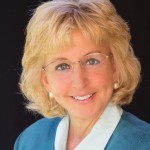
Wendy Lynch, PhD, HERO Senior Education Fellow
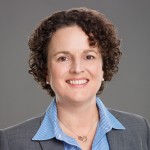
Host: Karen Moseley is President & CEO, HERO
Incivility in the workplace is on the rise, and it hurts all of us. Whether it’s hurtful dismissals or plain disrespect, incivility spreads beyond the perpetrator-victim relationship and undermines the psychological safety of witnesses as well. To combat this toxicity, we need an antidote that not only elevates the quality of our interactions but also spreads quickly and widely. That antidote is kindness. But how can we transition from incivility to kindness in one fell swoop? The active ingredient that bridges this gap is active listening. When we listen to understand rather than to respond, it becomes nearly impossible to act with incivility. In a world where few seem to have time to truly listen anymore, authentic listening is a precious gift.
Join us on August 13th, 2025, as we explore these transformative concepts with Wendy Lynch, PhD and MJ Shaar, MAPP. This interactive webinar will give you the opportunity to ask your questions live while helping you:
- Understand how active listening serves as a key ingredient to overcoming incivility in the workplace
- Learn about the benefits that come when we move beyond random acts of kindness to adopting an intentional, systematic strategy for cultural change
- Develop practical strategies to implement active listening techniques that foster psychological safety and build stronger workplace relationships
Don’t miss this opportunity to learn how simple shifts in communication can dramatically transform your workplace culture!
After this educational event, participants will be able to:
- Define workplace incivility and its broader impact on organizational culture, including its effects on psychological safety for both direct targets and bystanders.
- Explain the role of active listening in counteracting incivility and promoting respectful, empathetic communication in professional settings.
- Differentiate between random acts of kindness and a structured, intentional approach to kindness as a cultural strategy within the workplace.
- Apply evidence-based active listening techniques to enhance interpersonal interactions and foster a culture of psychological safety.
- Design a preliminary action plan to implement a kindness-centered communication strategy tailored to your organizational context.
SPEAKERS
MJ Shaar, MAPP, HERO Senior Education Fellow As one of the pioneers in kindness-driven performance, MJ’s work proves that kind people don’t finish last. They lead the pack in creating thriving, high-performing organizations and create ripple effects that extend beyond the workplace into our home lives and broader communities.
Armed with a Bachelor’s in Organizational Behavior and a Master’s in Applied Positive Psychology, MJ is a sought-after corporate trainer and keynote speaker. She enjoys partnering with forward-thinking organizations to elevate employee engagement, strengthen team dynamics, and develop inspiring leaders. In her role as Senior Education Fellow at HERO, MJ’s focus is on creating educational programs aiming to improve employee and community health and well-being. MJ’s evidence-based approach marries scientific evidence with personal stories and real-world applications.
She is a regular collaborator for nationally-recognized wellness institutions, such as The American Institute of Preventive Medicine, Health Enhancement Systems, and WellCoaches. She is also an occasional guest speaker at many Ivy League Universities.
Wendy Lynch, PhD, HERO Senior Education Fellow As a research scientist working in the business world, Dr. Wendy Lynch learned to straddle commercial and academic goals, converting analytic results into market success. Through her experience in diverse work settings she became familiar with (and fascinated by) the unique language of each. That experience led to her true passion of promoting clear and meaningful conversation that promotes mutual understanding and success. A consultant to numerous Fortune 100 companies, her career includes faculty at the UC Health Sciences Center, VP of Strategic Development at HCMS, Principal at Mercer HR and Board of Directors for two publicly-traded firms. Now Dr. Lynch runs her own consulting firm conducting Big Data analytic projects in Human Capital Management. In every instance and every setting, communication is key.
A frequent speaker, and author of over 100 peer-reviewed publications, Dr. Lynch has also published four books, including, Get to What Matters: Tools to Transform Conversations at Work.
HOST
Karen Moseley is President & CEO of the Health Enhancement Research Organization (HERO), a national think tank dedicated to advancing best practices in workplace health and well-being. In collaboration with HERO members, Karen and the HERO team provide leadership in research and education by connecting science and practice to demonstrate the value of a health and well-being employer ecosystem.
Sponsored by Health Enhancement Research Organization (HERO), a designated provider of continuing education contact hours (CECH) in health education by the National Commission for Health Education Credentialing, Inc. This program is designated for Certified Health Education Specialists (CHES) and/or Master Certified Health Education Specialists (MCHES) to receive 1 total Category I continuing education contact hours. Provider ID#101039
This webinar is available to members only. Log in to view.
Clinician Well-Being: Co-Creating a Framework for Thriving in Modern Medicine
Original air date: July 22, 2025
Guest Panelists:
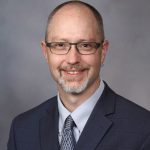
Colin P West, MD, PhD
Workforce well-being has become one of the most pressing challenges within healthcare organizations, directly impacting healthcare professionals and the quality of care they provide. This webinar will briefly detail the critical drivers of burnout and well-being, focusing on the key factors that contribute to both distress and well-being within healthcare settings. This session will also describe the recent development and implementation of a comprehensive framework for employee well-being at Mayo Clinic, co-created to integrate and reflect the voice and needs of the employees themselves. Participants will gain valuable insights into strategies for identifying and addressing burnout, fostering a healthier work environment, and promoting learning and working environments within which healthcare teams can thrive. By exploring the framework for evidence-based approaches to reducing burnout and supporting healthcare professional well-being, this session will demonstrate how leadership to promote a more engaged and supported workforce can enhance overall patient care and improve organizational outcomes.
After this educational event, participants will be able to:
- Identify the primary drivers of burnout and well-being among healthcare professionals and their impact on workforce performance and patient care.
- Describe evidence-based strategies and organizational practices that support healthcare professional well-being and mitigate burnout.
- Examine the development and application of Mayo Clinic’s comprehensive employee well-being framework, including its co-creation process with staff input.
- Assess the role of leadership in cultivating a supportive work environment that enhances employee engagement, resilience, and organizational outcomes.
SPEAKER
Originally from Seattle, Dr. West received his MD and PhD in Biostatistics from the University of Iowa in 1999. He completed residency and chief residency in internal medicine at Mayo Clinic, and joined the faculty in General Internal Medicine in 2004. He is currently Professor of Medicine, Medical Education, and Biostatistics at Mayo. He is Director of the Mayo Clinic Program on Physician Well-Being and was named the first Medical Director of Employee Well-Being for Mayo Clinic in 2022. Dr. West’s research has focused on medical education and physician well-being, and has been widely published in prominent journals including Lancet, JAMA, Annals of Internal Medicine, and JAMA Internal Medicine.
CO-HOSTS
Paul Terry, PhD, is a Senior Fellow at HERO where he leads our learning agenda. Paul is also Editor-in-Chief of the American Journal of Health Promotion. His prior positions were president and CEO at HERO, president and CEO at StayWell Health Management, and president and CEO at The Park Nicollet Institute. Paul is the author of four books and over 200 research and professional papers. A study he led won the C. Everett Koop National Health Award. He was awarded two Fulbright Senior Scholarships and served on advisory councils for The National Academy of Sciences, the American Heart Association, the CDC, the University of North Carolina, Gillings School of Global Public Health, and the Harvard T.H. Chan School of Public Health.
Wendy Lynch, PhD, HERO Senior Education Fellow As a research scientist working in the business world, Dr. Wendy Lynch learned to straddle commercial and academic goals, converting analytic results into market success. Through her experience in diverse work settings she became familiar with (and fascinated by) the unique language of each. That experience led to her true passion of promoting clear and meaningful conversation that promotes mutual understanding and success. A consultant to numerous Fortune 100 companies, her career includes faculty at the UC Health Sciences Center, VP of Strategic Development at HCMS, Principal at Mercer HR and Board of Directors for two publicly-traded firms. Now Dr. Lynch runs her own consulting firm conducting Big Data analytic projects in Human Capital Management. In every instance and every setting, communication is key.
A frequent speaker, and author of over 100 peer-reviewed publications, Dr. Lynch has also published four books, including, Get to What Matters: Tools to Transform Conversations at Work.
Sponsored by Health Enhancement Research Organization (HERO), a designated provider of continuing education contact hours (CECH) in health education by the National Commission for Health Education Credentialing, Inc. This program is designated for Certified Health Education Specialists (CHES) and/or Master Certified Health Education Specialists (MCHES) to receive 1 total Category I continuing education contact hours. Provider ID#101039
This webinar is available to members only. Log in to view.
Dare to Thrive: Building Cultures of Health at Work
Original air date: June 25, 2025
Guest Panelists:

Laurie Whitsel, PhD, FAHA

Nico Pronk, PhD, MA

Mary T. Imboden, PhD
US adults spend the majority of their waking hours working. This makes the workplace, whether a hybrid, remote, or home-based setting, a key place to support employee health and well-being. Every company has a culture that is influenced by leaders, which can affect the health of the workforce in either positive or detrimental ways. Employers can intentionally create a culture of healthy living at their workplaces through establishing organizational policies, systems, work processes, architectural design practices, and employment benefits designs to support healthy behaviors for all employees. Organizational leaders also play a critical role in modeling these healthy behaviors and in ensuring resources are available and accessible to do so. In this webinar we will discuss various perspectives and definitions of a culture of health and healthy living at the workplace, posit that a healthy workplace culture represents a cumulative set of factors acting together to shape a positive work environment, discuss how healthy workplace cultures may be created, and provide support for the notion that a healthy workplace culture is good for the company’s bottom line.
Learning objectives: Following this webinar, participants will be able to:
- Describe at least three key elements needed to achieve a healthier workplace culture.
- Identify at least five health and productivity related benefits that accrue in organizations with healthier cultures.
- List at least five components of a comprehensive approach to workplace health and well-being.
- Discuss the role of leadership support in building a culture of health and offer at least three examples of how leaders can demonstrate their support.
- Discuss the role of community connectivity and volunteerism policies in building healthier workplace cultures.
SPEAKERS
Dr. Mary T. Imboden is a Principal Research Scientist in Providence Heart Institute’s Center for Cardiovascular Analytics, Research and Data Science where she oversees system-wide cardiovascular prevention and health equity research. Mary also serves as a research fellow at the Health Enhancement Research Organization (HERO), where she manages the HERO Worker Well-Being Clearinghouse, Powered by the NIOSH WellBQ and HERO Health and Well-being Best Practices Scorecard in Collaboration with Mercer. She also serves as a co-editor of the Knowing Well, Being Well section of the American Journal of Health Promotion. Mary has served as an advisory member on several local and national committees, including the Physical Activity Policy Research and Evaluation Network and the Wellbeing Think Tank. She has published more than 50 peer reviewed articles and book chapters and in 2024 received the American Journal of Health Promotion’s recognition of “Twenty under Forty” for excellence in health promotion. Mary obtained her doctorate in Human Bioenergetics with an emphasis in Clinical Exercise Physiology from Ball State University’s Human Performance Laboratory and her Master’s degree in Health and Exercise Science from Wake Forest University.
Dr. Laurie Whitsel is a recognized leader in translating science and evidence into impactful public health policy. Currently the national vice president of policy research for the American Heart Association (AHA), she helps to translate science into impactful public policy at a national level in the areas of cardiovascular disease and stroke prevention and health promotion. As the senior advisor to the Physical Activity Alliance, the nation’s broadest coalition dedicated to promoting physical activity for health, Dr. Whitsel helps to lead national policy and systems change to integrate physical activity assessment, prescription and referral into health care delivery and improve population health. She has served on the boards of several organizations, on expert advisory groups with think tanks, funders and government agencies. She is an influential researcher, publishing more than 100 peer-reviewed articles and book chapters. She presents at national conferences on prevention issues and evidence-based policy making. She serves as an expert peer reviewer for several scientific journals and is a consultant on research grant teams. She is a regular lecturer at Columbia University. In 2023, Dr. Whitsel was recognized as one of “The Most Influential Women Leaders in Health Promotion” and was also honored with the Mark Dundon Research Award by the Health Enhancement Research Organization. In 2024, she received the American College of Sports Medicine’s Exercise is Medicine Global Leadership Award.
I can contribute the work we are doing to integrate physical activity into benefit design and larger policy and systems change. Also the relationship between the transformations happening in health care, affordability, and benefit design and the role of employers and leadership role modeling.
Dr. Nico Pronk serves as president of the HealthPartners Institute and chief science officer at HealthPartners, Inc., where his work is focused on connecting scientific evidence of effectiveness with practical applications of programs and practices, policies and systems that measurably improve population health and well-being. Dr. Pronk is a recognized global scholar in health education, health promotion, and population health and well-being. Among a wide variety of appointments, his leadership has included co-chairing the scientific advisory committee for Healthy People 2030 to set the health goals for the nation, a 14-year membership on the Community Preventive Services Task Force at the CDC, membership on the Armed Forces Epidemiological Board, and board member for the health Enhancement Research Organization (HERO). Additionally, he served for two consecutive terms as the chair for the Roundtable on Obesity Solutions, as a member of the Food and Nutrition Board, and coordinated many public workshops at the National Academies of Sciences, Engineering and Medicine. Dr. Pronk is an active researcher and educator, publishing over 450 articles, book chapters, and 2 books while teaching and conducting research with colleagues in the Department of Social and Behavioral Sciences at the Harvard T.H. Chan School of Public Health in Boston, Massachusetts and the department of Health Policy and Management at the University of Minnesota, School of Public Health in Minneapolis, Minnesota. Dr. Pronk has been recognized with the 2012 NIH Merit Award, the 2013 HERO Mark Dundon Research Award, the 2016 Harvard TH Chan School of Public Health Excellence in Teaching Award, and is a Fellow of the American College of Sports Medicine and the Association for Worksite Health Promotion.
HOST
Paul Terry, PhD, is a Senior Fellow at HERO where he leads our learning agenda. Paul is also Editor-in-Chief of the American Journal of Health Promotion. His prior positions were president and CEO at HERO, president and CEO at StayWell Health Management, and president and CEO at The Park Nicollet Institute. Paul is the author of four books and over 200 research and professional papers. A study he led won the C. Everett Koop National Health Award. He was awarded two Fulbright Senior Scholarships and served on advisory councils for The National Academy of Sciences, the American Heart Association, the CDC, the University of North Carolina, Gillings School of Global Public Health, and the Harvard T.H. Chan School of Public Health.
Sponsored by Health Enhancement Research Organization (HERO), a designated provider of continuing education contact hours (CECH) in health education by the National Commission for Health Education Credentialing, Inc. This program is designated for Certified Health Education Specialists (CHES) and/or Master Certified Health Education Specialists (MCHES) to receive 1 total Category I continuing education contact hours. Provider ID#101039
This webinar is available to members only. Log in to view.
Unseen Challenges: How Chronic Conditions Impact the Workplace and Ways Employers Can Offer Support
Original air date: May 6, 2025
Guest Panelists:

Gillian K. SteelFisher, PhD, MSc, Principal Research Scientist and Director, Harvard Opinion Research Program

Emma Dewhurst, MPP, Senior Program & Research Associate, de Beaumont Foundation
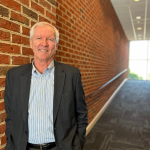
Host: Paul Terry, PhD, HERO
Millions of workers are managing conditions like diabetes, hypertension, heart disease, and asthma, often without the support they need. A new national poll by Harvard T.H. Chan School of Public Health and the de Beaumont Foundation assesses the impact of chronic health conditions in the workplace, highlighting the toll chronic conditions have on both employers and employees. The poll, conducted among a national sample of U.S. employees, found that three-fourths (76%) of those with chronic conditions need to manage their conditions during work hours. Yet a majority (60%) have not formally disclosed their conditions to their employer. Further, one-third of all employees (33%) say they have helped family members with their chronic conditions in the past year, and nearly half of those helping family members (45%) frequently needed to do so during working hours.
While employees struggle in silence, productivity drops, absenteeism rises, and health care costs climb. But without visibility into how your employees — and your business — are affected, you may be missing opportunities to provide support. This webinar will provide an in-depth presentation of the poll’s findings along with a discussion of opportunities for employers to better support employees who are managing their own or their family’s chronic conditions.
-
Explain the interconnectedness between public health and thriving businesses and the value proposition of why businesses and public health should work closely together.
-
Describe the effect of chronic conditions on employee well-being, productivity, and absenteeism.
-
Determine actions employers can take to support employes who are managing their own or their family’s chronic conditions.
HOST
Paul Terry, PhD, is a Senior Fellow at HERO where he leads our learning agenda. Paul is also Editor-in-Chief of the American Journal of Health Promotion. His prior positions were president and CEO at HERO, president and CEO at StayWell Health Management, and president and CEO at The Park Nicollet Institute. Paul is the author of four books and over 200 research and professional papers. A study he led won the C. Everett Koop National Health Award. He was awarded two Fulbright Senior Scholarships and served on advisory councils for The National Academy of Sciences, the American Heart Association, the CDC, the University of North Carolina, Gillings School of Global Public Health, and the Harvard T.H. Chan School of Public Health.
GUEST SPEAKERS
Emma Dewhurst, MPP, is a Senior Program and Research Associate at the de Beaumont Foundation. Her work includes an array of evaluation, research, and program efforts, with a focus on translating research to strengthen the Foundation’s impact. Emma manages the Foundation’s public opinion polling and message testing research and leads evaluation and research for the Public Health Communication
Gillian SteelFisher, Ph.D., M.Sc., is a Principal Research Scientist at the Harvard T.H. Chan School of Public Health and serves as the Director of the Harvard Opinion Research Program (HORP). Grounded in more than 25 years of experience conducting public opinion surveys both domestically and globally, Dr. SteelFisher’s work focuses on the intersection between research and practical application in public health communication. Dr. SteelFisher teaches applied survey methodology at Harvard T.H. Chan School of Public Health. She received her Ph.D. in Health Policy from Harvard University and her Masters in health behavior and communication from Harvard School of Public Health. She is the former President of the New England Chapter of the American Association for Public Opinion Research (NEAAPOR) and a Thought Leader for the National Public Health Information Coalition (NPHIC).
Sponsored by Health Enhancement Research Organization (HERO), a designated provider of continuing education contact hours (CECH) in health education by the National Commission for Health Education Credentialing, Inc. This program is designated for Certified Health Education Specialists (CHES) and/or Master Certified Health Education Specialists (MCHES) to receive 1 total Category I continuing education contact hours. Provider ID#101039
This webinar is available to members only. Log in to view.
Impact of Lifestyle Changes on Men’s Health and Chronic Disease Management
Original air date: January 30, 2025
Guest Panelists:
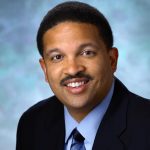
Kevin L. Billups, MD, DipABLM, Professor of Internal Medicine & Urology, Director of the Men's Health & Lifestyle Medicine Program, Meharry Medical College

Co-Host: Karen Moseley, HERO President & CEO
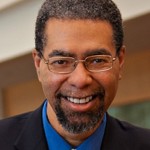
Co-Host: Dexter Shurney, MD, HERO Board Chair and President of Blue Zones Wellbeing Institute
The prevalence of preventable, diet-related chronic medical conditions, particularly obesity, diabetes, and hypertension, have reached epidemic proportions in the US. Workplace interventions that enable employee support, accountability, and self-care are needed. This webinar outlines a pilot project using a virtual 90-day comprehensive program that integrates food, nutrition, and lifestyle changes with medical education to help participants improve or reverse chronic metabolic health conditions and weight challenges.
The intervention is being expanded at Meharry Medical College to include faculty, staff, and students (men and women) for a period of 1 year. The expanded program will also measure changes in emotional health (depression, chronic stress/anxiety, cognitive changes) and the impact of trust on health outcomes.
Learning Objectives: After attending this webinar, participants will be able to:
- List the key components of metabolic health that contribute to chronic medical conditions, such as diabetes, obesity, and hypertension.
- Describe the impact of a virtual, cohort-based education intervention to enable employee self-care for chronic medical conditions by providing support, accountability, and a sense of community.
- Determine how a virtual lifestyle education program can build trust with the participants that will improve outcomes for metabolic health and emotional health concerns.
GUEST SPEAKER
Kevin L. Billups, MD, DipABLM, is a distinguished Urologist and Men’s Health Specialist with over 30 years of experience. He specializes in Men’s Health and Sexual Medicine, particularly in managing erectile dysfunction and testosterone deficiency related to chronic conditions like diabetes, obesity, and heart disease. Dr. Billups employs a holistic approach that combines traditional medication with lifestyle modifications, including improved nutrition, exercise, and mental well-being. A graduate of Harvard University and The Johns Hopkins University School of Medicine, he completed his Urology residency at the Johns Hopkins Brady Urological Institute and a fellowship in Urology, Sexual Medicine, and Vascular Physiology at the University of Virginia. Currently, he serves as a Professor of Internal Medicine & Urology and Director of the Men’s Health & Lifestyle Medicine Program at Meharry Medical College in Nashville, TN.
CO-HOSTS
Karen Moseley is President & CEO of the Health Enhancement Research Organization (HERO), a national think tank dedicated to advancing best practices in workplace health and well-being. In collaboration with HERO members, Karen and the HERO team provide leadership in research and education by connecting science and practice to demonstrate the value of a health and well-being employer ecosystem.
Dexter Shurney, MD, is the HERO Board Chair and President of Blue Zones Wellbeing Institute. He has an extensive background in health care management and policy and is the immediate Past-President of the American College of Lifestyle Medicine. Dr. Shurney is board-certified in general preventive medicine and public health and serves on numerous boards.
This webinar is available to members only. Log in to view.
Workplace Culture of Health & Employee Well-being
Original air date: September 12, 2024
Guest Panelists:

Michele W. Marenus, PhD, Personify Health; George Mason University
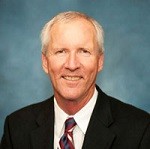
Host: Paul Terry, PhD, HERO
A strong workplace culture of health can have significant benefits on employee health and well-being. Despite its well-known importance, there are many different definitions and measures of the workplace health culture. In this webinar, we will discuss definitions, measurement, and recent study findings related to physical activity, mental health, burnout, and remote work. Finally, we will discuss how building a culture of health at the organizational level can impact behavior change.
Learning Objectives: After attending this webinar, participants will be able to:
- Define a strong workplace culture of health.
- Describe the benefits of having a healthy workplace culture.
- Discuss the connection between organizational culture and the potential impact on individual behavior.
GUEST SPEAKER
Michele W. Marenus, PhD, is a Research Scientist at Personify Health and an Adjunct Faculty at George Mason University. Michele’s background encompasses both academic and industry research projects. Her research centers on workplace health, particularly examining how culture impacts health, physical activity, and emotional well-being. She has experience assessing workplace culture of health through her role at Virgin Pulse/Personify Health in addition to supporting other research initiatives. She earned her master’s degree from the Harvard Graduate School of Education and her doctorate from the University of Michigan.
HOST
Paul Terry, PhD, is a Senior Fellow at HERO where he leads our learning agenda. Paul is also Editor-in-Chief of the American Journal of Health Promotion. His prior positions were president and CEO at HERO, president and CEO at StayWell Health Management, and president and CEO at The Park Nicollet Institute. Paul is the author of four books and over 200 research and professional papers. A study he led won the C. Everett Koop National Health Award. He was awarded two Fulbright Senior Scholarships and served on advisory councils for The National Academy of Sciences, the American Heart Association, the CDC, the University of North Carolina, Gillings School of Global Public Health, and the Harvard T.H. Chan School of Public Health.
This webinar is available to members only. Log in to view.
Nativity Differences in Etiology and Patterns of Health Risk and Behaviors: Implications for Research and Practice
Original air date: August 21, 2024
Guest Panelists:

Wura Jacobs, PhD, Indiana University School of Public Health-Bloomington

Host: Paul Terry, PhD, HERO
The period of young adulthood is a critical stage for health risk behaviors, but health risks are not uniformly distributed even within population subgroups. Wura Jacobs, PhD, will present on the complexities and nuances of substance use risks among Black young adults, highlighting the distinct experiences and challenges faced by U.S.- and immigrant/foreign-born Black young adults. Attendees will gain useful insight on the need for developing tailored, equitable, and culturally competent healthcare interventions and programs crucial for achieving equitable health outcomes and eliminating health disparities.
Guest Speaker:
Wura Jacobs, PhD, Assistant Professor at Indiana University School of Public Health-Bloomington, is a social and substance use epidemiologist. Her work seeks to examine and elucidate the biopsychosocial and environmental determinants of adolescent and young adults’ health risk behaviors to improve behavioral health equity. Her body of work primarily revolves around adolescent and young adults’ mental health and substance use. She uses quantitative methodologies and social network analysis, to 1) contribute to the body of knowledge and practice focused on combatting harmful risk factors, and 2) facilitate expansion of protective behavioral, socio-environmental, and cultural factors associated with health risks and risk behaviors among adolescents and young adults, especially racial/ethnic minority adolescents and young adults who are most vulnerable.
Host:
Paul Terry, PhD, is a Senior Fellow at HERO where he leads our learning agenda. Paul is also Editor-in-Chief of the American Journal of Health Promotion. His prior positions were president and CEO at HERO, president and CEO at StayWell Health Management, and president and CEO at The Park Nicollet Institute. Paul is the author of four books and over 200 research and professional papers. A study he led won the C. Everett Koop National Health Award. He was awarded two Fulbright Senior Scholarships and served on advisory councils for The National Academy of Sciences, the American Heart Association, the CDC, the University of North Carolina, Gillings School of Global Public Health, and the Harvard T.H. Chan School of Public Health.
This webinar is available to members only. Log in to view.
Understanding the Food Service Guidelines Policy Landscape: A Tool for Prioritizing Healthy Food Access in Worksites and Communities
Original air date: June 26, 2024
Guest Panelists:

Amy Lowry Warnock, MPA, Centers for Disease Control and Prevention (CDC)

Diane Harris, PhD, MPH, Centers for Disease Control and Prevention (CDC)
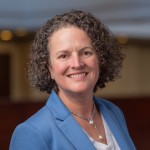
Host: Karen Moseley, President & CEO, Health Enhancement Research Organization (HERO)
Increasingly, large employers and state and local governments are naming broader public health goals in their organization’s wellness missions, such as reducing climate impacts, enhancing facility efficiency, and promoting resilient food systems via local sourcing. Adopting a Food Service Guidelines (FSG) policy can achieve many of these goals, while also supporting easy access to healthy foods for employees and citizens. Join us as we learn about national trends (2014-2019) in Food Service Guidelines policies. Presenters will highlight policy innovations and best practices for including FSG standards in your organization’s employee wellness policies and food procurement contracts with food service vendors.
Guest Panelists:
Amy Lowry Warnock, MPA, is a Public Health Policy Analyst on CDC’s Healthy Food Environment Team. She’s been with the Agency since 2008 and worked in various policy and partnerships roles in both the Division of Nutrition, Physical Activity, and Obesity and the Office of the Associate Director for Policy & Strategy. Amy works on policy surveillance efforts focused on Food Service Guidelines uptake in states and communities and is currently leading CDC’s efforts to scale Food Service Guidelines across the federal workforce as part of the Administration’s National Strategy on Hunger, Nutrition, and Health. Amy received her Master of Public Administration & Policy from the University of Georgia, Athens, with a specialization in health policy.
Diane Harris, PhD, MPH, is a Senior Health Scientist in the Division of Nutrition, Physical Activity, and Obesity at the CDC. As lead for the Healthy Food Environments Team, she enhances public health through strategies that improve access to healthy and culturally diverse foods via policy, systems, and environmental change strategies. Diane is committed to fostering food and nutrition security by cultivating healthy food environments across diverse settings such as worksites, healthcare facilities, early care and education centers, schools, food banks/pantries, and other government and community facilities. She earned a BS in animal science from the University of California, Davis, a PhD in animal nutrition from Cornell University, and an MPH in prevention science from Emory University, as well as postdoctoral research positions at Washington University and UCLA. Diane received the 2018 Distinguished Achievement Award at the Rollins School of Public Health at Emory, where she serves as Adjunct Faculty.
Host:
Karen Moseley is President & CEO of the Health Enhancement Research Organization (HERO), a national think tank dedicated to advancing best practices in workplace health and well-being. In collaboration with HERO members, Karen and the HERO team provide leadership in research and education by connecting science and practice to demonstrate value of a health and well-being employer ecosystem. She is the 2021 recipient of the Leader in Workplace Wellness Award presented by the Global Wellness Summit, and was recognized as one of “The Most Influential Women Leaders in Health Promotion” by the American Journal of Health Promotion in 2023.
This webinar is available to members only. Log in to view.
Benefits of Lifestyle Medicine for Practitioners and Their Patients
Original air date: May 16, 2024
Guest Panelists:

Kathy Pollard, MS, American College of Lifestyle Medicine

Host: Paul Terry, PhD, HERO
Lifestyle medicine is an emerging field of healthcare in which practitioners use evidence-based lifestyle interventions to treat chronic conditions. Lifestyle medicine addresses the root causes of disease and incorporates behavioral medicine across six domains of health behavior as treatment: a whole-food, plant-predominant eating pattern, physical activity, restorative sleep, stress management, risky substance avoidance, and positive social connections. Research indicates that practitioners experience less burnout by implementing a greater proportion of lifestyle medicine. A recent paper published in the American Journal of Health Promotion offers results of a self-reported survey of practitioners on lifestyle medicine and a review of physician burnout as it relates to its practice.
In this webinar, we will review the findings of a mixed methods study indicating the merits of practicing lifestyle medicine, what this practice is, and what the healthcare practitioners who implement lifestyle medicine sufficiently into their practice report about it. Kathryn Pollard, Research Projects Manager for the certifying body, the American College of Lifestyle Medicine, and lead author of the paper reporting on the study, is our guest.
Speaker: Kathryn J. Pollard, MS, is the Research Projects Manager for the American College of Lifestyle Medicine (ACLM) and also serves as the administrating officer of the ACLM Global Sustainability Committee. As a trained nutritionist, she is an adjunct instructor for the University of New England graduate clinical nutrition program. Kathryn’s 2023 book, Eating Does It: Healing Our World and Our Planet with Food, serves as a guidebook for addressing our most pressing global challenges: climate change and epidemic chronic disease.
Host: Paul Terry, PhD, is a Senior Fellow at HERO where he leads our learning agenda. Paul is also Editor-in-Chief of the American Journal of Health Promotion. His prior positions were president and CEO at HERO, president and CEO at StayWell Health Management, and president and CEO at The Park Nicollet Institute. Paul is the author of four books and over 200 research and professional papers. A study he led won the C. Everett Koop National Health Award. He was awarded two Fulbright Senior Scholarships and served on advisory councils for The National Academy of Sciences, the American Heart Association, the CDC, the University of North Carolina, Gillings School of Global Public Health, and the Harvard T.H. Chan School of Public Health.
This webinar is available to members only. Log in to view.
What Makes Us Resilient in the Face of Challenge – Such as the COVID-19 Pandemic?
Original air date: April 11, 2024
Guest Panelists:

Nidhi Ghildayal, PhD, MPH, SHINE Harvard

Host: Paul E. Terry, PhD, HERO
Traumatic events will continue to occur in the form of global pandemics, climate events, and economic or political changes. Mental health worldwide is worsening, and we do not have the leeway to let it decline further. Resiliency in the face of a challenge is a must. As we spend 8-plus hours a day at work, work environments have a responsibility to provide what they can to contribute to employee well-being and flourishing. We wanted to examine what, specifically in the context of work, can help us be resilient in the face of a challenge, such as the COVID-19 pandemic.
Learning Objectives
After attending this webinar, participants will be able to:
- Discuss the connections between safety, community, and flourishing in the workplace.
- Describe the relationship between financial control and flourishing.
- Explain how flourishing builds resilience, so is protective during challenging times.
Speakers
Nidhi Ghildayal, PhD, MPH, is a Senior Research Associate at SHINE Harvard. Prior to her appointment at SHINE, she held a Postdoctoral Research Fellow position at the Department of Population Medicine in Harvard Medical School and Harvard Pilgrim Healthcare Institute. Nidhi’s research interests include examining flourishing and mental well-being impacts on community and industry cohorts. She completed her PhD in health services, research, policy, and administration from the University of Minnesota School of Public Health and her MPH in epidemiology from the Harvard T.H. Chan School of Public Health.
Host: Paul Terry, PhD, is a Senior Fellow at HERO where he leads our learning agenda. Paul is also Editor-in-Chief of the American Journal of Health Promotion. His prior positions were president and CEO at HERO, president and CEO at StayWell Health Management, and president and CEO at The Park Nicollet Institute. Paul is the author of four books and over 200 research and professional papers. A study he led won the C. Everett Koop National Health Award. He was awarded two Fulbright Senior Scholarships and served on advisory councils for The National Academy of Sciences, the American Heart Association, the CDC, the University of North Carolina, Gillings School of Global Public Health, and the Harvard T.H. Chan School of Public Health.
This webinar is available to members only. Log in to view.
Creating an Inclusive Culture: One Difficult Moment at a Time
Original air date: March 14, 2024
Guest Panelists:

Jessica Halem, MBA, University of Pennsylvania

Paul Terry, PhD, HERO
This webinar on belongingness, trust, and making organizational change is inspired by Jessica Halem’s manuscript entitled “LGBTQ+ Workplace Inclusion and the Great Resignation,” published last year in the American Journal of Health Promotion and awarded their “Paper of the Year.” Consistent with the challenge for so many working in the health promotion profession, Halem wrote: “I think about how to make change from the middle. I enjoy supporting those workers with less perceived organizational power become their own one-person movement for change inside of their workplaces.”
In this webinar, we will discuss the kinds of leadership and professional development that puts you in touch with leaders from dominant and marginalized groups alike. Why should leaders be mindful of “in groups” and “out groups?” How should belongingness, within and between groups, influence the work of both position leaders and grassroots leaders? HERO, like so many organizations, joined in the extraordinary surge post George Floyd’s murder to commit to Diversity, Equity, and Inclusion (DEI) initiatives. Yet, DEI has gotten caught up in culture wars and, post the Supreme Court ruling against affirmative action, many organizations are waning in their investments in DEI. We will discuss strategies aimed at increasing organizational support for lesbian, gay, bisexual, transgender, and queer (LGBTQ+) issues alongside the concerns of other marginalized groups. We will discuss “DEI 2.0” and strategies such as the use of employee resource groups (ESG) where people can build personal connections. And we will interact with webinar participants to explore how other venues can be created for advancing allyship, strength finding, and building understanding across differences.
Speakers
Jessica Halem, MBA, is the Senior Director of The Eidos LGBTQ+ Health Initiative (pronounced: ay-dose) at the University of Pennsylvania. Eidos is a social innovation hub and think tank that collaborates with industry, nonprofits, government, and entrepreneurs to improve the health and well-being of LGBTQ+ people. Before joining Penn, Jessica was the inaugural LGBTQ Director at Harvard Medical School. When she was a young upstart, Jessica ran the Lesbian Community Cancer Project in Chicago where she implemented the nation’s first cultural competency trainings for the CDC and served on then-candidate Obama’s first LGBT Advisory Committee. With awards from HERO, GLMA, Howard Brown, and The Advocate magazine, Jessica uses her MBA, improv theater skills, and experience as a community organizer to marshal people and resources to make meaningful change. After a decades long career as a stand-up comic, she is a sought-after speaker addressing health equity, workplace inclusion, and innovation.
Paul Terry, PhD, is a Senior Fellow at HERO where he collaborates with HERO members and national experts in planning learning events and supports the HERO team in organizing the annual forum, think tanks and webinars. He preceded Karen Moseley as HERO’s president. Paul is Editor-in-Chief of the American Journal of Health Promotion and is a Past-President of the Minnesota Public Health Association. He serves on advisory councils for The National Academy of Sciences, the American Heart Association, the Harvard T.H. Chan School of Public Health, and the University of North Carolina, Gillings School of Global Public Health. Prevention programs that Paul developed won the C. Everett Koop National Health Award. He earned his PhD from the University of Minnesota and his master’s from Minnesota State University at Mankato where he was honored with the Distinguished Alumni Humanitarian Award.
This webinar is available to members only. Log in to view.
Aging and the Workforce
Original air date: January 29, 2024
Guest Panelists:

Deborah Lee, PhD, RN, NBC-HWC

Cathy A. Maxwell, PhD, RN, FAAN

Moderator: Paul Terry, PhD
Research findings indicate ageism and aging stigma impact health and well-being. How does this impact the workforce and how can we address this issue as a society and in the workplace? National efforts to address the negative effects of ageism include the “Reframing Aging” initiative, as well as the expansion of the field of geroscience, the field that approaches aging from a biological perspective. Awareness of these efforts among the healthcare workforce is a crucial starting point for a more proactive approach to aging and its ramifications.
Learning Objectives
After attending this webinar, attendees will be able to:
- Describe how ageism and aging stigma can impact health and well-being.
- Identify opportunities within the workplace to address ageism and aging stigma.
- Discuss initiatives to educate the healthcare workforce about a more proactive approach to aging.
Sponsored by Health Enhancement Research Organization (HERO), a designated provider of continuing education contact hours (CECH) in health education by the National Commission for Health Education Credentialing, Inc. This program is designated for Certified Health Education Specialists (CHES) and/or Master Certified Health Education Specialists (MCHES) to receive up to 1 total Category I contact education contact hours. Provider ID#101039
Speakers:
Deborah Lee, PhD, RN, NBC-HWC, is the NHC Chair of Excellence in Nursing at Middle Tennessee State University (MTSU) in Mufreesboro. She is the founder and director of the MTSU Positive Aging Consortium, whose goals and priorities are focused on service, research, and education that support healthy aging practices. Deborah’s area of expertise is communication skills based in motivational interviewing, and she teaches the communication skills clinical rotation in the undergraduate nursing program. Deborah has practiced as a health and wellness coach since 2011. She is a National Board Certified Health and Wellness Coach (NBC-HWC) and has been an instructor and mentor in the Duke and Vanderbilt Health Coaching Programs.
Cathy A. Maxwell, PhD, RN, FAAN, is a Professor of Nursing at Vanderbilt University School of Nursing (VUSN). She chairs the Vanderbilt Center for Gerontological Nursing Excellence and serves on national advisory boards to promote best practices among professional organizations and policy advocates. Cathy’s research is directed at mitigating decline associated with aging and frailty. She has developed interventions to promote healthy aging among adults age 50+ and to assist healthcare providers in guiding older adults to take a more proactive role in managing their aging trajectories. Interventions include a booklet titled, Aging: Important Things to Know, the AFRESH health and wellness program, and most recently, a video series titled, How to Slow Down Aging Through Mitochondrial Fitness.
Moderator: Paul Terry, PhD, is a Senior Fellow at HERO where he collaborates with HERO members and national experts in planning learning events and supports the HERO team in organizing the annual forum, think tanks and webinars. He preceded Karen Moseley as HERO’s president. Paul is Editor-in-Chief of the American Journal of Health Promotion and is a Past-President of the Minnesota Public Health Association. He serves on advisory councils for The National Academy of Sciences, the American Heart Association, the Harvard T.H. Chan School of Public Health, and the University of North Carolina, Gillings School of Global Public Health. Prevention programs that Paul developed won the C. Everett Koop National Health Award. He earned his PhD from the University of Minnesota and his master’s from Minnesota State University at Mankato where he was honored with the Distinguished Alumni Humanitarian Award.
This webinar is available to members only. Log in to view.
Recent C. Everett Koop National Health Award Winner Shares Challenges and Best Practices in Employee Health and Well-Being
Original air date: January 16, 2024
Guest Panelists:

Karen Personett, DTE Energy

Moderator: Janis Davis-Street, EdD
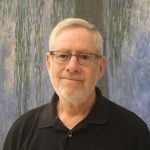
Moderator: Ron Goetzel, PhD
The C. Everett Koop National Health Awards recognize exemplary programs shown to improve employee health and well-being (HWB) while at the same time achieving positive business outcomes by documenting value-on-investment (VOI). In this session, you will learn about the challenges and key learnings from an employer who is one of the 2023 C. Everett Koop Award winners, Karen Personett from DTE Energy. Karen will share background on their employee well-being challenges, their approach and design, as well as valuable tips on the application process, evaluation criteria, and the type of data required to demonstrate program impacts.
Learning Objectives
After attending this webinar, participants will be able to:
- Discuss the challenges in employee well-being faced by DTE Energy, what they learned during their journey, and the factors which enabled their program’s success.
- Demonstrate how employers use metrics of success to demonstrate health impact and business outcomes.
- Explain the experience and benefits of completing the C. Everett Koop National Health application process, including:
- The minimum requirements that must be met for a winning application.
- The tools and resources available to Koop award applicants.
Speaker:
Karen Personett has been the manager of DTE’s Culture of Health & Wellbeing transformation since 2016. Within that time, DTE has won 18 industry awards and has been featured as a best practice example in the U.S. Surgeon General’s Workplace Mental Health & Wellbeing report. With over twenty-five years of experience in leading transformational movements, Karen is driven by the belief that well-being is the foundational enabler of everything we do and strive to achieve at an individual and organization level. Karen is a dynamic, innovative, and inclusive thought leader with a proven ability to create a shared vision, develop and execute comprehensive strategies, unify efforts in diverse matrixed organizations, and has a documented track record of driving meaningful and sustainable organizational change.
Moderators:
Janis Davis-Street, MS, MA, EdD, CHES, manages the Global Public Health and Special Projects group of Chevron’s Health and Medical department. Her team provides education, awareness, and preventive programs, using epidemiological tools to evaluate employee and community health issues. Prior to Chevron, Janis spent 15+ years as a nutritionist at NASA during which time she was awarded a Silver Snoopy, NASA’s highest civilian award, for her contributions to the US space program and devotion to crew health and safety. She has co-authored Space Nutrition, a middle school textbook, and several publications on corporate wellness, nutrition, and spaceflight. Janis holds a doctorate in health education and master’s degrees in nutrition and organizational leadership. She is the recipient of the Institute for Health & Productivity Management’s 2023 award for Leadership in Health & Productivity Management and the 2023 Healthiest Employers® Wellness Champion award.
Ron Goetzel, PhD, is a Senior Scientist and Director of the Institute for Health and Productivity Studies (IHPS) at the Johns Hopkins Bloomberg School of Public Health. The mission of the IHPS is to bridge the gap between academia, the business community, and the healthcare policy world – bringing academic resources into policy debates and day-to-day business decisions, and bringing worker health and productivity management concerns to academia. Before moving to Johns Hopkins University, Ron was on the faculty at Emory and Cornell Universities. He is an internationally recognized and widely published expert in health and productivity management (HPM), return on investment (ROI), program evaluation, and outcomes research. He has published well over 200 peer-reviewed articles and book chapters and frequently presents at international business and scientific forums.
Host:
Karen Moseley is President & CEO of the Health Enhancement Research Organization (HERO), a national think tank dedicated to advancing best practices in workplace health and well-being. Prior to being appointed President of HERO, Karen served as the organization’s Vice President of Education and Director of Operations. Karen also managed HERO’s grant-funded projects, which include a multi-stakeholder collaboration to support employer involvement in community health initiatives and another to identify common measures of community health, both funded by Robert Wood Johnson Foundation. Having worked in the non-profit sector for nearly 30 years, Karen has managed the development and dissemination of a number of publications and educational conferences. She is the 2021 recipient of the Leader in Workplace Wellness Award presented by the Global Wellness Summit. Karen received her Bachelor of Science in business administration from the University of North Carolina at Chapel Hill.
Sponsored by Health Enhancement Research Organization (HERO), a designated provider of continuing education contact hours (CECH) in health education by the National Commission for Health Education Credentialing, Inc. This program is designated for Certified Health Education Specialists (CHES) and/or Master Certified Health Education Specialists (MCHES) to receive up to 1 total Category I contact education contact hours. Maximum advanced-level continuing education contact hours available are 1. Provider ID#101039
This webinar is available to members only. Log in to view.
Transforming Workplace Culture: Mental Health First Aid for Holistic Well-Being
Original air date: December 13, 2023
Guest Panelists:

Megan Hammes, MS, MCHES, Hammes Homestead and Consulting
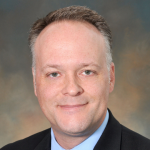
Co-Host: David W. Ballard, PsyD, MBA, HERO

Co-Host: Karen Moseley, HERO
One in five US adults faces mental health challenges. Mental Health First Aid (MHFA) is a proactive solution that can help address multiple workplace priorities, including workplace safety and diversity, equity, inclusion, and belonging (DEIB). This webinar will explore the fundamental tenets of MHFA and how it can be an effective tool that enables managers and teams to skillfully identify, comprehend, and address mental health issues and substance use disorders. Research has demonstrated that individuals trained in MHFA show reduced stigma and increased empathy toward others, while also gaining skills and information to manage their own mental well-being.
Speakers:
Megan Hammes, MS, MCHES, is the Owner of Hammes Homestead and Consulting, founded in May 2023. Megan’s primary focus is providing Mental Health First Aid training to leadership teams and work groups. She is certified to teach community-specific courses to higher education and active military, veterans, and their families. Megan also provides organizational well-being consulting with a focus on program and policy review as well as workplace award applications. Prior to this, Megan served as the Senior Director of Well-Being at an academic research institution with an academic medical center where she provided leadership for initiatives and policies designed to support the whole-person well-being.
David W. Ballard, PsyD, MBA, is a Senior Fellow and Scientific Advisor for Workforce Mental Health at HERO. His work focuses on organizational effectiveness, occupational health promotion, workforce mental health, program design and evaluation, and systems-level workplace interventions. David has provided research, consultation, and training services to government agencies, industry groups, corporations, private equity firms, medical schools, and universities. He currently serves on the boards of directors for The Health Project, which presents the C. Everett Koop National Health Awards, and Sound Mind, co-chairs the Advisory Committee for The Carolyn C. Mattingly Award for Mental Health in the Workplace, and is a member of NIOSH’s Cross-Sector Council on Healthy Work Design and Well-being.
Karen Moseley is President & CEO of the Health Enhancement Research Organization (HERO), a national think tank dedicated to advancing best practices in workplace health and well-being. Prior to being appointed President of HERO, Karen served as the organization’s Vice President of Education and Director of Operations. Karen also managed HERO’s grant-funded projects, which include a multi-stakeholder collaboration to support employer involvement in community health initiatives and another to identify common measures of community health, both funded by Robert Wood Johnson Foundation. Having worked in the non-profit sector for nearly 30 years, Karen has managed the development and dissemination of a number of publications and educational conferences. She is the 2021 recipient of the Leader in Workplace Wellness Award presented by the Global Wellness Summit. Karen received her Bachelor of Science in business administration from the University of North Carolina at Chapel Hill.
This webinar is available to members only. Log in to view.
From Surviving to Thriving: Leveraging the Workforce to Deliver on the Mission
Original air date: November 30, 2023
Guest Panelists:

Amy Locke, MD, FAAFP, University of Utah

Paul Terry, PhD, HERO
Workforce is the most pressing challenge facing many sectors today. Critical staffing shortages continue, and there is loss of institutional memory as seasoned leaders resign and less experienced individuals rise quickly to leadership. Those who remain struggle to manage increased workloads and their own well-being. Energy spent on retention and recruitment limits innovation and growth. Burnout and job dissatisfaction were high pre-pandemic and have skyrocketed since. Designing a system-level structure that meets the needs of individuals is challenging. A high-level approach to professional well-being must incorporate the ability to customize services to teams and individuals within organizations. Examining what works at high-functioning institutions can drive meaningful change.
For almost a decade, University of Utah Health (U of U Health) has invested in a systemic approach to well-being at strategic, cultural, and leadership levels. It leverages skills and expertise across the health system to create its vision and road map. This webinar will review the journey to creating a culture of well-being through a systems approach that uses creativity and collaboration as keys to moving forward.
Speakers:
Amy Locke, MD, FAAFP, is Chief Wellness Officer, Director of the Osher Center for Integrative Health, Professor of Family and Preventive Medicine, and Adjunct Professor of Nutrition and Integrative Physiology at the University of Utah. She has internationally recognized expertise in professional well-being, innovative curriculum design, and transformative clinical programs to address lifestyle and prevent disease. Her research, education, and clinical roles focus on helping people lead healthier lives through a focus on whole person health. Amy serves as Chair of the board of the Academic Consortium for Integrative Medicine and Health and is Adjunct Faculty at the University of Michigan.
Moderator: Paul Terry, PhD, is a Senior Fellow at HERO where he collaborates with HERO members and national experts in planning learning events and supports the HERO team in organizing the annual forum, think tanks and webinars. He preceded Karen Moseley as HERO’s president. Paul is Editor-in-Chief of the American Journal of Health Promotion and is a Past-President of the Minnesota Public Health Association. He serves on advisory councils for The National Academy of Sciences, the American Heart Association, the Harvard T.H. Chan School of Public Health, and the University of North Carolina, Gillings School of Global Public Health. Prevention programs that Paul developed won the C. Everett Koop National Health Award. He earned his PhD from the University of Minnesota and his master’s from Minnesota State University at Mankato where he was honored with the Distinguished Alumni Humanitarian Award.
This webinar is available to members only. Log in to view.
Recent C. Everett Koop National Health Award Winners Share Challenges and Best Practices in Employee Health and Well-being
Original air date: November 16, 2023
Guest Panelists:
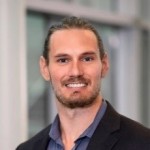
Jesse Gavin, MA, Baylor College of Medicine
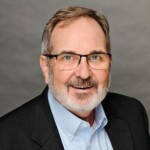
David Hines, Metro Nashville Public Schools
The C. Everett Koop National Health Awards recognize exemplary programs shown to improve employee health and well-being (HWB) while at the same time achieving positive business outcomes by documenting value-on-investment (VOI). In this webinar, you will learn about the challenges and key learnings from the 2023 C. Everett Koop Honorable Mention award winners, two employers in two very different industries. They will share background on their employee well-being challenges, their HWB program approach and design, as well as valuable tips on the Koop award application process, evaluation criteria, and the type of data required to demonstrate program impacts.
Learning Objectives
After attending this webinar, participants will be able to:
- List the challenges 2023 Koop Award winners faced, what they learned during their journey, and the factors which enabled their program’s success.
- Describe the speakers’ use of metrics of success to demonstrate health impact and business outcomes.
- Identify the process and benefits of completing the C. Everett Koop National Health Awards application, including the minimum requirements for a winning application and the tools and resources available to applicants.
Speakers
Jesse Gavin, MA, has been the Well-Being Director for Baylor College of Medicine (BCM) in Houston, TX since 2014. Within that time, BCM has won numerous awards, including being routinely among the nation’s Healthiest 100 organizations, 2018 WELCOA Well Workplace Award, and 2019 C. Everett Koop Health Award Winner. Aside from his role at BCM, Jesse volunteers within various well-being groups and non-profit organizations in the community. He served as Co-Chair for the Houston Corporate Wellness Group in 2015, and routinely works with the American Heart Association, MS Society, Houston Business Group on Health, and the Houston and Pasadena Livestock Show and Rodeo. Jesse speaks nationally on creating healthy workplaces, building connections among people, and reducing employee burnout. His research interests include creating foundational and structural organizational changes to empower and engage employees. Jesse received a master’s in fitness and human performance and is pursuing a doctorate in public health.
David Hines is Executive Director of Employee Benefits for Metro Nashville Public Schools (MNPS), where he established a network of primary care clinics to serve their employees, retirees, and their dependents. He opened MNPS’ first integrated health and wellness facility, and currently creates greater access to specialty care through clinic-based telehealth and the development and expansion of value-based care. David has been recognized by Employee Benefit News with the Benny Award for Benefits Leadership in Healthcare and by the State & Local Government Benefit Association with their Lifetime Achievement Award. The MNPS team has earned numerous recognitions including: C. Everett Koop National Health Award (honorable mention); American Heart Association Gold Workplace Achievement; Cigna Well Being Award, Carol C. Mattingly Mental Health in the Workplace Award. David serves on the boards of the State and Local Government Benefit Association, the National Association of Worksite Health Centers, and Healthcare21.
Moderators
Ron Goetzel, PhD, is a Senior Scientist and Director of the Institute for Health and Productivity Studies (IHPS) at the Johns Hopkins Bloomberg School of Public Health. The mission of the IHPS is to bridge the gap between academia, the business community, and the healthcare policy world – bringing academic resources into policy debates and day-to-day business decisions, and bringing worker health and productivity management concerns to academia. Before moving to Johns Hopkins University, Ron was on the faculty at Emory and Cornell Universities. He is an internationally recognized and widely published expert in health and productivity management (HPM), return on investment (ROI), program evaluation, and outcomes research. He has published well over 200 peer-reviewed articles and book chapters and frequently presents at international business and scientific forums.
Rebecca K. Kelly, PhD, RDN, is founder and CEO of Element Health, Inc. She is an educator, leader, and consultant on building and sustaining healthy workforces. She has over 30 years of hands-on experience in health and wellness program strategy, communication campaigns, innovative program development, and program evaluation. In 2014, she received the first-ever Heart of HERO award, recognizing individuals impacting employee health and program outcomes. Rebecca is a registered dietitian and exercise physiologist. She completed her doctorate and master’s degree at the University of Alabama at Birmingham and her dietetic internship at Indiana University Medical Center. Rebecca received a Bachelor of Science degree in nutrition and food science, with honors, from Auburn University .Rebecca is a fellow of the Academy of Nutrition and Dietetics and former Chair for the Academy’s Council on Future Practice. She attended Momentum, the Alabama executive women’s leadership program.
Host
David W. Ballard, PsyD, MBA, is a Senior Fellow and Scientific Advisor for Workforce Mental Health at HERO. His work focuses on organizational effectiveness, occupational health promotion, workforce mental health, program design and evaluation, and systems-level workplace interventions. David has provided research, consultation, and training services to government agencies, industry groups, corporations, private equity firms, medical schools, and universities. He currently serves on the boards of directors for The Health Project, which presents the C. Everett Koop National Health Awards, and Sound Mind, co-chairs the Advisory Committee for The Carolyn C. Mattingly Award for Mental Health in the Workplace, and is a member of NIOSH’s Cross-Sector Council on Healthy Work Design and Well-being.
This webinar is available to members only. Log in to view.
Measuring What Matters: Moving from Awareness to Action
Original air date: October 26, 2023
Guest Panelists:
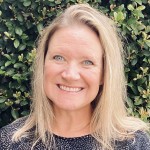
Nicole VanderHorst, MA, Kaiser Permanente

Michelle Mancuso, MPH, Kaiser Permanente

Moderator: Karen Moseley, HERO
This webinar will describe how Kaiser Permanente has been able to demonstrate an improvement in the organization’s overall culture of health and well-being after the implementation of a Well-Being Framework. The speakers will describe how internal research has shown that improving the culture of health is a strong predictor of better performance outcomes for the organization.
Speakers:
Nicole VanderHorst, MA, is a Principal Consultant with the Talent and Organizational Performance department of Kaiser Permanente. She provides consulting and research support to leaders and managers throughout Kaiser Permanente in order to understand internal and external customer experience, evaluate change efforts, and assess a variety of other organizational performance topics. Nicole’s experiences include survey research (e.g., attitudinal research, needs assessment), focus groups, and evaluation of key HR initiatives, performance management systems, and diversity efforts (including culturally responsive health care). Additionally, she has knowledge and experience in assessing and evaluating Kaiser Permanente’s National Workforce Wellness programs through quantitative and qualitative research methods. Nicole has a master’s degree in organizational psychology from Claremont Graduate University.
Michelle Mancuso, MPH, is a director with Kaiser Permanente’s National Healthy Workforce, a workforce wellness initiative that supports the health and well-being of the people that power KP. In addition to ensuring successful implementation of all programs, Michelle also oversees the data and evaluation strategy and culture of health and well-being initiatives, in partnership with regional partners and stakeholders. Previously, Michelle worked on multiple research projects at the University of California, San Francisco and Boston University’s School of Medicine. Michelle holds a master’s degree in public health from Boston University’s School of Public Health.
Moderator: Karen Moseley is President & CEO of the Health Enhancement Research Organization (HERO), a national think tank dedicated to advancing best practices in workplace health and well-being. Prior to being appointed President of HERO, Karen served as the organization’s Vice President of Education and Director of Operations. Karen also managed HERO’s grant-funded projects, which include a multi-stakeholder collaboration to support employer involvement in community health initiatives and another to identify common measures of community health, both funded by Robert Wood Johnson Foundation. Having worked in the non-profit sector for nearly 30 years, Karen has managed the development and dissemination of a number of publications and educational conferences. She is the 2021 recipient of the Leader in Workplace Wellness Award presented by the Global Wellness Summit. Karen received her Bachelor of Science in business administration from the University of North Carolina at Chapel Hill.
This webinar is available to members only. Log in to view.
The Power of Habits Isn’t All It’s Cracked Up to Be
Original air date: October 11, 2023
Guest Panelists:

Michelle Segar, PhD, MPH, MS, University of Michigan

Moderator: Paul Terry, PhD
While popular culture and research often tout “habit formation” as a winning behavior-change strategy, there is little support showing that it can cultivate sustainable changes in complex lifestyle behaviors. Yet, without sustained change, our initiatives can’t help employees increase their health and well-being, nor can they achieve a ROI on health promotion investments. It’s time for our field to go beyond conventional thinking and examine whether the assumptions underlying habit formation hold up under scrutiny.
Speakers:
Michelle Segar, PhD, MPH, MS, is an award-winning, NIH-funded researcher at the University of Michigan and Director of the Sustainable Health Activities Research Program. With almost thirty years studying how to help people adopt healthy behaviors in ways they can sustain within their complex lives, her translational research is widely recognized as relevant and pragmatic. Michelle advises the World Health Organization on their global physical activity initiatives and was named inaugural chair of the United States National Physical Activity Plan’s Communication Committee. She speaks and consults with organizations including U.S. Department of Health and Human Services, Kaiser Permanente, Business Group on Health, Walmart, Anytime Fitness, Adidas, and Google. A sought-after speaker and trainer. Michelle is frequently interviewed in major outlets like The New York Times, NPR, Fast Company, and The Wall Street Journal.
Moderator: Paul Terry, PhD, is a Senior Fellow at HERO where he collaborates with HERO members and national experts in planning learning events and supports the HERO team in organizing the annual forum, think tanks and webinars. He preceded Karen Moseley as HERO’s president. Paul is Editor-in-Chief of the American Journal of Health Promotion and is a Past-President of the Minnesota Public Health Association. He serves on advisory councils for The National Academy of Sciences, the American Heart Association, the Harvard T.H. Chan School of Public Health, and the University of North Carolina, Gillings School of Global Public Health. Prevention programs that Paul developed won the C. Everett Koop National Health Award. He earned his PhD from the University of Minnesota and his master’s from Minnesota State University at Mankato where he was honored with the Distinguished Alumni Humanitarian Award.
This webinar is available to members only. Log in to view.
The HERO Scorecard – Leveraging Data to Improve the Well-Being on your Campus
Original air date: October 10, 2023
Guest Panelists:
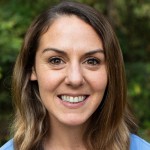
Mary Imboden, PhD, HERO
A Pre-University Summit Workshop
The HERO Health and Well-being Best Practices Scorecard in Collaboration with Mercer© (HERO Scorecard) is a free online tool, designed to help employers, providers, and other stakeholders learn about workplace health and well-being best practices. Further, the data from the HERO Scorecard helps organizations in their health and well-being strategic planning and improve and measure progress over time.
During this webinar, we will describe the development of the HERO Scorecard new best practice scores (mental health and well-being, social determinants of health, and diversity, equity, and inclusion). Further, a brief overview will be provided on best practices for taking the HERO Scorecard at your University. Finally, we will demonstrate how Universities can use the data they receive from taking the HERO Scorecard to identify and prioritize opportunities to implement best practices to improve the health and well-being of their faculty and staff.
Learning Objectives
After attending this workshop, participants will be able to:
- Discover best practices for taking the HERO Scorecard and getting leadership buy-in at your organization.
- Identify and prioritize health and well-being opportunities within their organization.
- Describe the development of the HERO Scorecard’s mental health and well-being, social determinants of health, and diversity, equity, and inclusion best practice scores
1 CHES Credit (to earn the credit, you must also attend the University Summit on October 30th)
Sponsored by Health Enhancement Research Organization (HERO), a designated provider of continuing education contact hours (CECH) in health education by the National Commission for Health Education Credentialing, Inc. This program is designated for Certified Health Education Specialists (CHES) and/or Master Certified Health Education Specialists (MCHES) to receive up to 1 total Category I contact education contact hours. Provider ID#101039
Speakers:
Mary Imboden, PhD, MS, is the Director of Research at the Health Enhancement Research Organization (HERO), where she oversees the research agenda, research committees, and the HERO Health and Well-being Best Practices Scorecard in Collaboration with Mercer©. Mary is also the chair and an assistant professor of the Kinesiology Department at George Fox University, where she leads the Find your Fit program, an employee health and well-being initiative. In addition, Mary serves as an advisory member of the Well-being Think Tank, an adjunct professor in the healthy lifestyle practitioner program at University of Illinois- Chicago, and is the co-chair of the Oregon Academy of Science, Health Sciences division. Mary obtained her doctorate in human bioenergetics with an emphasis in clinical exercise physiology from Ball State University’s Human Performance Lab and her master’s degree in health and exercise science from Wake Forest University.
This webinar is available to members only. Log in to view.
Shifting Perspective Using National and Natural Resources to Enhance Well-Being
Original air date: September 7, 2023
Guest Panelists:

Amy Cohen, Ramp Health

Chip Ross, MA, RD, LDN, Syngenta

David W. Ballard, PsyD, MBA, HERO
A HERO Forum23 Preview Webinar
When we see things differently, we think differently, feel differently, and behave differently. The pandemic has impacted our lives in a multitude of ways including the dynamics of our relationships with co-workers, friends, and family and requires social “undistancing” to re-establish relationships and meaningful connection. One positive impact has been a rekindled appreciation of nature for many who had an opportunity to rediscover why the great outdoors are so great in the first place. This webinar will share the impact of well-being challenges with a hybrid approach to creating virtual experiences that inspire real life adventures and connection to meet employees’ ever-changing needs in today’s constantly evolving landscape.
This webinar will share how well-being challenges and campaigns:
- Enhance social and emotional wellness by nurturing supportive and meaningful relationships.
- Encourage time spent in natural outdoor environments for the dual benefits of both physical activity and exposure to nature. Research from a variety of scientific fields suggest that activity in nature and feelings of connection to nature enhance psychological health and well-being.
- Create life-enriching experiences that support connection with others, nature, and self to inspire positive life changes.
Learning Objectives
After attending this webinar, participants will be able to:
- Enhance the social and emotional wellness of their population by nurturing supportive and meaningful relationships to foster social connectedness at work and home.
- Implement and launch creative life-enriching experiences that stimulate a culture of connection with others, nature, and self to produce positive life changes.
- Promote employee engagement by encouraging time spent in natural outdoor environments for the dual benefits of both physical activity and exposure to nature to enhance psychological health and well-being.
Speakers:
Amy Cohen is the Director of Well-Being Strategy for Ramp Health. Previously, she founded Inspired Perspectives LLC which was acquired by Ramp Health (formerly Wellness Coaches) in 2021. With her 2 plus decades of experience, in partnership with her clients, Amy is known for her ability to help organizations bring initiatives to life with fresh ideas, engaging campaigns, and motivational tools that shape a population’s mindset towards positive behavior change. Amy’s creative approach to developing motivational material has led her to winning prestigious national health information awards and serving in advisory roles for the the non-profit and university sectors. Amy has presented to numerous groups including, SHRM, Wellness Rewards Congress, Florida Association of Health Underwriters, HERO (Health Enhancement Research Organization), Wellness Councils of Tampa Bay, and the Health Benefits Conference and Expo, and published in Corporate Wellness Magazine and The American Psychological Association Center for Organizational Excellence.
Chip Ross, MA, RD, LDN, is the Wellbeing Program Manager for North America at Syngenta. He has been involved in employee health and well-being for over 25 years. Beginning with his graduate assistantship at the University of North Carolina at Chapel Hill, Chip was introduced to the importance of keeping employees healthy. During his time with IBM, UNC Hospitals, and the last 20 with Syngenta, Chip has continued to follow his passion of maintaining the company’s most valuable asset, its people. His goal is for all Syngenta employees and their family members to develop and maintain a lifestyle of overall, balanced well-being for a lifetime.
Moderator: David W. Ballard, PsyD, MBA, is a Senior Fellow and Scientific Advisor for Workforce Mental Health at HERO. His work focuses on organizational effectiveness, occupational health promotion, workforce mental health, program design and evaluation, and systems-level workplace interventions. David has provided research, consultation, and training services to government agencies, industry groups, corporations, private equity firms, medical schools, and universities. He currently serves on the boards of directors for The Health Project, which presents the C. Everett Koop National Health Awards, and Sound Mind, co-chairs the Advisory Committee for The Carolyn C. Mattingly Award for Mental Health in the Workplace, and is a member of NIOSH’s Cross-Sector Council on Healthy Work Design and Well-being.
This webinar is available to members only. Log in to view.
Applying the US Surgeon General’s Framework for Workplace Mental Health and Well-Being in Healthcare and Beyond
Original air date: August 23, 2023
Guest Panelists:
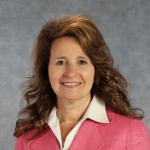
Lisa MacLean, MD, Henry Ford Medical Group

Cheryl Paxton-Hughes, SHRM-CP, MBA, Cornerstone OnDemand
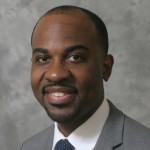
Ryan Sledge, MBA, MPH, HCA Healthcare
Join HERO as we discuss the state of Workplace Mental Health and Well-Being and share the latest findings from the U.S. Surgeon General’s report. We will focus on the five essentials for workplace mental health and well-being with a special emphasis on healthcare settings. Guest speakers will discuss organizational policies and practices to positively impact workforce well-being. During this interactive webinar, Ryan Sledge, VP of Workplace Health & Safety at HCA, will facilitate a conversation with Dr. Lisa MacLean, Chief Clinical Wellness Officer, Henry Ford Health, and Cheryl Paxton-Hughes, Principal Consultant at Cornerstone OnDemand.
Speakers:
Lisa MacLean, MD, is the Chief Clinical Wellness Officer for the Henry Ford Medical Group in Detroit, Michigan where she develops programming to assist clinicians in optimizing healthy coping strategies, finding good life balance, and delivering high quality healthcare. Prior to her appointment at Henry Ford Health in 2017, Lisa served as Associate Dean of Student Affairs and Career Development at Wayne State University School of Medicine. She has a long relationship with Henry Ford Health System; previously, she worked at Henry Ford Hospital where she served as Psychiatry Residency Program Director, Chair of the Graduate Medical Education Committee, and Director of Education for the Psychiatry Department.
Cheryl Paxton-Hughes, SHRM-CP, MBA, is a Principal Consultant at Cornerstone OnDemand. She has over 23 years of experience working for retail, healthcare, professional services, and technology companies. Most of her career has been spent in leadership roles where she has been responsible for developing and executing talent and people strategies, processes, and systems. Using her foundational knowledge of organizational development and psychology, she has successfully turned around underperforming teams and projects and developed HR and other functional business strategies from the ground up. In addition to her MBA, Cheryl holds multiple certifications in SHRM, people analytics, diversity, equity & inclusion, change management, leadership development, and ITIL. She is currently enrolled at the University of Florida as a doctoral candidate in the Warrington College of Business.
Ryan Sledge, MBA, MPH, is the Vice President of Workforce Health & Safety at HCA Healthcare. Ryan partners across teams—both clinical and non-clinical including human resources, infection prevention, HCI, and performance improvement—to ensure caregivers receive great care so that they can focus their passion and energy on providing great care. In his previous role as Director of Worksite Operations and Product Development for OhioHealth, he was for creating a sustainable culture of health for OhioHealth’s 29,000 employees, as well as the employers served by the program in the Columbus region. Ryan is Treasurer on the HERO Board of Directors and also serves as co-chair of the HERO Healthcare Summit Planning Committee. Ryan’s academic background includes a BS in exercise science, an MPH degree from Michigan State University, and an MBA degree from the University of Michigan.
This webinar is available to members only. Log in to view.
Instituting an Evidence-Based & Collaborative Regional Approach to Building Cultures of Health
Original air date: August 17, 2023
Guest Panelists:
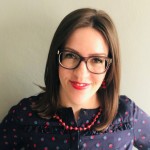
Michele Bildner, MPH, MCHES, CDC Foundation
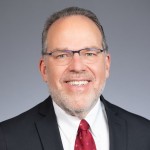
Neil Goldfarb, Greater Philadelphia Business Coalition on Health
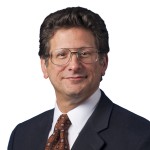
Raymond Fabius, MD, HealthNEXT
A HERO Forum23 Preview Webinar
Workforce health is produced by a complex blend of interrelated factors and considerable evidence demonstrates that factors within the workplace itself significantly influence health. Increasing attention is being given to workplace “cultures of health” (CoH) – workplaces that value, support, and promote employee health. While approaches exist to improve employee health and develop positive workplace cultures, there are gaps in practice for achieving both simultaneously. This project aimed to build benchmark organizational cultures of health using an evidence-based methodology and best practice sharing among a cohort of seven employer members from a regional business coalition on health. The innovation of an Employer Learning Collaborative (ELC) complemented the empirical methodology and approach, serving as a dedicated space for connecting participants to each other and developing solutions for organizational challenges and barriers. This webinar will share aggregate scores from baseline and mid-point assessments using a validated maturity model across ten key pillars essential to creating a CoH. An aggregate of the resulting multi-year strategic plans will be described along with examples of actions implemented by the employers and the roles of physician executive guidance and ELC participation.
Learning Objectives
After attending this webinar, participants will be able to:
- Describe why an evidence-based approach to building cultures of health is needed to advance population health.
- List the key pillars necessary for creating cultures of health.
- Identify up to three strategies for implementation at their own workplaces.
Speakers:
Michele Bildner, MPH, MCHES, is a Project Manager for Non-Infectious Disease Programs at the CDC Foundation where she is responsible for creating public-private partnerships for chronic disease health promotion. She has worked in public health for over a decade, focusing mostly on urban community health assessment and policy, system, and environmental changes. Michele began her DrPH in leadership at the University of Illinois Chicago in 2019 and has a deep interest in identifying, diagnosing, and addressing adaptive public health and organizational challenges and thrives on their complexity and messiness. She received the National Society for Public Health Education’s 2022 Karen Denard Goldman Health Education Mentor Award which recognizes her significant contribution to the preparation and performance of Health Education Specialists, having successfully forged the link between practice and research. Her practice is rooted in collaboration, convening, and facilitating key partners to lead change that achieves socially equitable health outcomes.
Neil Goldfarb is CEO of the Greater Philadelphia Business Coalition on Health (GPBCH), which brings together employers in Southeastern Pennsylvania, Delaware, and Southern New Jersey committed to improving employee health and the safety, quality, and value delivered by the healthcare system. Previously, Neil spent over 30 years in healthcare research, quality improvement, and management positions. As Associate Dean for Research in the Jefferson College of Population Health, he led the school’s research agenda while concurrently serving as Director of Ambulatory Care Performance Improvement for Thomas Jefferson University. His previous positions included serving as Executive Director of a quality improvement consulting firm and Vice President of Health Services for the Philadelphia region’s first Medicaid managed care plan. Neil is active in the National Alliance and the American Diabetes Association. Recently, he was appointed to the National Advisory Council of the Agency for Healthcare Research and Quality.
Raymond Fabius, MD, is co-founder and President of HealthNEXT, which provides a gap analysis assessment, strategic guidance, operational support, and physician and data expertise. Throughout his career, Ray has garnered medical and business leadership experience in a variety of healthcare management areas, including informatics, strategy, operations, network development and oversight, patient management, quality management, disease management, national accounts, occupational medicine, emergency preparedness, worker productivity, wellness and health promotion, travel medicine, web-based health content delivery, and data warehousing and analytics. He served as a physician executive in academics, private practice, managed care, the health insurance industry, e-health, corporate health, workplace health, the pharmaceutical industry, and health informatics and analytics. In the past, he has held physician leadership positions at Cigna, US Healthcare, Aetna, GE, i-Trax, Walgreens, Thompson Reuters, and Truven Analytics. Ray is the author of five books including the textbook on population health entitled, Population Health: Creating Cultures of Wellness.
James Startare, MS, is the Vice President of Benefits for Aramark. In his role James is responsible for oversight over all of Aramark’s benefit functions including strategic and financial responsibility for Aramark’s health and welfare programs and retirement savings plans. James has over 23 years of experience in the area of group health and welfare benefits. Prior to joining Aramark James was an Assistant Vice President at Aon’s Philadelphia practice. James also held the position of Deputy HR Director for the City of Philadelphia under Mayor Nutter’s Administration where he held seats on various joint management/labor boards. James currently sits on varies client advisory boards and is member of the Board of Directors for the Greater Philadelphia Business Coalition on Health. James has his bachelor’s degree in management from LaSalle University and a minor in health care administration. James attained his master’s degree in health care administration from St. Joseph’s University.
Moderator: David W. Ballard, PsyD, MBA, is a Senior Fellow and Scientific Advisor for Workforce Mental Health at HERO. His work focuses on organizational effectiveness, occupational health promotion, workforce mental health, program design and evaluation, and systems-level workplace interventions. David has provided research, consultation, and training services to government agencies, industry groups, corporations, private equity firms, medical schools, and universities. He currently serves on the boards of directors for The Health Project, which presents the C. Everett Koop National Health Awards, and Sound Mind, co-chairs the Advisory Committee for The Carolyn C. Mattingly Award for Mental Health in the Workplace, and is a member of NIOSH’s Cross-Sector Council on Healthy Work Design and Well-being.
This webinar is available to members only. Log in to view.
Advancing Workforce Mental Health: Progress, Pitfalls, and Practical Solutions
Original air date: July 20, 2023
Guest Panelists:
Suzy Harrington, DNP, RN, MCHES, Texas Children’s
Kati Lohr, LPC-MHSP, NCC, ACS, CET II, Synchronous Health Inc.
Krystal Sexton, PhD, Shell
Ryan Sledge, MBA, MPH, HCA Healthcare
Host: David W. Ballard, PsyD, MBA, HERO
Reactor: Emily Wolfe, MSW, LCSW, HERO
Join HERO’s Senior Fellow and Scientific Advisor for Workforce Mental Health, Dr. David Ballard, in a candid discussion exploring successes, challenges, and lessons learned in protecting and promoting worker mental health. A follow-up to HERO’s 2022 Fall Think Tank, this webinar will delve into practical strategies for advancing mental health at work and tackle thorny issues that employers face in the real world.
Last September’s Think Tank examined recent and emerging workforce mental health guidance and asked whether the abundance of new resources will lead to significant, sustainable change. Experts and Think Tank participants explored efforts from outside the United States and the impact they are having, the response from employers, lessons learned, and barriers/facilitators to effective uptake. We also discussed implementation issues for employers, such as finding evidence-based guidance and resources, setting a strategy, prioritizing actions, customizing efforts to meet the needs of a diverse workforce, and measuring and monitoring results.
In this webinar, we’ll highlight key takeaways from the Think Tank discussions as a starting point, so whether you participated in the meeting or not, this panel will help sustain the conversation and move us forward in effectively addressing workforce mental health.
Learning Objectives
After this webinar, participants will be able to:
- List potential barriers to successful implementation of available workforce mental health guidance.
- Describe challenges and success factors related to addressing worker mental health in real-world settings.
- Discuss lessons learned from employer efforts to address workforce mental health.
Speaker Profiles:
Suzy Harrington, DNP, RN, MCHES, is a respected national well-being speaker, strategist, and leader. Currently, she serves as the AVP of Workforce Well-Being at Texas Children’s Hospital in Houston Texas, where she is transforming well-being practices at the renowned institution. Prior to this role, Suzy spent a decade in higher education championing the promotion of health promoting universities on national and international levels. She was the first dedicated chief wellness officer in higher education. With a background in various nursing roles, including Air Force, ICU, radiology, open heart, and recruiting, Suzy discovered her passion in school health. She holds a master’s in health services/health promotion and a Doctorate of Nursing Practice in business and leadership of health care, with a focus on health promotion. Throughout her career, she has been a leader in population health and clinical settings, leaving behind a legacy of sustainable well-being successes.
Kati Lohr, LPC-MHSP, NCC, ACS, CET II, is a Cofounder of Synchronous Health, serves on the executive leadership team as the Chief Clinical Experience Officer, and sits on the Board of Directors. At Synchronous Health, Kati combines her clinical expertise and creative innovation skills to develop programs and products that provide an authentic experience of the organization’s culture, community, and services. She focuses on promoting inclusion and belonging in both human and digital experiences and has successfully improved accessibility and quality of mental health care for non-profit, for-profit, and B-Corp entities. Kati is a Licensed Professional Counselor with 25+ years of experience in mental health. She is also a National Certified Counselor, an Approved Clinical Supervisor, and a Level II Certified Experiential Therapist. She holds a master’s in counseling psychology from the University of Denver and a master’s in experiential education from the University of Minnesota.
Krystal Sexton, PhD, is the Global Health Analytics Manager at Shell. She began her career at Shell as an epidemiologist and helped develop the holistic approach to health that covers physical, mental, and social health. In her current role, Krystal leads a global team of epidemiologists and health analysts who support cross-discipline and cross-functional work across Shell with a primary focus on holistic health and its association with business and health outcomes. She obtained an MS in biostatistics and a PhD in epidemiology from the University of Texas School of Public Health. Krystal completed postdoctoral fellowships at both MD Anderson Cancer Center and Baylor College of Medicine.
Ryan Sledge, MBA, MPH, is the Vice President of Workforce Health & Safety at HCA Healthcare. Ryan partners across teams—both clinical and non-clinical including human resources, infection prevention, HCI, and performance improvement—to ensure caregivers receive great care so that they can focus their passion and energy on providing great care. In his previous role as Director of Worksite Operations and Product Development for OhioHealth, he was for creating a sustainable culture of health for OhioHealth’s 29,000 employees, as well as the employers served by the program in the Columbus region. Ryan is Treasurer on the HERO Board of Directors and also serves as co-chair of the HERO Healthcare Summit Planning Committee. Ryan’s academic background includes a BS in exercise science, an MPH degree from Michigan State University, and an MBA degree from the University of Michigan.
Emily Wolfe, MSW, LCSW, is HERO’s Director of Learning Experience, providing leadership and project management for HERO Committees and the various projects that the committees produce. In addition to committee project management, Emily supports HERO’s Senior Fellow in planning HERO Think Tank meetings. She is a Licensed Clinical Social Worker and received her master’s degree in social work from UNC-Chapel Hill with a concentration in adult mental health. She has experience working in hospital settings, including oncology and clinical care management, employee work-site wellness programming, transitional community housing, and private mental health practice. Emily has a strong interest in the intersection of workplace culture and employee mental health, and the unique health and well-being needs of lower-wage earners.
David W. Ballard, PsyD, MBA, is a Senior Fellow and Scientific Advisor for Workforce Mental Health at HERO. His work focuses on organizational effectiveness, occupational health promotion, workforce mental health, program design and evaluation, and systems-level workplace interventions. David has provided research, consultation, and training services to government agencies, industry groups, corporations, private equity firms, medical schools, and universities. He currently serves on the boards of directors for The Health Project, which presents the C. Everett Koop National Health Awards, and Sound Mind, co-chairs the Advisory Committee for The Carolyn C. Mattingly Award for Mental Health in the Workplace, and is a member of NIOSH’s Cross-Sector Council on Healthy Work Design and Well-being.
This webinar is available to members only. Log in to view.
HERO Member’s Only Webinar: Is it time for the 4-day work week? Yay, nay, or it depends?
Original air date: June 21, 2023
Guest Panelists:

Juliet Schor, PhD, Boston College

Tami Simon, JD, Segal

Host: Paul Terry, PhD, HERO
Employers were propelled into new work arrangements due to the pandemic. Businesses pivoted to remote and hybrid work models quickly, further expanding our understanding of workplaces and spaces. In recent years, the social contract between employers and employees has evolved with many workers desiring flexible work arrangements, expanded benefits, and even reduced work hours without decreased pay. Is the 40-hour working week antiquated? For that matter, how and when did the 40-hour work week become standard business practice? What evidence supports (or contradicts) that working 40+ hours per week is good for the economy and population health?
The idea of a four-day workweek is nothing new, although there is a resurgence of attention, research, and even support being given to the concept. 4 Day Work Week Global (4DWG) published results from their 4 Day Week Global pilot program reporting the benefits of providing workers with an extra day off with no reduction in pay. Their research indicates that participating companies reported increased revenue, reduced absenteeism, less stress and burnout, and increased life satisfaction. At the 2022 World Economic Forum Annual Meeting in Davos, experts discussed the pros and cons of shifting to a four day work week. Again, sharing research that indicates increased productivity, boosts in attracting and retaining talent, and positive environmental impacts. Are these findings unique to the employers that participated in the study, or would they be found across businesses of various sizes and industries? While employers work to retain and attract talent, is there an opportunity to evaluate the pros and cons of the 40-hour work week?
Join us as we hear from Dr. Juliet Schor, economist and professor of sociology at Boston College, and learn about her research with companies transitioning to a 4 day work week. Juliet will be joined by Tami Simon, JD, Senior Vice President, Consulting Leader at Segal. Hosted by HERO’s Paul Terry, PhD.
Guest Speakers:
Juliet Schor, PhD, is an economist and professor of sociology at Boston College. She is the lead researcher on 4DWG trials for companies instituting four-day weeks with five days’ pay. She has been researching worktime since the 1980s and is the author of the national best-seller, The Overworked American: the unexpected decline of leisure. In 2020, Juliet published After the Gig: how the sharing economy got hijacked and how to win it back, which covered nearly a decade of research on the platform economy. She has also researched sustainable consumption and the link between climate change and worktime. Before joining Boston College, she taught at Harvard University in the Department of Economics and later, the Committee on Degrees in Women’s Studies. She is the recipient of numerous awards, including, in 2022, election as a Fellow of the American Association for the Advancement of Science. A graduate of Wesleyan University, Juliet received her PhD in economics at the University of Massachusetts.
Tami Simon, JD, is a Senior Vice President, Consulting Leader at Segal and a nationally recognized health, wellness, and workforce strategy leader. Recently named one of the 25 Most Influential Women in Benefit Consulting by Employee Benefit Adviser, Tami is Segal’s first global corporate consulting business leader. In this role, Tami and her team provide entrusted HR, employee benefits, and insurance advice to large and midsize employers in various industries. Tami is on the board of directors for Emeriti Retirement Health Solutions, the advisory board of the ERISA Industry Committee as well as BNA Tax Management’s Compensation Planning Journal. Before joining Segal, Tami worked for Mercer, the law firm of McDermott, Will & Emery, Hewitt Associates, and the Illinois Attorney General’s Office. She also served as a judicial intern for the Iowa District Court. Tami received her bachelor’s degree from the University of Illinois at Urbana/Champaign and her law degree, with distinction, from the University of Iowa College of Law, where she was an associate editor of the Law Review. She is a member of the Illinois Bar.
Host: Paul Terry, PhD, is a Senior Fellow at HERO where he collaborates with HERO members and national experts in planning learning events and supports the HERO team in organizing the annual forum, think tanks and webinars. He preceded Karen Moseley as HERO’s president. Paul is Editor-in-Chief of the American Journal of Health Promotion and is a Past-President of the Minnesota Public Health Association. He serves on advisory councils for The National Academy of Sciences, the American Heart Association, the Harvard T.H. Chan School of Public Health and the University of North Carolina, Gillings School of Global Public Health. He earned his PhD from the University of Minnesota and his master’s from Minnesota State University at Mankato where he was honored with the Distinguished Alumni Humanitarian Award.
This webinar is available to members only. Log in to view.
Should We Go on Defense to Protect Health Screenings and Early Detection of Disease? A Conversation about the Braidwood Decision and the Viability of the USPSTF.
Original air date: June 15, 2023
Guest Panelists:

Erin Seaverson, MPH, WebMD Health Services

Rachel Mosher Henke, PhD, Lewin Group

Erin O'Malley, JD, American Heart Association
The value of health screenings such as lipid testing, taking blood pressures or body mass indices has been studied and validated extensively as a way to prevent disease and detect diseases such as cancer and heart disease in early stages when treatment is more likely to be successful. The United States Preventive Services Task Force (USPSTF) is comprised of a renowned list of researchers and educators who have reviewed thousands of studies to develop guidance that adjusts screening recommendations according to age, gender, and risk factors. Companies nationwide have long sponsored health screenings as a part of their health promotion offerings as a way to assess risks and catalyze employees to take advantage of health improvement services the employer also provides. Could these commonplace and common-sense prevention and health promotion strategies be threatened on legal, even constitutional grounds? In September of 2022, a judge in a US District Court in Texas ruled in favor of striking down the ACA’s requirement of no-cost coverage of preventive services recommended by the USPSTF. The ruling, which was based on protecting religious rights, is being appealed. In this webinar, we will discuss the “Braidwood v. Becerra” ruling and consider the decision’s implications for employer sponsored health and well-being services. What are current “best practices” in worksite health screenings? What is the role of the USPSTF in making evidence-based recommendations and how should medical advice relate to insurance coverage? And what role could employers play in reconciling differences between legal rulings and scientific guidelines?
Recommended Reading:
Speakers:
Erin Seaverson, MPH, is the Senior Director of Health Research at WebMD Health Services, steering WebMD’s health and well-being research agenda. Erin works closely with employers and health plans to provide meaningful data that informs and guides program strategy and demonstrates the value of investing in well-being for their populations. She serves as research consultant and principal investigator on strategic initiatives, program evaluation, and outcomes studies. Erin has published numerous peer-reviewed, scientific research studies and her work in research and reporting helps to define best practices for the industry. Her research was recognized as Paper of the Year in 2019 by the American Journal of Health Promotion and as one of the 25 most important studies in workplace health promotion for its contributions to the industry. Erin earned her bachelor’s degree in exercise and health science from Alma College and her Master of Public Health degree in epidemiology from the University of Massachusetts.
Rachel Mosher Henke, PhD, is a co-editor of “Knowing Well Being Well,” American Journal of Health Promotion and Vice President of Evaluation, Economics, and Predictive Modeling at the Lewin Group. She has evaluated payer approaches to improve health and productivity with a focus on culture of health and value-based care models. Recently, Rachel has been exploring “fun” as an important aspect of individual well-being. She is excited to encourage others to expand research in this emerging area. Rachel has a PhD in health policy from Harvard University and is the proud recipient of the 2021 HERO Mark Dundon Research Award.
Erin O’Malley, JD, is an attorney specializing in access to health care and healthy living. She currently manages federal regulatory affairs for the American Heart Association’s Access to Care issue advocacy portfolio. Previously, she has served in roles providing legal technical assistance and subject matter expert consulting to advocacy campaigns and government officials in federal government, in all 50 states, and in most major cities. Erin is active on two boards of directors for organizations supporting employment and education opportunities for the disability community.
Moderator: Karen Moseley is President & CEO of the Health Enhancement Research Organization (HERO), a national think tank dedicated to advancing best practices in workplace health and well-being. Prior to being appointed President of HERO, Karen served as the organization’s Vice President of Education and Director of Operations. Karen also managed HERO’s grant-funded projects, which include a multi-stakeholder collaboration to support employer involvement in community health initiatives and another to identify common measures of community health, both funded by Robert Wood Johnson Foundation. Having worked in the non-profit sector for nearly 30 years, Karen has managed the development and dissemination of a number of publications and educational conferences. She is the 2021 recipient of the Leader in Workplace Wellness Award presented by the Global Wellness Summit. Karen received her Bachelor of Science in business administration from the University of North Carolina at Chapel Hill.
Moderator: Paul Terry, PhD, is a Senior Fellow at HERO where he collaborates with HERO members and national experts in planning learning events and supports the HERO team in organizing the annual forum, think tanks and webinars. He preceded Karen Moseley as HERO’s president. Paul is Editor-in-Chief of the American Journal of Health Promotion and is a Past-President of the Minnesota Public Health Association. He serves on advisory councils for The National Academy of Sciences, the American Heart Association, the Harvard T.H. Chan School of Public Health, and the University of North Carolina, Gillings School of Global Public Health. Prevention programs that Paul developed won the C. Everett Koop National Health Award. He earned his PhD from the University of Minnesota and his master’s from Minnesota State University at Mankato where he was honored with the Distinguished Alumni Humanitarian Award.
This webinar is available to members only. Log in to view.
Activating Employers as Agents of Change in the Implementation of Lifestyle as Medicine
Original air date: June 7, 2023
Guest Panelists:

Dexter W. Shurney, MD, MBA, MPH, FACLM, Blue Zones Wellbeing Institute

Sara S. Johnson, PhD, ProChange Behavior Solutions and HERO
There is an urgent need for increased implementation of lifestyle as medicine, but barriers remain (e.g., current reimbursement models). Experts have underscored the critical role employers could play in advancing lifestyle as medicine. Employers have long been recognized as having a significant influence on the health and well-being of their employees and a key potential influence on the health of their communities.
With funding from the Ardmore Institute of Health, the Health Enhancement Research Organization conducted research to accelerate the implementation of lifestyle as medicine by identifying pathways for employers to: 1) create the conditions for lifestyle as medicine to be integrated into employee’s health and well-being offerings; 2) relate lifestyle as medicine to key business outcomes; 3) consider how they can extend the influence of their whole-person health initiatives into their communities; and 4) advocate for lifestyle as medicine reimbursement. Specifically, they:
- Captured the perspective of experts, employers, and “bright spot” organizations who are innovators in lifestyle as medicine in a series of in-depth interviews;
- Identified emerging promising practices;
- Sought input on and refined the list of emerging promising practices in three interdisciplinary workshops.
Join us as Drs. Shurney and Johnson discuss the results of this initiative and provide recommendations for how employers can play a role in this critical endeavor.
Learning Objectives
After attending this webinar, participants will be able to:
- Describe at least three benefits of implementing lifestyle medicine.
- List three guiding principles that can inform employer’s efforts to advance the implementation of lifestyle medicine.
- Identify at least two internal and external strategies employers can use to promote lifestyle as medicine within their organizations.
HERO would like to gratefully acknowledge the support of the Ardmore Institute of Health for this initiative.
Guest Panelists:
Dexter Shurney, MD, is President of the Blue Zones Wellbeing Institute, a 501c3 subsidiary of Adventist Health, that focuses on applied population health research including social determinants, payment reform, in addition to helping advise health care executives on value-based strategy and operations. He serves on several boards, including HERO’s, and he is co-author of the book Integrating Wellness into Your Disease Management Programs, a “how- to” strategic guide for employers that wish to innovate their approach to chronic condition management. Dexter received his BS from Loma Linda University and his MD from Howard University College of Medicine. He also has an MBA and MPH from the University of Detroit/Mercy and the Medical College of Wisconsin, respectively. A licensed physician, he is board certified in both preventive medicine and in lifestyle medicine, and is a Fellow in the American College of Lifestyle Medicine.
Sara Johnson, PhD, is the Co-President & CEO of Pro-Change Behavior Solutions, Inc., a behavior change consulting firm and solution provider that empowers people to experience life-changing breakthroughs in health and well-being. She is also the Senior Research Fellow for the Health Enhancement Research Organization and a recipient of the Mark Dundon Research Award. Dr. Johnson serves as the Chair of the Art and Science of Health Promotion Conference and Co-Editor of Knowing Well, Being Well.
This webinar is available to members only. Log in to view.
Supporting Employee Health at Work: Impacts of Differing Perceptions across Wage Categories
Original air date: May 2, 2023
Guest Panelists:

Kristi Rahrig Jenkins, PhD, MPH, University of Michigan

Karen Schmidt, MPH, University of Michigan

Moderator: Karen Moseley, HERO
Join leaders from the University of Michigan’s employee wellness program, MHealthy, to learn about their research and program efforts, including social determinants of health and mental and emotional health strategies. Karen Schmidt, Senior Director, and Kristi Rahrig Jenkins, Research Program Manager, will provide a brief overview of the University of Michigan’s approach to well-being efforts and the findings of a recent study on the association between sources of stress and perceptions of organizational and supervisor support for health and well-being.
Learning Objectives
Following this webinar, participants will be able to:
- Describe the University of Michigan’s philosophy of well-being and top areas of focus for its health and well-being programs.
- Explain the findings of a recent publication from the University of Michigan examining the association between sources of stress and perceptions of organizational and supervisor support for health and well-being.
- Discuss how results of this study can shape program planning and administrative efforts.
Guest Speakers:
Kristi Rahrig Jenkins, PhD, MPH, is the Research Program Manager for MHealthy, the health and well-being initiative for the University of Michigan’s faculty, staff, and dependents. She leads the development and execution of the evaluation and scientific research activities of MHealthy, including data collection, management, and analysis; developing and sustaining scientific partnerships; and serving as the point person for all internal and external data-related inquiries and processes. Kristi has over twenty years of experience in research units at the University. Before joining MHealthy in 2009, Kristi worked for the University’s Addiction Research Center and the Institute for Social Research exploring research questions related to health behavior across the life course, particularly issues related to chronic disease, family relationships, social and psychological aspects of health, and population health. Kristi holds an MPH in community health education from the University of South Florida and a PhD in sociology from Wayne State University.
Karen Schmidt, MPH, is the Senior Director for MHealthy where she provides leadership for the health and well-being programs and services for the faculty and staff of the University of Michigan. MHealthy has won numerous awards that recognize outstanding worksite health promotion and improvement programs including the 2021 C. Everett Koop National Health Award, Michigan’s Best and Brightest in Wellness, Healthiest Employers of Southeast Michigan, and the U.S. Healthiest 100 Workplaces in America. Karen has 25 years of experience implementing and evaluating health and well-being programs. Before joining MHealthy in 2008, she worked for the University’s health plan, M-CARE, overseeing wellness programming for its members. Karen has a Master of Public Health degree from the U-M.
Moderator: Karen Moseley is President & CEO of the Health Enhancement Research Organization (HERO), a national think tank dedicated to advancing best practices in workplace health and well-being. Prior to being appointed President of HERO, Karen served as the organization’s Vice President of Education and Director of Operations. Karen also managed HERO’s grant-funded projects, which include a multi-stakeholder collaboration to support employer involvement in community health initiatives and another to identify common measures of community health, both funded by Robert Wood Johnson Foundation. Having worked in the non-profit sector for nearly 30 years, Karen has managed the development and dissemination of a number of publications and educational conferences. She is the 2021 recipient of the Leader in Workplace Wellness Award presented by the Global Wellness Summit. Karen received her Bachelor of Science in business administration from the University of North Carolina at Chapel Hill.
Sponsored by Health Enhancement Research Organization (HERO), a designated provider of continuing education contact hours (CECH) in health education by the National Commission for Health Education Credentialing, Inc. This program is designated for Certified Health Education Specialists (CHES) and/or Master Certified Health Education Specialists (MCHES) to receive up to 1 total Category I contact education contact hours. Provider ID#101039
This webinar is available to members only. Log in to view.
Workforce Mental Health: Lessons from Award-Winning Organizations
Original air date: April 20, 2023
Guest Panelists:
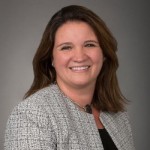
Kimm Isgar, Akin
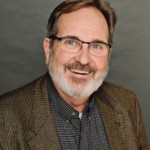
David Hines, Metro Nashville Public Schools

David Ballard, PsyD, MBA, HERO
The Carolyn C. Mattingly Award for Mental Health in the Workplace recognizes exemplary organizations that advance the mental health and well-being of their workforce, while also serving as examples for other employers. This webinar will highlight best practices and key success factors from two of the inaugural award winners – Akin and Metro Nashville Public Schools.
With more than 1,700 lawyers, advisors, and support staff in 20 offices worldwide, Akin provides employees with resources, tools, information, and coaching that focus on mental health and psychological well-being. While easily accessible, high-quality mental health benefits and resources play a critical role, for Akin, the keys to success lie in an incremental approach that involves employees, tailors the program to their unique needs, and meets people where they are.
Metro Nashville Public Schools is one of the largest school districts in the U.S., with 159 schools and 6,500 certificated teachers and staff who serve over 80,000 students. The district’s robust mental health offerings include coverage for behavioral health and substance abuse services, an Employee Assistance Program, onsite medical clinics, and more. MNPS knows that providing comprehensive benefits and resources alone does not guarantee results and bolsters its efforts by increasing access, removing barriers, and leveraging strong leadership support.
In addition to the award winners’ strategies, implementation processes, results, and lessons learned, you will also hear about the award criteria and tips for applying.
Guest Speakers:
Kimm Isgar is the Director of Benefits and Well-Being for Akin. Kimm designs and delivers strategic, compliant, and cost-effective programs by aligning benefits development with an organization’s goals and culture. She increases awareness and appreciation among employees through effective marketing strategies promoting the value of these programs. Prior to Akin, Kimm was the Benefits Manager for Howrey and a Senior Analyst, Health and Welfare for Goldman Sachs. Kimm received a BS in Political Science from SUNY Brockport. She is Work-Life Certified Professional and Yellow Belt in Legal Lean Sigma & Project Management.
David Hines is the Executive Director of Benefits for Metro Nashville Public Schools (MNPS). Having led benefits operations in county and state governments and private industry, David has a track record of making the healthy choice the easiest choice. David opened MNPS’s first integrated health and wellness facility, which has expanded to satellites and virtual health programs. Before the pandemic David recognized the need for accessible and affordable behavioral health services. He sourced innovative programs and negotiated health plan designs to eliminate financial burden on educators, which were a lifeline for many educators and staff during the pandemic. He also oversaw COVID testing, vaccinations, and return-to-school initiatives, optimizing the health and safety of the employees he serves. David regularly presents and consults across the country on designing full-scale programs to achieve the best health and well-being outcomes for employers.
David W. Ballard, PsyD, MBA, is a Senior Fellow and Scientific Advisor for Workforce Mental Health at HERO. His work focuses on organizational effectiveness, occupational health promotion, workforce mental health, program design and evaluation, and systems-level workplace interventions. David has provided research, consultation, and training services to government agencies, industry groups, corporations, private equity firms, medical schools, and universities. He currently serves on the boards of directors for The Health Project, which presents the C. Everett Koop National Health Awards, and Sound Mind, co-chairs the Advisory Committee for The Carolyn C. Mattingly Award for Mental Health in the Workplace, and is a member of NIOSH’s Cross-Sector Council on Healthy Work Design and Well-being.
This webinar is available to members only. Log in to view.
Priorities for Workplace Health as the Pandemic Recedes: Urgent Needs, Innovative Solutions
Original air date: March 15, 2023
Guest Panelists:
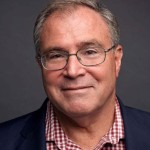
Derek Yach, DSc, MBChB, MPH, Global Health Advocate

Maggie Biscarr, MSW, Global Corporate Sustainability Executive
How ESG’s (Environmental, Social and Governance accountabilities) can be better integrated with company wellness programs is a featured part of HERO’s learning agenda in 2023. Dr. Derek Yach has worked at the highest levels in both public and private sector organizations and companies and has been deeply engaged in public/private partnerships throughout his career. Yach is the author of “Project Unthinkable: A Doctor’s Gamble to Save Millions of Lives” as well as lead author of many scientific papers and international policy reports. In this webinar, we discuss the opportunities and challenges of ESG’s as well as the potentialities and foibles of public private partnerships.
As the world recovers from the worst pandemic and shock to health in a century, Dr. Yach also takes stock of the long-term implications for the health of workers, and recommends actions companies, employees, and governments should take to protect their most valuable asset, employees. The latest WHO reports on global health paint a bleak picture punctuated by setbacks in progress related to many chronic diseases and mental health. Remote work and hybrid models of work are here to stay and challenge the way traditional workplace programs are organized. In this context, Dr. Yach will highlight how digital technologies took off during the pandemic and offer new ways of supporting employees to improve their health. He will also address the imperative to address mental health and physical activity with greater commitment and innovation. Some of the more innovative workplace programs will be offered as models to emulate.
Derek Yach, DSc, MBChB, MPH, a global health expert and anti-smoking advocate for more than 30 years, leads work to improve health as an independent global health consultant. He is a passionate advocate for health promotion and disease prevention. Dr. Yach was the President and Founder of the Foundation for a Smoke-Free World and is a former World Health Organization (WHO) cabinet director and executive director for noncommunicable diseases and mental health where he was deeply involved with the development of the world’s treaty on tobacco control, the Framework Convention on Tobacco Control (FCTC). He is also the former Chief Health Officer of the Vitality Group, Executive Director of the Vitality Institute, Senior Vice President, global health and agriculture policy at PepsiCo, director of global health at the Rockefeller Foundation, and a professor of global health at Yale University. He has authored or co-authored more than 250 peer-reviewed articles on global health and has served on several advisory boards, including the World Economic Forum, Cornerstone Capital, and the Wellcome Trust. Dr. Yach has an honorary DSc from Georgetown University, MBChB from the University of Cape Town, BSc from the University of Stellenbosch, and an MPH from the Johns Hopkins Bloomberg School of Public Health.
Maggie Biscarr, MSW, has over 15 years of experience developing and managing programs and public-private partnerships designed to serve vulnerable populations. In 2016, Maggie made a move from the non-profit sector to PepsiCo, where she directed a global partnership strategy for PepsiCo’s Public Policy / Government Affairs shop. Prior to her role at PepsiCo, Maggie led the development of AARP Foundation’s SNAP and nutrition incentive portfolios, including Fruit and Vegetable incentive and food Rx programs. She played a key role in the development and management of AARP’s Drive to End Hunger program with NASCAR and Hendrick Motorsports. In her early career, Maggie’s direct service experience included a stint working in the DC foster care system, providing behavioral health services for at-risk youth, and serving as a behavioral therapist for children with autism. In addition to serving on HERO’s board of directors, Maggie holds a board seat on the DC Central Kitchen board to support social enterprise, food security, and job creation in the city where she lives. Maggie received her Bachelor of Science degree in psychology from Mercer University and a master’s degree in social work from The University of Georgia.
This webinar is available to members only. Log in to view.
Searching for the Path from Employer Wellness Programs to Healthier Employees for Small Businesses
Original air date: February 16, 2023
Guest Panelists:

Jeffrey Harris, MD, MPH, MBA, University of Washington School of Public Health

Peggy Hannon, PhD, MPH, University of Washington School of Public Health

Marie Kava, PhD, MA, University of Washington School of Public Health
The University of Washington Health Promotion Center completed a cluster-randomized, controlled trial of HealthLinks, which promotes implementation of 12 evidence-based interventions (EBIs) aimed at increasing cancer screening, healthy eating, physical activity, and tobacco cessation. The three-armed trial in 78 workplaces compared HealthLinks alone, HealthLinks with workplace wellness committees, and a control. Compared to control, workplaces in both intervention arms significantly increased EBI implementation, our primary outcome.
This presentation will describe an analysis of the effect of HealthLinks on seven employee outcomes: the four health-related behaviors above, as well as perceived stress, depression risk, and presenteeism. The analysis tested bivariate associations along potential paths from EBI implementation to these outcomes. Associations were significant for 4 of the 6 indicators of physical activity and healthy eating, as well as for perceived stress, depression risk, and presenteeism.
Join us to learn more about this innovative analytic approach to answering whether “workplace wellness programs work.”
Guest Speakers:
Jeffrey Harris, MD, MPH, MBA, is Professor of Health Systems and Population Health in the School of Public Health at the University of Washington (UW). A board-certified internist and preventive medicine specialist, Jeff’s career combines public health practice and a population health approach within clinical systems. He is an active researcher who focuses on dissemination and implementation of evidence-based approaches to chronic disease prevention and healthy aging. Much of his research focuses on health promotion in workplaces. Jeff served for 20 years at the Centers for Disease Control and Prevention (CDC). He was the first AIDS Coordinator at the U.S. Agency for International Development, leading that program as it grew globally to span more than 70 countries. While at CDC, he also served for 6 years on the National Committee for Quality Assurance that develops HEDIS quality-of-care measures, shepherding through several prevention measures still in use.
Peggy Hannon, PhD, MPH, is a professor at the University of Washington School of Public Health and director of the Health Promotion Research Center, a CDC Prevention Research Center. She also co-leads the Optimizing Implementation in Cancer Control (OPTICC) Center, a NCI Implementation Science Center for Cancer Control. She completed her training in public health and social psychology at the University of North Carolina at Chapel Hill, and completed a postdoctoral fellowship at the University of Washington. Peggy’s research focuses on dissemination and implementation research, with an emphasis on cancer screening, workplace health promotion, and communities experiencing health disparities.
Marie Kava, PhD, MA, is a Clinical Assistant Professor in the Department of Health Services at the University of Washington School of Public Health. Her research interests include workplace health promotion, tobacco control, cancer prevention and control, implementation science, and health equity. Marie recently led a supplemental grant focused on increasing implementation of tobacco control evidence-based interventions at small worksites. She has published several research papers on employee health, including examinations of how organizational characteristics like culture are associated with employees’ health outcomes. Marie holds a Master of Arts degree in industrial-organizational psychology from Elmhurst College and a PhD in community and behavioral health from the University of Iowa.
This webinar is available to members only. Log in to view.
Recent C. Everett Koop National Health Award Winner, Denso International America, Shares Challenges and Best Practices in Employee Health and Well-Being
Original air date: January 23, 2023
Guest Panelists:

Ron Goetzel, PhD, Johns Hopkins Bloomberg School of Public Health

Brandy Cooper, CPSP, DENSO International America Inc.

Jan Gaskell, DENSO International America, Inc.
The C. Everett Koop National Health Awards recognizes exemplary programs shown to improve employee health and well-being (HWB) while at the same time achieving positive business outcomes by documenting value-on-investment (VOI). In this session, you will learn about the challenges and key learnings from Denso International America, the 2022 C. Everett Koop award winner, about their approach and design, as well as valuable tips on the application process, evaluation criteria, and the type of data required to demonstrate program impacts.
Guest Speakers:
Ron Goetzel, PhD, is a Senior Scientist and Director of the Institute for Health and Productivity Studies (IHPS) at the Johns Hopkins Bloomberg School of Public Health. The mission of the IHPS is to bridge the gap between academia, the business community, and the healthcare policy world – bringing academic resources into policy debates and day-to-day business decisions and bringing worker health and productivity management concerns to academia.
Brandy Cooper, CPSP, is the North American Human Resources Benefits Manager for DENSO International America Inc. She is responsible for strategy, design, financial planning, and management of health, welfare, and retirement benefits for 11,600 associates and their family members in the U.S. Brandy has over 13 years of experience working in the employee benefits space. Prior to working in employee benefits, she began her career in quality control before moving to education & development, then communications. This work experiences established a foundation in data analysis, process control, continuous improvement, and human behavior which lends well to the current role managing employee benefits.
Jan Gaskell is the Benefits Project Manager for DENSO International America, Inc. She is responsible for wellness and oversight of onsite health center operations. Jan has 41 years of experience in employee benefits. She worked as a site benefits administrator for DENSO for 30 years prior to moving to her current role supporting benefits and benefit projects for all DENSO associates in the U.S. Jan has passion for people and well-being, and this enthusiasm pairs positively with facilitation of the wellness program, including onsite health centers, wellness coaching, and disease management programs.
This webinar is available to members only. Log in to view.
A Cure for the Common Company
Original air date: January 19, 2023
Guest Panelists:
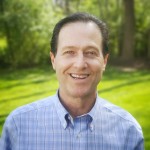
Richard Safeer, MD, Johns Hopkins Medicine
The health and wellness industry has historically focused on individual health behaviors as the fastest path to change, but what if it isn’t? What if we need a supportive workplace and the collective effort of the workforce to help us stay on a healthy and well path?
Too often our job and our workplaces seem to conspire against an individual’s best attempts at health, even with well-being programs! Why is that, and how can we get it right? In this session, Dr. Richard Safeer will share a well-being prescription for a happier, healthier, and more resilient workforce. Learn the ingredients to become a Fortune 100 Best Companies to Work For. You will learn:
- The meaning of a well-being culture and why it’s important for both employees and leaders.
- The 6 well-being culture building blocks needed for a healthier, happier, and more resilient workforce.
- Specific steps to take that will make the workplace work for your health and not against it.
Richard Safeer, MD, is Chief Medical Director of Employee Health and Wellbeing at Johns Hopkins Medicine and the author of A Cure for the Common Company: A Well-Being Prescription for a Happier, Healthier and More Resilient Workforce. His responsibilities at Hopkins include leading the employee health and well-being initiative, Healthy at Hopkins. Richard also advises the institution on matters related to health plan benefits, occupational health, and the employee assistance program. He has published journal articles and is featured in many books. He regularly speaks to national audiences in the employee health and well-being space, focusing on how to create healthy workplace cultures. Richard completed his BS in nutrition at Cornell University before graduating from medical school at the S.U.N.Y. at Buffalo (magna cum laude). He’s a fellow of the American Academy of Family Practice, the American College of Lifestyle Medicine, and the American College of Preventive Medicine.
This webinar is available to members only. Log in to view.
Are You Addressing the Mental Health, DEI, and SDOH Needs of Your Employees?
Original air date: December 1, 2022
Guest Panelists:
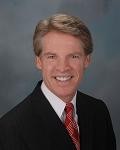
Steven Noeldner, PhD, MS, Mercer

Katie Scott, MS, Mercer

Mary Imboden, PhD, HERO
The coronavirus pandemic has exacerbated many mental health issues and further revealed health inequities that may be influenced by social determinants of health (SDOH) and the lack of belonging felt by some employees. HERO and Mercer collaborated to develop best practice scores for these three key areas: mental health and well-being, social determinants of health (SDOH), and diversity, equity, and inclusion (DEI). These special best practice scores were derived from the current set of questions in the HERO Scorecard (v5) and are now available to all HERO Scorecard completers. This webinar will explain how the mental health and well-being, SDOH, and DEI best practice scores were developed and scored. The webinar will also educate participants on how they can use these scores to identify and prioritize opportunities within their organizations and use best practices to address them.
Guest Speakers:
Steven Noeldner, PhD, MS, is a senior consultant in Mercer’s Total Health Management practice and serves as the lead of the well-being vertical. He has more than 30 years of experience in the well-being and health management fields. Steven has worked with many of Mercer’s largest clients, helping them design strategies for comprehensive health and well-being initiatives, vendor selection, vendor monitoring, measurement and evaluation of the impact and outcomes of their efforts. Steven serves on HERO’s Board of Directors and is Chair of the Research Committee. He is a co-author of the HERO Health & Well-being Best Practices Scorecard in Collaboration with Mercer©. Steven has published research papers in peer-reviewed journals, written book chapters and presented at national and international conferences. Steven holds a Master of Science degree in clinical exercise physiology and a PhD in exercise science with concentrations in exercise physiology, biomechanics and sport psychology.
Katie Scott, MS, is a senior associate consultant on Mercer’s Total Health Management specialty team and has experience consulting on the topics of diversity and inclusion, behavioral health, employee engagement, leadership involvement, and company culture to help address challenges of population health in organizations. Katie previously worked in human resources and operations in both the technology and healthcare industries. Katie’s experience and passion includes behavioral health, diversity and inclusion, and addressing employee total well-being. Katie holds a Bachelor of Arts in psychology from University of San Francisco and a Master of Science degree in organizational psychology from University of Southern California.
Mary Imboden, PhD, is the Director of Research for HERO where she oversees the execution of the HERO research agenda. This includes providing oversight of the HERO Research Committee and consultation to HERO study committees. She also oversees the ongoing development and research of the HERO Health and Well-Being Best Practices Scorecard in Collaboration with Mercer © (HERO Scorecard), along with growth and management of the HERO Preferred Provider Network.
This webinar is available to members only. Log in to view.
Recent C. Everett Koop National Health Award Winners Share Challenges and Best Practices in Employee Health and Well-being
Original air date: November 14, 2022
Guest Panelists:

Kristi Rahrig Jenkins, PhD, MPH, University of Michigan

Maren Fragala, PhD, Quest Diagnostics

Ron Goetzel, PhD, Johns Hopkins Bloomberg School of Public Health
The C. Everett Koop National Health Award recognizes exemplary programs shown to improve employee health and well-being (HWB) while at the same time achieving positive business outcomes by documenting value-on-investment (VOI). In this session, you will learn about the challenges and key learnings from two award-winning organizations about their approach and design, as well as valuable tips on the application process, evaluation criteria, and the type of data required to demonstrate program impacts.
Learning Objectives
After attending this webinar, participants will be able to:
- Explain insights from former Koop Award Winners about the key learnings which enabled their programs’ successes, including overcoming challenges.
- Identify the metrics of program success including health impact and business outcomes.
- List details and benefits of completing the C. Everett Koop National Health application process, including the minimum requirements that must be met for a winning application and the tools and resources available to Koop award applicants.
Kristi Rahrig Jenkins, PhD, MPH, is the Research Program Manager for MHealthy, the health and well-being initiative for the University of Michigan’s faculty, staff, and dependents. She leads the development and execution of the evaluation and scientific research activities of MHealthy, including data collection, management, and analysis; developing and sustaining scientific partnerships; and serving as the point person for all internal and external data-related inquiries and processes. Kristi has over twenty years of experience in research units at the University. Before joining MHealthy in 2009, Kristi worked for the University’s Addiction Research Center and the Institute for Social Research exploring research questions related to health behavior across the life course, particularly issues related to chronic disease, family relationships, social and psychological aspects of health, and population health. Kristi holds an MPH in community health education from the University of South Florida and a PhD in Sociology from Wayne State University.
Maren Fragala, PhD, is currently the Director of Scientific Affairs for Quest Diagnostics where she advances measurable health outcomes for the company’s 50,000 employees. She earned the company distinction as a Best Employer for Healthy Lifestyles and received the C. Everett Koop Award for exemplary work in health and disease prevention. Maren held academic positions at Harvard School of Public Health, University of Connecticut Health Center, and University of Central Florida (UCF), publishing 125+ scientific manuscripts and serving on the Biomarkers Consortium of the Foundations of the NIH. She was recognized as one of the women to chart the course of UCF’s history, Ragan’s top women in Wellness, and earned JSCR’s award for Editorial Excellence. Maren holds a certification with distinction from the National Strength and Conditioning Association, an MS in exercise physiology from the University of Massachusetts, and a PhD in Kinesiology from the University of Connecticut.
Ron Goetzel, PhD, is a Senior Scientist and Director of the Institute for Health and Productivity Studies (IHPS) at the Johns Hopkins Bloomberg School of Public Health. The mission of the IHPS is to bridge the gap between academia, the business community, and the healthcare policy world – bringing academic resources into policy debates and day-to-day business decisions and bringing worker health and productivity management concerns to academia.
Sponsored by Health Enhancement Research Organization (HERO), a designated provider of continuing education contact hours (CECH) in health education by the National Commission for Health Education Credentialing, Inc. This program is designated for Certified Health Education Specialists (CHES) and/or Master Certified Health Education Specialists (MCHES) to receive up to 1 total Category I contact education contact hours. Provider ID#101039
This webinar is available to members only. Log in to view.
Work Redesign for the 21st Century: An Evidence-Based Framework and Toolkit for Improving Worker Well-Being
Original air date: October 27, 2022
Guest Panelists:

Meg Lovejoy, PhD, Harvard T.H. Chan School of Public Health

Reactor: Krystal Sexton, PhD, Shell Oil Company
This webinar will introduce viewers to an evidence-based framework and toolkit for improving worker well-being. The “Work Design for Health” framework updates work redesign principles for the realities of work in the 21st century and maps how to create work environments that foster worker well-being and organizational resilience. The approach shifts the traditional focus from changing individual health behaviors to creating workplace conditions that support employee health and well-being. The audience will also learn about the accompanying Work Design for Health employer toolkit and website that highlights a wide range of promising management practices, tested through research, that illustrate the principles of this approach.
Learning Objectives
After viewing this webinar, participants will be able to:
- Describe the “Work Design for Health” framework and how it differs from traditional approaches, including the three principles at the heart of the “Work Design for Health” framework.
- Create a preliminary plan for designing and implementing a “Work Design for Health” approach.
- Identify research that supports this evidence-based framework.
Guest Speaker:
Meg Lovejoy, PhD, is the Research Program Director for the Work and Well-Being Initiative (WWBI) at the Center for Population and Development Studies within the Harvard T.H. Chan School of Public Health. The WWBI is a research and policy program designed to develop, implement, and test evidence-based workplace change for worker well-being. At the center, Meg has overseen several studies funded by the Robert Wood Johnson Foundation concerning the well-being of low- to moderate-wage workers. She is currently leading the process evaluation for a randomized control trial of an intervention to improve the well-being of fulfilment center workers. As a sociologist, her recent research has centered on work-life integration, and workplace and organizational change with a focus on worker well-being and equity.
Reactor:
Krystal Sexton, PhD, is the global health analytics manager at Shell. Krystal began her career at Shell as an epidemiologist and helped develop the holistic approach to health that covers physical, mental, and social health. She wrote the scientific evidence base for the new approach to health that went to the CEO and C-suite leaders, and she led the well-being team for North and South Americas for several years. Krystal now leads a global team of epidemiologists and health analysts who support cross-discipline and cross-functional work across Shell. She obtained an MS in biostatistics and PhD in epidemiology from the University of Texas School of Public Health and completed postdoctoral fellowships at both MD Anderson Cancer Center and Baylor College of Medicine. She was faculty at Baylor College of Medicine with a research focus on breast cancer disparities in diagnosis and survival of minority women.
Sponsored by Health Enhancement Research Organization (HERO), a designated provider of continuing education contact hours (CECH) in health education by the National Commission for Health Education Credentialing, Inc. This program is designated for Certified Health Education Specialists (CHES) and/or Master Certified Health Education Specialists (MCHES) to receive up to 1 total Category I contact education contact hours. Provider ID#101039
This webinar is available to members only. Log in to view.
Character strengths can help your health. Evidence from longitudinal survey data and medical records.
Original air date: October 12, 2022
Guest Panelists:

Dorota Weziak-Bialowolska, PhD, Jagiellonian University and Harvard University.
The ability to promote good for oneself and others has been linked to higher levels of life satisfaction and increased mental and physical health. A study, first published in October 2020, of workers in the US and Mexico showed altruistic behaviors positively impacted emotional well-being and physical health outcomes. The study also suggested that this character strength correlated with better social-connectedness and purpose.
So, how can employers promote this orientation to increase the health of their populations and protect them against work related stress? Join study author Dorota Weziak-Bialowolska, PhD, as she discusses her findings and their applicability in the workplace. This paper won “Paper of the Year” in 2021 from the American Journal of Health Promotion.
Dorota Weziak-Bialowolska, PhD, is an associate professor at the Jagiellonian University (Cracow, Poland) and research affiliate at the Human Flourishing Program, Harvard University. Previously, she held positions as a research scientist at the Harvard T.H. Chan School of Public Health, a post-doctoral researcher and a research fellow for the European Commission Joint Research Centre (Italy), assistant professor at the Educational Research Institute (Poland), and an assistant professor and research and teaching assistant at the Warsaw School of Economics (Poland).
In her career, Dorota has had an opportunity to work with policy makers, international organizations, foundations and non-profit international organizations on multiple interdisciplinary projects. She also served as a scientific advisor for the European Foundation for the Improvement of Living and Working Conditions (Eurofound) in the “Quality of life in major European cities” project. To date, she has published more than 80 papers in peer reviewed journals, 7 book chapters, and 2 books. Dorota received her master’s degree in quantitative methods, her doctoral degree in economics, and post-doctoral degree in sociology.
This webinar is available to members only. Log in to view.
Workforce Mental Health: Accelerating adoption of best practice guidance and elevating the conversation to a sustained national level
Original air date: September 8, 2022
Guest Panelists:
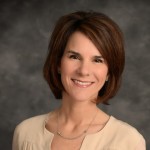
Jennifer Posa, PhD, MS, Johnson & Johnson
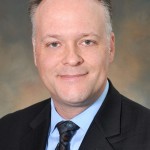
David W. Ballard, PsyD, MBA, HERO/GhostNote Consulting

Emily Wolfe, MSW, LCSW, HERO
Evidence-based best practices for worksite health and well-being (WWB) have been widely established for more than two decades. Although these practices are embraced by many leading organizations with best-in-class WWB programs, research led by HERO award-winning researcher Dr. Laura Linnan shows that progress toward broader implementation has been glacial. The findings from this nationally representative sample of 2,843 companies show that comprehensive programs increased only slightly between 2004 and 2017 and just 11.8% met all five of the comprehensiveness criteria.
With workforce mental health (WMH) coming to the forefront during the pandemic, employers are grappling with recent and emerging WMH guidance, including standards and guidelines, certification and recognition programs, measurement strategies, and best practice case examples. A number of countries including Canada and the UK have implemented WMH standards and ISO recently released new guidelines on psychological health and safety at work – the first global standard on managing psychosocial risks. But will the abundance of resources and guidance lead to significant, sustainable change?
This webinar will explore the current WMH landscape and how we can drive adoption of best practices and move the conversation from a reactive response to a global crisis to a sustained national movement.
This webinar will serve as a primer and preview of the HERO’s Fall Think Tank, September 20th, in Amelia Island, Florida, where we will explore: “Will new and emerging guidance improve employer efforts to advance workforce mental health?”
Speakers:
Jennifer Posa, PhD, MS, is the Global Head for Employee Mental Wellbeing & Workplace Effectiveness within Global Health Services at Johnson & Johnson (J&J). In this role, she is responsible for the development of the mental health & well-being strategy and workplace effectiveness programs for J&J employees worldwide.
Jennifer is a seasoned health care executive, author, and speaker, with extensive experience in mental health & well-being, population health, and the development of value-based measures and standards. Throughout her tenure at J&J, Jennifer has supported the development and execution of Janssen’s healthcare quality strategy for Neuroscience and Infectious Disease and provided strategic market leadership within key US markets. Jennifer has also led numerous successful industry research initiatives and is a well-known subject matter expert and thought leader in the areas of organizational support, psychological well-being at the workplace, and building cultures of health within organizations.
Jennifer holds a BA in psychology from Denison University, an MS in health fitness management from American University, and a PhD in industrial/organizational psychology from Capella University. She has served as an advisor for the HERO Scorecard, including recent updates to both the US and International versions.
David Ballard, PsyD, MBA, is the founder and principal of GhostNote Consulting. He is an organizational consultant with more than 15 years of prior experience as a non-profit executive. His emphasis is on promoting employee well-being and organizational performance through the integration of psychology and business. David’s work focuses on organizational effectiveness, occupational health promotion, workplace mental health, program design and evaluation, and systems-level workplace interventions. He has provided research, consultation, and training services to government agencies, industry groups, corporations, private equity firms, medical schools, and universities.
David is the Scientific Advisor for Workforce Mental Health at the Health Enhancement Research Organization (HERO). He currently serves on the boards of directors for The Health Project and Sound Mind. He chairs the Society for Occupational Health Psychology’s Practitioner Committee, co-chairs the Advisory Committee for The Carolyn C. Mattingly Award for Mental Health in the Workplace, and is a member of NIOSH’s Cross-Sector Council on Healthy Work Design and Well-being, and the External Advisory Board for the Johns Hopkins P.O.E. Total Worker Health Center in Mental Health.
He received his doctorate in psychology and his MBA in health services administration from Widener University.
Moderator: Emily Wolfe, MSW, LCSW, is HERO’s Director of Learning Experience, providing leadership and project management for HERO Committees and the various projects that the committees produce. In addition to committee project management, Emily supports HERO’s Senior Fellow in planning HERO Think Tank meetings. She is a Licensed Clinical Social Worker and received her master’s degree in social work from UNC-Chapel Hill with a concentration in adult mental health. She has experience working in hospital settings, including oncology and clinical care management, employee work-site wellness programming, transitional community housing, and private mental health practice. Emily has a strong interest in the intersection of workplace culture and employee mental health, and the unique health and well-being needs of lower-wage earners.
This webinar is available to members only. Log in to view.
Workplace Psychosocial Stressors, Mental Health, and Well-Being at Work: The Role of Supportive Supervision
Original air date: July 27, 2022
Guest Panelists:

Leslie Hammer, PhD, Oregon Institute of Occupational Health Sciences at OHSU; Oregon Healthy Workforce Center; Portland State University
Research evidence indicates that psychosocial stressors such as low supervisor support and high work-life stress are negative occupational exposures related to poor psychological and physical health, negative work outcomes, and adverse effects on families. These associations suggest that Occupational Health Psychology and Total Worker Health® interventions such as leadership support trainings may be helpful in mitigating effects of workplace psychosocial stressors on health and well-being. This presentation will review workplace psychosocial stressors and leadership training approaches to reduce stress and improve psychological and physical health, highlighting several examples from randomized controlled trials conducted by the research team that crosses over between Oregon Heath & Science University and Portland State University.
Leslie Hammer, PhD, is the Associate Director for Applied Research in the Oregon Institute of Occupational Health Sciences at Oregon Health & Science University and Co-Director of the Oregon Healthy Workforce Center, Total Worker Health® center funded by the National Institute of Occupational Safety and Health. She is also a Professor Emeritus at Portland State University. Leslie is a leading expert on work and family, occupational stress, and workplace mental health and specializes in the mental and physical health effects of supportive supervision at work, occupational stress, and work-family conflict. She has extensive experience in designing, implementing, and evaluating worksite interventions and supervisor training.
This webinar is available to members only. Log in to view.
A CDC Foundation Supported Learning Collaborative: Employers Pursuing a Workforce Culture of Health and Well-Being Together
Original air date: July 12, 2022
Guest Panelists:

Ray Fabius, MD, HealthNEXT
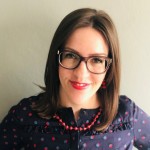
Michele Bildner, MPH, MCHES®, CDC Foundation

Neil Goldfarb, Greater Philadelphia Business Coalition on Health
A HEROForum22 Preview!
This webinar will describe a unique partnership between the CDC Foundation, the Greater Philadelphia Coalition on Health (GPBCH) and their members, and HealthNEXT, a health and well-being management company. Leveraging funding and support from the CDC Foundation, the GPBCH has organized several employer members to participate in a learning collaborative driven by the digital HealthNEXT platform and their physician executive “NEXTperts.” The Hallmark of this endeavor is for a collection of employers in the same community to learn from each other as they all pursue a benchmark workforce culture of health and well-being.
The audience will first hear from leaders of the CDC Foundation, the GPBCH, and HealthNEXT as they delineate their roles of this mutually shared project. They will highlight the goals of the project, the demographics of the participating enterprises, the proposed timeline and methodology. Perhaps, most importantly, the audience will also hear the early impressions of employers in the collaboration.
Speakers:
Throughout his career, Ray Fabius, MD, has garnered medical and business leadership experience in healthcare management areas including informatics, strategy, operations, network development and oversight, patient management, quality management, disease management, national accounts, occupational medicine, emergency preparedness, worker productivity, wellness and health promotion, travel medicine, web-based health content delivery, data warehousing, and analytics. He has served as a physician executive in academics, private practice, managed care, the health insurance industry, e-health, corporate and workplace health, the pharmaceutical industry, and health informatics and analytics. He served as Global Medical Leader for General Electric, Chief Medical Officer (CMO) for Thomson Reuters, Population Health Strategist for Walgreens, and CMO for Truven Health Analytics. He was also the CMO and president of I-trax, Inc. He is the author of many articles, chapters, and books. In 2021, Ray received the Bill Whitmer Award for lifetime leadership in the health and well-being space.
Michele Bildner, MPH, MCHES®, is a Project Manager for Non-Infectious Disease Programs at the CDC Foundation where she is responsible for public-private partnerships for chronic disease health promotion. She has worked in public health and health education for a dozen years, researching and evaluating childhood obesity policies, systems, and environments; assessing, planning, and implementing community health initiatives; and achieving health department accreditation and organizational strategic management. Michele began her DrPH in Leadership at the University of Illinois Chicago School of Public Health with the 2019 cohort and has a deep interest in identifying, diagnosing, and addressing adaptive public health and organizational challenges. She has organizational leadership experience ranging from the governmental sector, private industry, higher education, community health, and research and evaluation consulting. Her practice is rooted in collaborative approaches for convening key partners to lead change that achieves racially equitable and improved population health outcomes.
Neil Goldfarb is President and CEO of the Greater Philadelphia Business Coalition on Health, an employer-led non-profit organization established in 2012 with the mission of developing best practices for maintaining a healthy workforce and ensuring that when healthcare is needed it is high-quality, accessible, affordable, and safe. He brings over 30 years of healthcare research and management experience to his Coalition leadership position. Neil has authored over 60 articles in the peer-reviewed literature, focused on his interests in health and disease management, quality measurement and improvement, care for the under-served, and health economics and outcomes research. He has served as adjunct faculty for the Jefferson College of Pharmacy and University of the Sciences. Neil is a member of the Board of Governors of the National Alliance of Healthcare Purchaser Coalitions and founding co-Director of the National Alliance College for Value-based Purchasing of Health Benefits.
Marsha Greene-Jones, MA, is Deputy Director, Human Resources with the City of Philadelphia. In her role, she is responsible for leading the benefits strategy, design, and administration for both active and retiree health and welfare benefit programs. She currently serves as an Alternate Trustee on the Board of Pensions for the City of Philadelphia (Retirement Fund) and is a Trustee on the Health and Welfare Boards for the Police and Fire Unions as well as District Council 47 and District Council 33. Marsha also serves as the Board Chair for the Greater Philadelphia Business Coalition on Health and is a member of the Client Advisory Board for Active Health Management. She holds a Bachelor of Arts degree from Bennett College and a Master of Arts degree from Ohio University.
Lynne Pierce serves as the Chief of Real Estate and Office Operations for Ballard Spahr LLP, a national law firm with over 600 lawyers. Her primary responsibilities include oversight of the operation of the firm’s fifteen offices, including direct support, outsourcing, procurement, firm events, sustainability, travel services and, most recently, the firm’s return to on-site operations. In addition, she founded the Firm’s Well-Being Committee in 2018. The Committee focuses on programing surrounding mental, emotional, social, financial, and physical well-being. Ballard Spahr was one of the first law firms to sign the American Bar Association’s Well-Being Pledge. Lynne is a founding member of the Philadelphia Chapter of the Association of Legal Administrator’s Diversity, Equity and Inclusion Task Force, and serves on the firm’s Diversity Council, Staff Strategy Group, and DE&I Education Curriculum Group.
Mental Health During the COVID-19 Pandemic and Beyond — Associated Characteristics and Disproportionately Affected Populations
Original air date: June 23, 2022
Guest Panelists:

Mark É Czeisler, PhD, Monash University

Heidi Mochari Greenberger, PhD, MPH, AbleTo, Inc.

Sara Johnson, PhD, Pro-Change Behavior Systems, Inc./HERO
The impact of COVID-19 on mental health in America has been profound and is still unfolding. The pandemic and its mitigation have introduced challenges for communities related to the morbidity and mortality caused by the disease itself and related to mental and behavioral health. As clinicians and scientists in the virtual health care space, we have observed the COVID-19 pandemic through the lenses of history, epidemiology, policy, and patient care., and, just as with the disease itself, mental and behavioral health inequities are evident.
This webinar reviews evidence on mental and behavioral health during the pandemic, particularly in terms of behavioral changes observed during the pandemic, as well as populations that have disproportionately experienced adverse mental health symptoms. We will also describe the value of providing virtual access to high-quality behavioral health care both prior to and during the pandemic and share real-world clinical and workplace outcomes from nationally scaled service delivery during this unprecedented time.
Upon completion of this webinar, participants will be able to:
- Describe population-level mental health responses to the COVID-19 pandemic.
- Relate lifestyle changes (e.g., sleep, physical activity) to changes in mental health.
- Describe how virtual care delivery alleviates barriers to evidence-based behavioral health care.
- Identify process and outcomes measures associated with behavioral health care quality.
- Name workplace best practices to ease access to high quality mental health care services.
Mark É Czeisler, PhD, completed his PhD in psychology at the School of Psychological Sciences in the Faculty of Medicine, Nursing and Health Sciences at Monash University, where he is currently a research fellow. He is also a medical student in the Francis Weld Peabody Society at Harvard Medical School. Previously, he was a 2020-2021 Fulbright Postgraduate Scholar supported by the Australian-American Fulbright Commission and funded by The Kinghorn Foundation. He received his Bachelor of Arts in neurobiology with a minor in global health and health policy from Harvard College.
During the COVID-19 pandemic, Dr. Czeisler led the COVID-19 Outbreak Public Evaluation (COPE) Initiative (www.thecopeinitiative.org), designed to assess public attitudes, behaviors, and beliefs about the pandemic and its mitigation, and to evaluate mental and behavioral health during the pandemic.
Heidi Mochari Greenberger, PhD, MPH, is Vice President of Clinical Research at AbleTo, Inc., a national virtual behavioral health care provider. In this capacity, she guides program evaluation and development research with a focus on innovative and evidence-based methods with clinical and public health relevance. Heidi received her Bachelor of Science degree from Cornell University and Master of Public Health and doctoral degrees in epidemiology from Columbia University. She has over 20 years of experience in the design, execution, and dissemination of clinical and epidemiological research in hospital, academic, and business settings. The heart of her work is dedicated to overcoming disparities in disease prevention through interventions at the intersection of behavioral and physical health.
Moderator: Sara Johnson, PhD, is a Senior Research Fellow at HERO where she provides research thought leadership and identifies funding opportunities for new studies through grants and industry partnerships. In addition, she is also Co-President & CEO of Pro-Change Behavior Systems, Inc., a behavior change consulting firm and solution provider that empowers people to experience life-changing breakthroughs in health and well-being. She is also the Chair of the Art and Science of Health Promotion Conference, and Co-Editor of Knowing Well, Being Well. In 2019, Dr. Johnson received the Health Enhancement Research Organization’s Mark Dundon Research Award and was named one of the 50 on Fire by Rhode Island Inno. She was named the Health Care Services Woman to Watch by Providence Business News in 2018, and in 2015, she was selected as a Top 10 Health Promotion Professional by the Wellness Council of America.
Email Ariane to receive 1 CHES/MCHES credit: ariane.mistral@hero-health.org
Sponsored by Health Enhancement Research Organization (HERO), a designated provider of continuing education contact hours (CECH) in health education by the National Commission for Health Education Credentialing, Inc. This program is designated for Certified Health Education Specialists (CHES) and/or Master Certified Health Education Specialists (MCHES) to receive up to 1 total Category I contact education contact hours. Provider ID#101039
This webinar is available to members only. Log in to view.
Using Community-Based Participatory Research in Churches to Tailor the Diabetes Prevention Program for African American Women: Lessons Learned and Outcomes
Original air date: May 11, 2022
Guest Panelists:
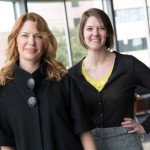
Heather Kitzman, PhD & Leilani Dodgen, MPH, Baylor Scott & White Health and Wellness Center
Is faith the new prescription for disease prevention? Heather Kitzman, PhD, Director of Research at the Baylor Scott & White Health and Wellness Center and Professor at Baylor University, and Leilani Dodgen, MPH, Research Manager at the Baylor Scott & White Health and Wellness Center, think so. Their research into diabetes prevention programs using randomized trials in African American churches provides support for this new ally. The trial evaluated a community-based participatory research developed faith-based diabetes prevention program to improve weight loss in African American women where lay health leaders facilitated interventions at church sites with pastor involvement. Join us for this HERO webinar as Heather and Leilani present the outcomes of their research and lessons learned to help others get the most out of using faith in prevention. This research won Paper of the Year from the American Journal of Health Promotion.
Heather Kitzman, PhD, is the Director of Research at the Baylor Scott & White Health and Wellness Center and a Clinical Associate Professor of Health Services Research at the Robbins Institute for Health Policy & Leadership at Baylor University. Her area of expertise is the implementation of large randomized trials in community-based settings including schools, clinics, churches, and other community sites to test novel approaches to improve chronic disease risk. In her role as Research Director, she manages all programmatic healthcare data within the center. She oversees data analysts and data managers to integrate data sources including wellness services, primary care electronic health records, and other clinical services such as medical nutrition therapy, diabetes prevention programs, and many others. This aggregated data is used to evaluate value-based care models, publish innovations to influence healthcare policy, and strengthen the center’s programmatic funded research initiatives.
Leilani Dodgen, MPH, is a Research Manager at the Baylor Scott & White Health and Wellness Center and a PhD candidate in public health from University of North Texas Health Science Center. For the last decade, she has applied community based participatory research (CBPR) to improve the health of underserved communities, particularly women. Through building relationships with and partnering to build various community advisory boards or groups she has helped in the design, implementation, and evaluation of multiple theory-based, CBPR, lifestyle interventions. In her current role at Baylor Scott and White Health, Leilani continues to utilize CBPR as a way to address health inequities within the southern sector of Dallas. She is currently a Co-Investigator on the I-POP trial evaluating the role of community health workers as navigators for social and medical needs in a randomized trial.
This webinar is available to members only. Log in to view.
EAP Industry Update: What Employers Need to Know
Original air date: April 27, 2022
Guest Panelists:

Mark Attridge, PhD
This presentation features research-based trends in the employee assistance program (EAP) industry in the United States. Recent data on market size, outcomes of counseling, and the boom in new technology-based mental health support provider companies are examined. Recommendations are given for how employers can better understand and evaluate the wide range of EAP and other workplace mental health support service offerings now available as employee benefits. Open discussion and Q&A is encouraged. Background source documents included for further reading.
Recommended Reading:
Attridge, M. (2022, March 24). Techno Trends in Workplace Mental Health: Industry Survey Reveals Challenges and Opportunities. [Conference Presentation] Employee Assistance Professionals Association Virtual Conference.
SLIDES here: http://hdl.handle.net/10713/18398
Parmenter, E., & Attridge, M. (2021). Can robots improve the mental health of the workforce? Benefits Magazine, 58(5), 38-45.
PAPER here: http://hdl.handle.net/10713/14684
London, E. (2020). Employee mental health: Landscape overview, employer experiences, & best practices. [White paper]. Pacific Business Group on Health.
WHITE PAPER here: http://hdl.handle.net/10713/14087
Mark Attridge, PhD, is President of Attridge Consulting, Inc., an applied research and business advisory firm. He has 25 years of experience in workplace mental health and employee assistance program (EAP) services. As an independent scholar, Mark has worked on projects with many of the leading EAP providers. He is an expert on measuring outcomes, ROI, and best practices in integrating employee assistance, work/life, and wellness programs. Previously, Mark was a National Director at Watson Wyatt Worldwide, where he led the research and consulting team supporting employer members of the National Data Cooperative. Mark is the author of over 40 peer-reviewed scientific papers and book chapters and over 200 trade articles, conference presentations, and industry trainings. He earned a doctorate degree in psychology (social) from the University of Minnesota and a master’s degree in communication from the University of Wisconsin Milwaukee.
This webinar is available to members only. Log in to view.
Translating CDSMP* to the Workplace: Challenges and Results of the Live Healthy Work Healthy Program Implementation
Original air date: April 21, 2022
Guest Panelists:
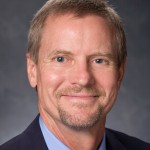
Mark Wilson, HSD, University of Georgia
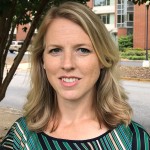
Heather M. Padilla, PhD, RDN, LD, University of Georgia
The presentation will highlight the challenges of translating and implementing an evidence-based program in a rural workforce. Results from the Live Healthy Work Healthy program evaluation will be presented to show the potential impact of a translated program on a diverse workforce.
*Chronic Disease Self-Management Program
Resources:
https://journals.sagepub.com/doi/full/10.1177/0890117120968031
https://selfmanagementresource.com/
Mark Wilson, HSD, is Professor Emeritus in the Department of Health Promotion & Behavior in the College of Public Health at the University of Georgia. He has been conducting research, teaching, and consulting in the workplace health promotion arena for over 35 years. At the University of Georgia Mark co-founded the Workplace Health Group (WHG), a multi-disciplinary research group focused on workplace health issues. The WHG has been a national leader in workplace health promotion by expanding the horizon of worksite health promotion, developing and testing a comprehensive model of organizational health, examining the efficacy of organizational and environmental interventions to reduce obesity, encompassing both the physical and social environment, and translating clinical and community interventions to worksite practice. Mark has served on a variety of advisory panels and editorial boards at the national level including Associate Editor-in-Chief for the American Journal of Health Promotion.
Heather M. Padilla, PhD, RDN, LD, is an Assistant Professor in the Department of Health Promotion and Behavior at the University of Georgia College of Public Health. Heather enjoys teaching and mentoring public health students at all stages of their education. She particularly enjoys mentoring students in undergraduate and graduate research projects. In her own research, she has focused on understanding the dynamic relationship between work and health. Heather has experience in designing, implementing, and evaluating public health interventions for working adults in a variety of worksites. She began working with the Workplace Health Group in 2006 and currently serves as Director. Heather earned her PhD in health promotion and behavior in 2017 at the University of Georgia. She also holds an MS degree in Nutrition (2002) and a BSFCS in Dietetics (2000). Heather has been a Registered Dietitian Nutritionist since 2003.
This webinar is available to members only. Log in to view.
Lessons Learned From a Global COVID-19 Mixed Methods Survey From the Early Pandemic Days
Original air date: March 23, 2022
Guest Panelists:

Rob Lennon, MD, JD, Penn State College of Medicine
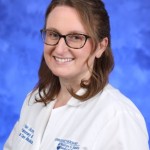
Lauren Jodi Van Scoy, MD, Penn State
At the beginning of the pandemic, we completed one of the largest global surveys of COVID-19 knowledge, intended behaviors, trust, and preferred information sources. It also included a rich set of qualitative answers to help inform quantitative analysis. In this talk, we’ll share a series of interesting findings that came out of this project, including insights into how COVID-19 has changed information consumption, correlations between information sources and both knowledge and perceived risk, correlations between intended behavior and actual infection, how poor information dissemination has led to increased anxiety, racial differences in COVID-19, cross-cultural differences in COVID-19 response, and finally, the use of artificial intelligence to augment mixed methods research.
Learning Objectives
- Learn how COVID-19 has changed how we get information and how different sources of information affect our perception and behavior.
- Understand how lack of good information has led to racial and cultural differences in COVID-19 and the response to the pandemic.
- Discover the benefits of using artificial intelligence in mixed methods research.
Email Ariane to receive 1 CHES/MCHES credit: ariane.mistral@hero-health.org
Rob Lennon, MD, JD, is an Associate Professor and Director of Resident Scholarly Activity for the Department of Family and Community Medicine at Penn State College of Medicine. He served in the US Navy Medical Corps for 14 years in numerous executive positions and leading humanitarian missions to Central and South America, transitioning to Penn State in 2019 to focus on research. His funded research includes: osteopathic manipulation techniques for the treatment of chronic migraines; developing topical reducing agents to reduce reactive oxygen species on skin; comparing mindfulness meditation versus cognitive behavioral therapy for opioid-treated low back pain; COVID-19 research projects on global perspectives, understanding, and intent to comply with public health recommendations; and osteopathic manipulation techniques to improve outcomes in COVID-19 patients with respiratory distress. He also collaborates with colleagues at the University of São Paulo, Brazil to facilitate global health engagement with Amazon Riverine populations.
Lauren Jodi Van Scoy, MD, is an Associate Professor of Medicine, Humanities, and Public Health Sciences, co-founding Director of the Qualitative and Mixed Methods Core, and practicing pulmonary and critical care physician at Penn State. She recently received the Jo Rae Wright Award for scientific excellence from the Parker B. Francis Foundation. Lauren is PI of an NIH funded R-01 mixed methods project involving a 75-site cluster randomized controlled trial examining efficacy of advance care planning tools in underserved communities. Her research program includes theory-based approaches to the assessment of communication quality and behaviors related to end-of-life conversation. She also serves as a methodology consultant for a wide variety of mixed-method projects and topics, including large, randomized controlled trials, pharmacological drug trials, and education projects. She directs the graduate course in mixed methods and has an extensive track record of mentoring medical and graduate students, as well as junior faculty.
Sponsored by Health Enhancement Research Organization (HERO), a designated provider of continuing education contact hours (CECH) in health education by the National Commission for Health Education Credentialing, Inc. This program is designated for Certified Health Education Specialists (CHES) and/or Master Certified Health Education Specialists (MCHES) to receive up to 1 total Category I contact education contact hours. Provider ID#101039
This webinar is available to members only. Log in to view.
Driving Health Equity in the Workplace
Original air date: March 16, 2022
Guest Panelists:
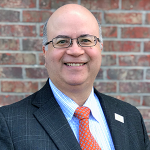
Octavio N Martinez, Jr, MD, MPH, MBA, FAPA

Drew Mills, MPH, CHES
This webinar will share insights from the American Heart Association’s new report, Driving Health Equity in the Workplace, which is the results of a collaboration with the AHA’s CEO Roundtable and includes guiding principles and actionable strategies that can help guide organizations wherever they are on their health equity journey.
Structural inequity, discrimination and bias have been shown to take a heavy toll on the health and well-being of employees, organizations and their communities. The American Heart Association’s CEO Roundtable, a leadership collaborative of nearly 50 CEOs, is dedicated to helping employers further understand, identify and eliminate workplace policies, practices and programs that lead to inequities. Evidence shows that promoting health equity can benefit employee health and productivity and reduce health care costs.
Octavio N Martinez, Jr, MD, MPH, MBA, FAPA, is Executive Director of the Hogg Foundation for Mental Health at The University of Texas at Austin. He also holds the appointments of Senior Associate Vice President within the Division of Diversity and Community Engagement where he heads up the Community Integrated Health Initiatives program, and the Associate Chair of Diversity, Equity and Inclusion for the Department of Psychiatry and Behavioral Sciences. He is a professor of psychiatry at the Dell Medical School, Clinical Professor at the Steve Hicks School of Social Work, Faculty Affiliate of the Rapoport Center for Human Rights and Justice in the School of Law, and Adjunct Professor of Psychiatry at the Long School of Medicine, UT Health San Antonio. Octavio currently serves on the Biden-Harris COVID-19 Health Equity Task Force, Advisory Committee to the Director of the Centers for Disease Control and Prevention, and National Academies of Sciences, Engineering, and Medicine’s Health and Medicine Division’s Roundtable on the Promotion of Health Equity.
Drew Mills, MPH, CHES, is a Health Programs Analyst in the office of the American Heart Association’s (AHA) Chief Medical Officer for Prevention where he provides scientific advisory and technical support to the organization, primarily in the areas of hypertension control, health equity, and workplace health and well-being. Drew also provides scientific support to the AHA’s CEO Roundtable. and served as project manager and coauthor of Driving Health Equity in the Workplace. He is based in Dallas, Texas and holds a master’s in public health from the UT Health Science Center at Houston School of Public Health.
This webinar is available to members only. Log in to view.
What Works Best in Promoting and Protecting Mental Health? Featuring a New Consensus Study
Original air date: January 20, 2022
Guest Panelists:

Dr. Antonis Kousoulis, Mental Health Foundation
Could it be that “fundamentals of life” are also fundamental to maintaining mental health? This webinar features findings from a Delphi research methodology that sought expert and public input into effective mental health messaging. In particular, study authors aimed to highlight those behaviors that were most actionable and highly likely to prevent mental illness. Published in September 2021 in the American Journal of Health Promotion, the study is already one of the most cited and downloaded studies of the year, and study findings been featured extensively in the popular press in America and abroad.
Our webinar guest, Dr. Antonis Kousoulis, is a Director at the Mental Health Foundation where he leads the public mental health research, programs, and policy functions in England and Wales. Dr. Kousoulis emphasizes that instead of buying into “miracle cures,” people should use “preventative self-management actions” such as improving sleep habits, helping others, and being open to new experiences to prevent poor mental health. In this webinar, we will discuss how the study’s findings can be used to encourage business and community leaders to “take action that empowers people to better look after their own mental health,” including making the means to practice these behaviors available to all.
Dr. Antonis Kousoulis is leading the research, policy, and programs functions of the Mental Health Foundation, a UK-wide public mental health charity of over 70 years. He is a doctor with an academic background in public health and executive experience in academia, third sector (non-profit), and the government. He is a leading thinker in public mental health and has been made Fellow of the Royal Society of the Arts for his commitment to improving mental health & fostering a new generation of public health leaders, both in the UK and internationally.
This webinar is available to members only. Log in to view.
How Health Program Planning Drives Behavioral, Environmental, and Policy Change
Original air date: December 9, 2021
Guest Panelists:

Andrea Gielen, ScD, ScM, Professor, Johns Hopkins Bloomberg School of Public Health

Mary Imboden, PhD, Director of Research, Health Enhancement Research Organization (HERO)
It did not come as a surprise when HERO research found strategic planning was associated with better health improvement outcomes. What does surprise us is that HERO studies continue to show that too few organizations have detailed written plans related to their employee health promotion initiatives. We will discuss community and workplace applications of the PRECEDE-PROCEED model, a planning framework that has been employed in over 1,000 health improvement studies and program implementations. This webinar coincides with the soon to be released new edition of one of the most seminal books in the health promotion profession: “Health Program Planning, Implementation, and Evaluation: Creating Behavioral, Environmental, and Policy Change.” In particular, this new edition recognizes fresh methods for reaching a greater diversity of communities and addresses the complex factors that influence population inequities, from biology to social and structural determinants.
We are proud to host Professor Andrea Gielen, a Senior Editor of this new edition. Dr. Gielen is an expert in injury research and policy at Johns Hopkins Bloomberg School of Public Health. Her current research focuses on using mobile apps to communicate effective injury prevention messages as part of a comprehensive program, identifying effective sexual assault prevention programming and informed decision making about opioid prescribing.
Dr. Gielen will be joined by Dr. Mary Imboden, HERO’s Director of Research, who will explain how the HERO Scorecard fits into a strategic planning framework. Dr. Paul Terry, HERO Senior Fellow, will host this webinar. Dr. Terry co-authored the chapter on “Applications in Occupational Settings” for this Health Program Planning book’s new edition.
Speakers:
Andrea Gielen, ScD, ScM, is a professor and expert in injury research and policy at Johns Hopkins Bloomberg School of Public Health. Her research has spanned from the development and evaluation of community and clinic-based health promotion programs for women and children to the application of behavioral sciences to preventing childhood injury and violence against women. Her current research focuses on using mobile apps to communicate effective injury prevention messages as part of a comprehensive program, identifying effective sexual assault prevention programming and informed decision making about opioid prescribing. Dr. Gielen has won numerous public health honors including the Elizabeth Fries Health Education Award, CDC Foundation Distinguished Career Award, the American Public Health Association Award for Excellence, and she was named one of the “20 for 20” Distinguished Leaders in Injury Prevention by the Centers for Disease Control and Prevention.
Mary Imboden, PhD, is the Director of Research for HERO where she oversees the execution of the HERO research agenda. This includes providing oversight of the HERO Research Committee and consultation to HERO study committees. She also oversees the ongoing development and research of the HERO Health and Well-Being Best Practices Scorecard in Collaboration with Mercer © (HERO Scorecard), along with growth and management of the HERO Preferred Provider Network.
This webinar is available to members only. Log in to view.
New & Emerging Practices in Workforce Health and Well-being Strategic Planning
Original air date: November 4, 2021
Guest Panelists:

Megan Flanagan, MPH
Workforce Health Consultant @Kaiser Permanente
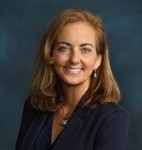
Dana Miller
Workforce Health Consultant @Kaiser Permanente

Mary Imboden, PhD
Director of Research @Health Enhancement Research Organization (HERO)
Health equity has been brought to the forefront recently, as more employers begin to address factors that affect our collective well-being. Version 5 of the HERO Scorecard contains recent updates including new and emerging practices related to mental and emotional well-being, social determinants of health, and diversity, equity, and inclusion. Learn more about the latest Scorecard updates from two Kaiser Permanente Workforce Health Consultants, including examples of how organizations are incorporating these practices into their health and well-being initiatives, along with actionable strategies one can incorporate into their well-being program.
Megan Flanagan is a Workforce Health Consultant at Kaiser Permanente based in Denver, Colorado. She is a Certified Health Education Specialist with her Masters of Public Health and has worked with various employers to implement workforce health strategies, including school districts, municipalities, and healthcare organizations. She has served on the Utah Worksite Wellness Council, Portland Wellbeing Think Tank, and has spoken at national conferences on social drivers of health, employee engagement, and best practices in worksite wellness with a passion for helping employers find innovative ways to engage employees in their well-being.
Dana Miller works as a Workforce Health Consultant at Kaiser Permanente in Oakland, CA. She consults with a variety of organizations to create and implement well-being strategies to elevate the employee experience and promote overall well-being. Prior to joining Kaiser in 2018, Dana enjoyed a long career with Aetna, most recently serving in the role of Director of Workplace Wellbeing for the West Region. Dana earned her BS in human development from Bowling Green State University. She is a Certified Wellness Practitioner and Wellness Program Manager from the National Wellness Institute as well as a Wellness Culture Coach from Human Resources Institute.
Dr. Mary Imboden is the Director of Research for HERO where she oversees the execution of the HERO research agenda. This includes providing oversight of the HERO Research Committee and consultation to HERO study committees. She also oversees the ongoing development and research of the HERO Health and Well-Being Best Practices Scorecard in Collaboration with Mercer © (HERO Scorecard), along with growth and management of the HERO Preferred Provider Network.
This webinar is available to members only. Log in to view.
The HERO Strategic Plan – a HERO Members-Only Webinar
Original air date: September 28, 2021
Guest Panelists:

Karen Moseley, HERO

Mary Imboden, PhD, HERO
This year, HERO celebrates 25 years of leadership for workplace health and well-being. That we have been able to sustain and evolve our mission is due to the strength of the HERO Board of Directors, the expertise and insights of our members, and the support of our research funders. In April, the HERO Board approved the new strategic plan for 2021-2026, and the HERO team has developed a first-year implementation plan. Please join us for this members-only webinar to hear firsthand how we plan to connect science and practice to demonstrate value of a health and well-being employer ecosystem.
Karen Moseley is President & CEO of the Health Enhancement Research Organization (HERO). In collaboration with HERO members, Karen and the HERO team provide leadership in research and education on issues such as the impact of wellness program best practices on health outcomes and the impact of healthy cultures on employee performance.
Prior to being appointed President & CEO of HERO, Karen served as the organization’s Vice President of Education and Director of Operations. In these positions, she was instrumental in growing HERO membership, increasing member engagement, and continuously improving educational programming and supporting HERO’s robust research agenda.
Karen received her Bachelor of Science in business administration from the University of North Carolina at Chapel Hill. To stay healthy, Karen enjoys yoga, testing new healthy recipes, and being in nature. Karen and her husband, T.J., reside in Wake Forest, NC, with their dog Jill.
Mary Imboden, PhD, is the director of research for HERO, where she oversees the execution of the HERO research agenda. This includes providing oversight of the HERO Research Committee and consultation to HERO study committees. She also oversees the ongoing development and research of the HERO Health and Well-Being Best Practices Scorecard in Collaboration with Mercer © (HERO Scorecard), along with growth and management of the HERO Preferred Provider Network.
Mary joined HERO in 2018 after receiving her PhD in human bioenergetics from Ball State University with a primary focus in clinical exercise physiology. She has been fortunate to author and co-author several peer-reviewed publications in this area, as well as present her research findings at the national level. She is an assistance professor of exercise science at George Fox University.
She is an advocate for exercise as medicine, and does trail running in Portland, Oregon.
This webinar is available to members only. Log in to view.
Fight Like a Nerdy Girl: Lessons Learned from the COVID Information Frontlines
Original air date: September 14, 2021
Guest Panelists:

Lindsey Leininger, PhD, Tuck School of Business, Dartmouth
The all-female team of “Nerdy Girl” scientists has steadfastly delivered trustworthy, timely, and evidence-based advice to social media audiences via the @DearPandemic platform since March 2020. 150k+ followers, one thousand Facebook posts, hundreds of media appearances, and dozens of invited lectures later, they’ve built their way towards a communication framework broadly applicable to a variety of health promotion initiatives. Their hope is that this framework and associated lessons learned can empower fellow health promotion professionals to steward efforts improving equitable access to credible, relatable health information in their specific settings.
Lindsey Leininger is a public health scientist who specializes in data-driven health policy. She is on faculty at the Tuck School of Business at Dartmouth College where she teaches current and future health care leaders how to make sense of medical data. As part of an all-female team of “Nerdy Girl” scientists, she runs the science communication campaign @Dear Pandemic on social media. Prior to joining Dartmouth, she spent a decade leading research and technical assistance projects for public health insurance programs, both in academic and think-tank settings. Lindsey earned her PhD in health policy from the University of Chicago’s Harris School of Public Policy.
This webinar is available to members only. Log in to view.
How It Started | How It’s Going: 4 Ways to Build Personal and Organizational Immunity
Original air date: September 9, 2021
Guest Panelists:

Erin Seaverson, MPH, WebMD Health Services

Molly Heisterkamp, CHES, Wisconsin Department of Employee Trust Funds
The State of Wisconsin Employee Trust Fund (ETF) has a geographically dispersed and diverse population of more than 165,000 individuals, including current and retired employees from the University of Wisconsin system, state agencies, and nearly 300 local government entities. Employees work in more than 400 locations throughout the state. Since 2017, ETF has focused on creating a positive well-being program experience to their constituents. During this presentation, learn how they’ve created an adaptive well-being strategy and Well Wisconsin Program to meet the broad needs of their population base. Speakers will also provide insights around their cohesive engagement and program management strategies that have helped double participation since the inception of the Well Wisconsin initiative.
After the webinar, attendees will be able to:
- Gain an understanding of how the State of Wisconsin ETF leveraged their Triple Aim (health, service/quality, cost) mission and a strong strategic partnership to create a balanced foundation for their well-being program.
- Identify outside-the-box ideas and initiatives (e.g., Well Wisconsin Radio podcasts) that are designed to meet participants on their terms and boost engagement year-over-year.
- Apply program adjustments and additions to better assist employees from program inception and during a pandemic.
Erin Seaverson, MPH, head of research at WebMD Health Services, steers our health and well-being research agenda. She serves as research consultant and principal investigator for numerous strategic initiatives, program evaluation, and outcomes studies. Erin’s work in research and reporting helps to define best practices for the industry.
Erin holds a Master of Public Health degree in epidemiology from the University of Massachusetts, a bachelor’s degree in exercise and health science from Alma College, and studied at the University of North London in London, England. Erin has published numerous peer-reviewed, scientific research studies benefiting the field of health management. She has a passion for endurance running and triathlons and believes in giving back to her community through volunteerism.
Molly Heisterkamp, CHES, is the wellness & disease management program manager for the Wisconsin Department of Employee Trust Funds. The program is available to more than 160,000 participants enrolled in the State of Wisconsin Group Health Insurance Program. A Certified Health Education Specialist, Molly has committed the past 10+ years to supporting employees from a variety of different industries in reaching their well-being goals.
Molly has driven the accomplishment of a Platinum Well Workplace Award through the Wellness Council of America for two of her previous employers and has presented various conference workshops hosted by the University of Wisconsin-Madison and the Wellness Council of Wisconsin.
*HERO is a designated provider of continuing education contact hours (CECH) in health education by the National Commission for Health Education Credentialing, Inc. This program is designated for Certified Health Education Specialists (CHES) and/or Master Certified Health Education Specialists (MCHES) to receive 1 education contact hour. Provider ID# 101039
This webinar is available to members only. Log in to view.
National Guidelines for Workplace Suicide Prevention
Original air date: August 4, 2021
Guest Panelists:

Jodi Jacobson Frey, PhD, LCSW-C, CEAP

Sally Spencer-Thomas, PhD

Maggie Mortali, MPH
September is suicide prevention month. In preparation, make suicide prevention a health and safety priority at work. The majority of adults who experience mental health problems, including suicide, are in the workforce (World Health Organization, 2006). However, the majority of workplaces are not prepared to help employees who might be struggling with suicidal thoughts or behaviors in an attempt to prevent suicide, nor are most prepared to cope with the aftermath of an employee suicide with appropriate and evidence-informed postvention practices. While many employers offer mental health, EAP, and wellness programs, these programs are greatly underutilized due to real and perceived barriers, especially stigma.
Since the launch of the National Guidelines for Workplace Suicide Prevention, over 650 workplaces and professional organizations have taken the pledge to make suicide prevention and health and safety a priority. The guidelines were developed by the speakers and additional American Association of Suicidology Workplace Committee and the predecessor group, National Action Alliance for Suicide Prevention, Workplace Taskforce members. We utilized a mixed methods research approach to collecting primary data from various stakeholders. We enrolled dozens of partners into the effort and, subsequently, forged a core partnership among American Association of Suicidology, United Suicide Survivors International, and the American Foundation for Suicide Prevention to complete the exploratory study that was used to design the guidelines that provide a roadmap for employers to achieve a “zero suicide mindset” and implement best practices to reduce suicide in the workplace.
This presentation will include an overview of the development of the guidelines and how they are being adopted in workplaces. The presenters will share research results and themes that were organized into guiding principles, motivations/barriers, integration recommendations, content areas, format/style suggestions, and marketing/distribution tactics. Finally, a summary of recommendations and proposed solutions will be discussed, in addition to suggestions for how session participants can take the guidelines home and integrate some of them into their work organizations.
Jodi Jacobson Frey, PhD, LCSW-C, CEAP, is a full professor at University of Maryland, School of Social Work. Jodi chairs the Social Work in the Workplace & Employee Assistance sub-specialization (formerly EAP sub-specialization) and the Financial Social Work Initiative. She is the founder and faculty executive director of the Behavioral Health and Well-Being Lab (BHWell Lab). Her MSW and PhD degrees were earned from the University of Maryland.
Jodi’s research focuses on workplace behavioral health, including the impact of employee mental health, substance use, and well-being on productivity and safety. She is the co-editor-in-chief for the Journal of Workplace Behavioral Health and also co-founded the International Employee Assistance Digital Archive, housed at the University of Maryland. She also co-chairs the Workplace Suicide Prevention and Postvention Committee of the American Association of Suicidology where she is contributing in the development and dissemination of the National Guidelines for Workplace Suicide Prevention.
Sally Spencer-Thomas, PhD, is a clinical psychologist, international keynote speaker, podcaster, and an impact entrepreneur. Sally was moved to work in suicide prevention after her younger brother, a Denver entrepreneur, died of suicide after a difficult battle with bipolar condition. Known nationally and internationally as an innovator in social change, Sally has helped start up multiple large-scale, gap filling efforts in mental health including the award-winning campaign Man Therapy and was the lead author on the National Guidelines for Workplace Suicide Prevention.
She has a doctorate in clinical psychology from the University of Denver, master’s in non-profit management from Regis University, a bachelor’s in psychology and studio art with a minor in economics from Bowdoin College. She has written four books on mental health and violence prevention and won multiple awards for her advocacy. She lives with her partner and three sons in Conifer, Colorado.
Maggie Mortali, MPH, is a senior program director and workplace mental health expert at the American Foundation for Suicide Prevention (AFSP). Since joining AFSP in 2011, Maggie established and leads a department dedicated to AFSP’s workplace initiatives, including the Interactive Screening Program (ISP), an online assessment tool that connects users to the appropriate mental health services. In this role, she has cultivated partnerships with large public and private sector employers, institutions of higher education, and law enforcement agencies to enhance their employee assistance programs (EAPs) and other mental health services.
With over a decade of experience in the suicide prevention field, Maggie has published articles, co-authored a chapter, and helped develop the National Guidelines for Workplace Suicide Prevention. She holds a master’s degree in public health in prevention science from Emory University Rollins School of Public Health and a bachelor’s degree in psychology from the University of North Carolina Wilmington.
This webinar is available to members only. Log in to view.
Strategic Health Program Planning in 2021: Tips on building successful, fluid, and flexible plans
Original air date: June 30, 2021
Guest Panelists:
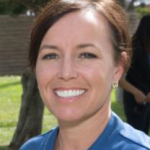
Callie Lovato, MA, MES
This session will help you identify wellness program goals and align them to your company’s 3- to 5-year plans, point out strategic collaborations to think about, and guide you in the planning & implementation it takes (even during uncertain times!) to succeed at delivering best in class health programs your employees want and need.
Callie Lovato, MA, MES, is the coordinator of Sandia Labs’ Preventive Health Program as well as the Sandia Employee Recreation Program. As a certified medical exercise specialist, she works with patients in Sandia Labs’ Health Management Clinic, Preventive Health, and Physical Therapy departments. She is experienced in special populations training and corrective muscle work. Callie has worked in the fitness industry since 1998, leaving New Mexico Sports & Wellness as a Master Trainer and Fitness Manager in 2002 to come to Sandia. Callie holds a master’s degree in health science from the University of Alabama.
This webinar is available to members only. Log in to view.
Workplace Solutions for Structural Racism and its Health Effects
Original air date: June 2, 2021
Guest Panelists:
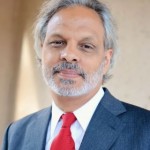
Eduardo Sanchez, MD, MPH

Tanya Odom, EdM
The webinar will provide an overview of the American Heart Association’s presidential advisory on Structural Racism as a driver of health disparities and will provide a discussion of workplace strategies and actions to address structural racism.
Dr. Eduardo Sanchez serves as Chief Medical Officer for Prevention for the American Heart Association (AHA). He is the Principal Investigator of the National Hypertension Control Initiative, a control cooperative agreement with the federal Office of Minority Health and the Health Resources and Services Administration. He is the AHA Clinical Lead on Target:BP (a joint blood pressure control initiative with the American Medical Association) and KnowDiabetesbyHeart™ (a joint cardiovascular risk factor control initiative with the American Diabetes Association). He is one of the authors of the AHA Presidential Advisory on Structural Racism and its health effects. Dr. Sanchez obtained his MD from the University of Texas (UT) Southwestern Medical School in Dallas, an MPH from the UT Health Science Center at Houston School of Public Health, and an MS in biomedical engineering from Duke University.
Tanya M Odom, EdM, is a global consultant, writer, coach, and diversity, equity, and inclusion and civil rights thought leader. For the last several years she has been working as a consulting and coaching partner with the United Nations as part of their gender parity by strategy. Tanya has worked with 15 UN entities in 9 different countries focusing on inclusive leadership, unconscious bias, and women in leadership. Over the last several months she has been working with several U.N. entities in their efforts to address racism and create anti-racist action plans and programs. Tanya is a board member of the Institute for Mindful Leadership and the National Society for High School Scholars Foundation. She is also a national volunteer with the American Heart Association. Tanya has a BA from Vassar College and Master’s degree from Harvard University.
This webinar is available to members only. Log in to view.
It’s Mental Health Month! Time for a Purpose-Driven Fresh Start?
Original air date: May 5, 2021
Guest Panelists:

Vic Strecher, PhD, MPH

Kate Sommerfeld, MPA
It’s May — Mental Health Month. Seems like we really need Mental Health Year! Let’s take a long view of mental health, not just treating those who are anxious and depressed (which has tripled in the past year), but also creating conditions for resilience and well-being. Dr. Strecher will present a model and supporting evidence for a purpose- and social determinants-driven approach to emotional self-regulation, resilience, and mental health. It’s time for a fresh start.
Vic will be joined by Kate Sommerfeld, President for Social Determinants of Health, from ProMedica, who will describe how their organization is supporting both their community and their employees in coping with the pandemic, and reflect on how purpose and social determinants are influencing their approach to employee experience, emotional well-being, and culture.
Vic Strecher, PhD, MPH, is a leader and visionary in the fields of purpose and well-being, creating new solutions that operate at the intersection of the science of behavior change and advanced technology. In 1998, Vic created Health Media pioneering Web-based “digital health coaching.” Since January 2014, Vic has given keynote presentations about the role of purpose in life, energy and willpower to over 1,500 organizations, providing him the opportunity to not only respond to the growing interests of the market, but to also continue to help shape it. In late 2015, Kumanu (formerly JOOL Health) was launched as a major paradigm shift in how individuals engage in the pursuit of purpose, meaning and well-being while offering organizations a more insightful means to support positive culture and behavior change.
Kate Sommerfeld, MPA, is the president of the Social Determinants of Health (SDOH) Institute for ProMedica, a mission-driven, not-for-profit, health care system based in Toledo, Ohio. She is responsible for shaping and leading ProMedica’s work in SDOH, including clinical integration, medical education and training and strategic community initiatives. Under Kate’s leadership, the work of the SDOH Institute has grown in ways that have impacted thousands of lives in ProMedica’s service area. In June 2020, it was announced that ProMedica was the recipient of the U.S. Housing and Urban Development (HUD) Secretary’s Opportunity & Empowerment Award. Prior to joining ProMedica, Kate worked for various community-based and nonprofit organizations including in the United Way system leading both rural and urban change. Kate has Bachelor of Arts degrees in political science and child psychology from Purdue University and a Master of Public Administration degree from Bowling Green State University.
This webinar is available to members only. Log in to view.
Turning Crisis into Opportunity: Seven Ways Businesses Can Align with Public Health for Bold Action and Innovation
Original air date: April 8, 2021
Guest Panelists:

Ron Goetzel, PhD

Emily Yu, MBA
The coronavirus outbreak (COVID-19) has revealed that, as a society, the U.S. is woefully unprepared to deal with a major public health emergency. This crisis has laid bare the weakness of our public health infrastructure with severe consequences to our economy and social fabric.
The Johns Hopkins Bloomberg School of Public Health, with support from the de Beaumont Foundation, brought together 40 business and public health leaders, including executives from Disney, USAA, IBM, Goodyear, and more for a series of focus group interviews to share how their businesses can effectively respond to COVID-19 and improve the health and well-being of workers and their communities over time.
The question we asked of these business and public health leaders was, “Tell us how you would best address the COVID-19 pandemic today, and also, how would you prepare us for future public health crises?”
At the core of the ideas offered was a fundamental appreciation of how the current crisis presents a unique opportunity to introduce innovative solutions that will positively impact the health and well-being of workers and the larger community. Based on the discussions, we assembled a series of “solutions” that businesses can adopt immediately, on their own, or as part of coalitions. We also offered some “big, hairy, audacious, goals” that require business leaders to step outside their comfort zones and advocate for broader societal initiatives aimed at re-building America’s crumbling public health infrastructure.
We were inspired by Rahm Emanuel’s often-repeated advice, “You never want a serious crisis to go to waste. …[It’s] an opportunity to do things that you thought you could not do before.”
Learning Objectives:
- Participants will describe how the COVID-19 pandemic has spotlighted an under resourced public health infrastructure that threatens the safety, security, and prosperity of Americans.
- Participants will describe ways in which organizations can adopt immediate steps to stem the rise of COVID-19 among their workers and communities.
- Participants will describe longer-term actions businesses can take to improve the health and well-being of their employees, communities, and rebuild a robust public health infrastructure.
*HERO is a designated provider of continuing education contact hours (CECH) in health education by the National Commission for Health Education Credentialing, Inc. This program is designated for Certified Health Education Specialists (CHES) and/or Master Certified Health Education Specialists (MCHES) to receive 1 education contact hour. Provider ID# 101039
Ron Goetzel, PhD, is senior scientist and director of the Institute for Health and Productivity Studies (IHPS) at the Johns Hopkins Bloomberg School of Public Health and vice president of Consulting and Applied Research for IBM Watson Health. The mission of the IHPS is to bridge the gap between academia, the business community, and the healthcare policy world. Ron is responsible for leading innovative projects for healthcare purchaser, managed care, government, and pharmaceutical clients interested in conducting cutting-edge research focused on the relationship between health and well-being, medical costs, and work-related productivity. Before moving to Johns Hopkins University, Ron was on the faculty at Emory and Cornell Universities. He is an internationally recognized and widely published expert in health and productivity management (HPM), return-on-investment (ROI), program evaluation, and outcomes research. He has published well over 200 peer-reviewed articles and book chapters and frequently presents at international business and scientific forums.
Emily Yu, MBA, serves as managing director, partnerships at de Beaumont Foundation where the team focuses on improving health at the community level by investing in tools, partnerships, policies and the public health workforce. In pursuit of this effort, Emily often brings together unlikely allies to help stakeholders achieve their shared goals of creating healthier communities. Emily is committed to driving sustainable improvements in health and is leading the charge to cultivate community collaborations that are working to give everyone a fair chance to be healthy. With two decades of experience in program development and strategy, for both the public and private sectors, Emily brings together a unique perspective that fuels her passion for proving sustainable models for social change. Emily earned her BS degree from Georgetown University and her MBA at New York University’s Stern School of Business.
This webinar is available to members only. Log in to view.
Scorecard Internacional: Saúde e bem-estar no trabalho: Use dados para tomar decisões fundamentadas
Original air date: March 30, 2021
Guest Panelists:

Arline Ferrão

Sílvia Agostinho Silva, PhD
09:00 da manhã Horário Central US / 15:00 Horário República Portuguesa (GMT +1, horário de verão) / 16:00 Horário Moçambique (GMT +2)
Saúde e bem-estar são essenciais para o sucesso sustentável de uma organização e a Pandemia tornou isso (mais) evidente. Por isso, encorajamo-lo a não ficar inerte. Contudo, não queremos apenas que aja, mas que o faça com base em evidências.
Faça parte desta iniciativa e aproveite esta oportunidade para compreender a relevância da saúde e bem-estar no contexto laboral, a razão pela qual são considerados um investimento (não um custo), como estes podem estar relacionados aos resultados da sua organização e o que pode fazer sobre isso.
Arline Ferrão é actualmente Estagiária Internacional de Pesquisa na HERO e estudante do Mestrado em Psicologia Social e das Organizações, no Iscte – Instituto Universitário de Lisboa (Portugal). Antes disso, Arline obteve a Licenciatura em Psicologia, na Universidade Eduardo Mondlane (Moçambique).
Cheia de sonhos e energia, Arline é uma jovem Moçambicana desejosa por instigar organizações a transformarem-se de modo a tornarem-se ambientes psicologicamente saudáveis e seguros, onde o bem-estar esteja enraizado.
Antes da HERO, Arline teve experiências profissionais nos recursos humanos e em projectos sociais e comunitários, que considera terem sido valiosas para a carreira que está a construir.
Através da Iniciativa “Saber para Melhor Agir”, que será lançada com o webinar, Arline espera aumentar a consciência sobre a importância da saúde e bem-estar no contexto laboral.
Sílvia Silva é Professora Associada do Departamento de Recursos Humanos e Comportamento Organizacional no Iscte – IUL. A sua pesquisa em Psicologia do Trabalho aplicada a segurança e saúde tem foco em comportamentos proactivos e de prevenção, aprendizagem decorrente de acidentes e incidentes, normas e clima de segurança e saúde e, comunicação e treino em segurança.
O seu trabalho foi publicado em vários livros e revistas internacionais, como o “Journal of Occupational Health Psychology”, Risk analysis”, “Safety Science”, “British Journal of Health Psychology” e “Accident analysis and Prevention”. Entre fevereiro de 2013 e janeiro de 2017 foi Directora da Unidade de Pesquisa Empresarial (BRU-IUL).
Prof. Silvia é Membro de várias associações científicas e redes internacionais. Entre Maio de 2011 e Maio de 2017 esteve na Comissão Executiva da European Association of Work and Organizational Psychology. Coordenou diversos projetos de pesquisa nacionais e internacionais e colaborou com diversas empresas, promoção de saúde e segurança no trabalho.
This webinar is available to members only. Log in to view.
What’s new in V5.0 of the HERO Health and Well-being Best Practices Scorecard in Collaboration with Mercer© (HERO Scorecard)!
Original air date: March 23, 2021
Guest Panelists:

Mary Imboden, PhD

Steven Noeldner, PhD
V5.0 incorporates new learnings from industry research, adding practices related to employer involvement in their communities; mental and emotional well-being; social determinants of health; integration with diversity, equity, and inclusion; and a broader value proposition for investment in employee health and well-being.
Join Steven Noeldner, Senior Consultant of Total Health Management at Mercer, and Mary Imboden, Director of Research at HERO, on March 23rd at 12 pm CT as they discuss what is new in version 5 of the HERO Health and Well-being Best Practices Scorecard in Collaboration with Mercer©.
Dr. Mary Imboden is the director of research for HERO, where she oversees the execution of the HERO research agenda. This includes providing oversight of the HERO Research Committee and consultation to HERO study committees. She also oversees the ongoing development and research of the HERO Health and Well-Being Best Practices Scorecard in Collaboration with Mercer © (HERO Scorecard), along with growth and management of the HERO Preferred Provider Network.
Mary joined HERO in 2018 after receiving her PhD in human bioenergetics from Ball State University with a primary focus in clinical exercise physiology. She has been fortunate to author and co-author several peer-reviewed publications in this area, as well as present her research findings at the national level including the AHA, ACSM, and AACVPR conferences. She is also an assistance professor of exercise science at George Fox University.
Steven Noeldner, PhD, is a senior consultant in the Total Health Management specialty practice of Mercer. Steven’s experience includes clinical practice in cardiac and pulmonary rehabilitation, hospital administration, university teaching, research, health and well-being management, corporate benefits and senior leadership (President and Chief Operating Officer). Steven’s education includes an MS in clinical exercise physiology and a PhD in exercise science with concentrations in sport psychology, cardiovascular physiology and biomechanics. He is certified by the American College of Sports Medicine as a Program Director, and serves as the Chair of the Research Committee for the Health Enhancement Research Organization (HERO). Steven has published research papers and book chapters on health and well-being, and is an accomplished speaker and presenter at national and international conferences.
This webinar is available to members only. Log in to view.
Tiny Habits for Resilience
Original air date: February 11, 2021
Guest Panelists:

Linda Fogg-Phillips, MS
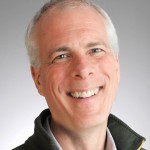
Tad Mitchell, MBA
Linda Fogg-Phillips, Director of Tiny Habits Academy, and Tad Mitchell, Founder and CEO of Wellright, explain practical strategies for building resilience within yourself and within your organization. The approach builds on BJ Fogg’s book Tiny Habits to help people build habits that increase resilience.
Linda Fogg-Phillips, MS, is the brawn behind the Tiny Habits programs. As a mother of 8 children, she knows how to design systems that work (and how to get her kids to do what they need to do – a real-life behavior change lab). As director of the Tiny Habits Academy, Linda’s expertise includes behavior change in the world of health and wellness. Her approach builds on BJ Fogg’s book Tiny Habits. Linda has been best friends with BJ for over 50 years, since BJ was born, (Linda is the older sibling even though BJ is the wiser one) and they have taught together since 2008. Linda has a master’s in health promotion and exercise physiology.
Tad Mitchell, MBA, is a thought leader in habit-based, holistic wellness. He is currently the president and CEO of WellRight, a provider of employee wellness solutions. Prior to joining WellRight, he was the president and CEO of Compliance11, a software company that was sold to Charles Schwab in 2011. Tad is the author of 21 Habits, 101 Challenges, 102 Challenges, 103 Challenges and 104 Challenges. He also authored the children’s book Where is the Sears Tower? Tad completed his BS in computer science and MBA at Brigham Young University. Tad is generally a quiet person, but if you want to get him talking, ask him about baking bread.
This webinar is available to members only. Log in to view.
New Insights on the Role of Incentives in Workplace Well-being
Original air date: December 9, 2020
Guest Panelists:

Jessica Grossmeier, PhD
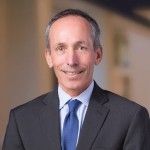
Seth Serxner, PhD, MPH
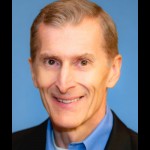
David Anderson, PhD
Financial incentives continue to be a core component of workplace well-being initiatives, with 78% of larger employers offering them in some form. While past research has shown that incentives are effective in driving participation in some components of wellness programming, a new HERO study assesses the impact of incentive design on both participation and workplace health outcomes at the organization-wide level.
This webinar will provide a brief overview of study findings, but our focus will be an interactive discussion among wellness industry experts about the implications of these findings. Save the date and join us in real time to contribute your thoughts and questions. Questions we anticipate addressing include:
- How do HERO study findings augment what we know from previous research on incentives?
- What are the practical applications and implications of this research?
- Are there other factors employers should consider outside of incentives to support population health improvement?
- What are the emerging trends in incentive design, and are there opportunities to move away from financial rewards?
PANELISTS:
Jessica Grossmeier, PhD
Jessica Grossmeier, PhD, is vice president of research at the Health Enhancement Research Organization (HERO) where she oversees the direction and execution of the HERO research agenda. This includes providing research expertise and consultation to HERO study committees, serving as HERO’s research liaison to external contractors and study collaborators and serving as principal investigator for HERO-sponsored research studies. As a workplace health promotion thought leader with 25 years of experience advancing individual and population health, she has contributed to more than 50 published papers and regularly presents at national industry conferences.
Seth Serxner, PhD, MPH
Seth Serxner, PhD, MPH, is chief health officer and senior vice president of population health for Optum. He has more than 25 years of experience in health and productivity management and has published more than 45 articles and chapters. He is on the Board of Directors of HERO as well as the lead for the organization’s research strategy. He is a board member of the Business Group on Health Institute of Innovation and Workforce Wellbeing, executive committee member and vice president of the C. Everett Koop Health Project and research committee member with Integrated Benefits Institute. He is a reviewer for academic journals such as the American Journal of Health Promotion, Journal of Occupational and Environmental Medicine and Health Affairs. Seth earned a Master of Public Health from the University of California, Los Angeles and a doctorate from the University of California, Irvine.
David Anderson, PhD
David Anderson, PhD, is president of VisioNEXT, LLC. He provides advisory and consulting services to assist clients in improving population well-being and organizational performance. His activities encompass organizational culture, workforce engagement and personal well-being. Previously, David co-founded StayWell in 1989 and served as its chief health officer through 2016, overseeing the design and validation of the company’s behavior change models and health and well-being product line. A founding member of the Health Enhancement Research Organization (HERO), David served on the HERO Board and chaired its Research Committee from HERO’s inception in 1996 through 2016. He also serves on the Board of The Health Project, which administers the C. Everett Koop National Health Awards. David has co-authored more than 30 peer-reviewed research articles, written scores of professional articles and book chapters and presented at over 100 national conferences on a wide range of health and well-being issues.
Moderator: Mary Imboden, PhD
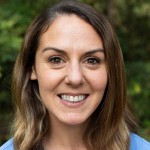 Mary is the membership manager and research associate for HERO. As the membership manager, she is the point of contact for all HERO members. Mary’s research associate role engages her in HERO research committees and HERO-sponsored research projects. Mary received her PhD in human bioenergetics from Ball State University with a primary focus in clinical exercise physiology. She has been fortunate to author and co-author several peer-reviewed publications in this area, as well as present her research findings at the national level including the AHA, ACSM and AACVPR conferences. She is an advocate for exercise as medicine, and to stay healthy and fit Mary runs and has most recently ventured into trail running since her move to Portland, Oregon.
Mary is the membership manager and research associate for HERO. As the membership manager, she is the point of contact for all HERO members. Mary’s research associate role engages her in HERO research committees and HERO-sponsored research projects. Mary received her PhD in human bioenergetics from Ball State University with a primary focus in clinical exercise physiology. She has been fortunate to author and co-author several peer-reviewed publications in this area, as well as present her research findings at the national level including the AHA, ACSM and AACVPR conferences. She is an advocate for exercise as medicine, and to stay healthy and fit Mary runs and has most recently ventured into trail running since her move to Portland, Oregon.
This webinar is available to members only. Log in to view.
THRiVE-ing Employees: Raising Awareness of Mental Health
Original air date: November 12, 2020
Guest Panelists:

Sandra Kuhn, MSW, LCSW

Sandi Stein
In today’s increasingly challenging world, Brown Brothers Harriman (BBH) has supported total employee well-being by ensuring a culture of health. Even before the pandemic made its appearance, expanding the culture of health to a culture of caring was part of our future state. Through a combination of factors including our executive and local mental health champions, our focus on behavioral health and inclusivity, partnering with key strategic vendors, focusing on program integration and alignment, offering manager trainings and our employee feedback loop, we have been able to build a strong culture that is helping us bring the topic of mental health into the conversation and provide supports that resonate with our employees.
In order to accomplish these goals, we have focused on four key pillars: prevention and early intervention, access to care, quality of care and integration. Please join us for coffee chat as we discuss our journey to build our THRIVE-ing culture.
Sandra Kuhn, MSW, LCSW
Sandra Kuhn is a senior Total Health Management consultant at Mercer. She brings a long history of specialty consulting in the field of behavioral health, and assists many employers by leveraging both clinical and theoretical expertise as a licensed clinical social worker (LCSW). Throughout her career in the consulting field, Sandra has provided clients with expertise on behavioral health programs, pharmacy benefit management, plan audit and clinical assessments. Sandra graduated from New York University with a Bachelor of Arts degree in math and economics. She has a Master of Social Work degree from Grand Valley State University and also earned a certificate of Applied Project Management from Villanova University. She is certified to deliver training on the adult curriculum for Mental Health First Aid (National Council for Behavioral Health) and leads efforts to deliver Mercer’s curriculum for Manager Mental Health Training.
Sandi Stein
Sandi Stein is the global head of benefits at Brown Brothers Harriman & Co (BBH). She is responsible for furthering the global benefits agenda at BBH which includes the global benefits platform as well as the Firm’s global mobility program with a commitment to delivering programs that are market competitive, cost-effective, business aligned and employee relevant. She leads an award-winning well-being program and is the global chair of BBH’s Pride Network. Sandi earned a BA in psychology from SUNY Albany and completed coursework as a Certified Financial Planner from New York University. She is Vice Chair of the Northeast Business Group on Health. Sandi served as a member of “Executives on Campus”, a mentoring program at Baruch College. She is also past Treasurer for the Boys Towns of Italy, a non-profit organization providing opportunities for migrant boys from war torn countries. Sandi is married and lives in New York City.
This webinar is available to members only. Log in to view.
The Surprising Impact of Vaping in the Workplace: Treatment and Policy Implications
Original air date: August 13, 2020
Guest Panelists:

Amanda Graham, PhD, Chief of Innovations, Truth Initiative

Megan Hammes, MS, Director of Wellness, University of Iowa

Vickie Miene, MS, MA, LMHC, Interim Director, Iowa Institute of Public Health Research and Policy; Director, Iowa Healthy LifeStars, University of Iowa College of Public Health
As the nation navigates the COVID-19 pandemic, protecting employee health is a top concern. However, one factor may not be on the radar for many organizations yet, though it should be: vaping in the workplace. Vaping isn’t harmless, either for e-cigarette users or for those exposed to secondhand aerosol (i.e., vapor). New Truth Initiative research shows that vaping in the workplace is a bigger issue than many think, with 63% of employees saying that vaping at work bothers them.
Join this webinar to hear findings from the research about how workplace vaping affects productivity, even when just a few employees vape; the impact of workplace vaping on different industries; gaps in employer policies for vape- and smoke-free workplaces; and the impact on working parents when their child vapes.
Plus, to react to the growing body of evidence that vaping is harmful to self and others, the University of Iowa will share how their own data from students, faculty and staff sparked a full academic year of focus on the topic. “Vaping: The New Look of Nicotine Addiction” provided campus and community the opportunity to learn from public health and policy experts as well as the researcher and student experience on campus.
Speakers
Amanda Graham, PhD, Chief of Innovations, Truth Initiative
Amanda leads the Innovations Center within Truth Initiative, a national public health organization that is inspiring tobacco-free lives. She is internationally recognized as a thought leader in web and mobile quit-smoking interventions and online social networks and has been awarded over $15 million in NIH research funding. She has published over 90 peer-reviewed manuscripts and serves on National Institutes of Health study sections and numerous journal editorial boards. Amanda is also professor of medicine (adjunct) at Mayo Clinic College of Medicine and Science.
Megan Hammes, MS, Director of Wellness, University of Iowa
Megan provides leadership for work-life and well-being initiatives for approximately 20,000 employees. Highlights from Megan’s 15-year career at UI include co-developing an academic course on health coaching; opening an integrated wellness space for faculty, staff and students; and launching a Tobacco-Free Campus Policy. Megan has a background in athletic training with an undergraduate degree from the University of Iowa, and her master’s degree is in health promotion management from American University. She is certified through Wellcoaches(R) and is a Master Certified Health Education Specialist (MCHES).
Vickie Miene, MS, MA, LMHC, Interim Director, Iowa Institute of Public Health Research and Policy; Director, Iowa Healthy LifeStars, University of Iowa College of Public Health.
Vickie has over 25 years of experience building, implementing and evaluating effective community-based population health models. She has led numerous statewide training and technical-assistance initiatives focused on emerging topics, integrated health, understanding public health data and national child health and quality improvement initiatives.
Moderator
Sara Johnson, PhD, Co-president & CEO of Pro-Change Behavior Systems, Inc.

Sara Johnson, PhD, received HERO’s Mark Dundon Research Award and was named the Health Care Services Woman to Watch by Providence Business News in 2018. In 2015, she was selected as a Top 10 Health Promotion Professional by WELCOA. Most recently, she was named one of the 2019 50 on Fire by Rhode Island Inno. She has been the principal investigator on over $6 million in NIH grants to examine the effectiveness of evidence-based health and well-being interventions and has more than 40 publications. Sara received her PhD in clinical psychology from the University of Rhode Island and is currently an adjunct faculty member to the Psychology Department. She is also the co-editor of The Art of Health Promotion.
This webinar is available to members only. Log in to view.
Measuring participation in worksite health promotion programs
Original air date: July 30, 2020
Guest Panelists:

Erin Seaverson, MPH, Senior Director of Research and Evaluation, WebMD Health Services
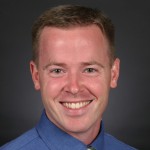
Stefan Gingerich, Senior Research Analyst, WebMD Health Services
Five years ago, HERO and the Population Health Alliance (PHA) published a comprehensive set of standards to guide the measurement and evaluation of employer-based well-being initiatives. The standards for participation measurement included a recommendation for more research on “the amount of intervention necessary to produce a positive health outcome” and studying participation “across channels/modalities” of programs. Perhaps intentionally, there was no mention of “engagement” despite the understanding that “participation” is often used synonymously with “engagement.” In this webinar, researchers will discuss results of a study that sought to fill a gap identified by the HERO/PHA standards and bridge the divide between “participation” and “engagement.” In this study, data from 95,000 individuals across 6 employers were analyzed to develop a participation index based on 9 separate well-being program components. Scores from this index were then analyzed to reveal that higher doses of well-being programming led to more health risk improvement.
Erin Seaverson, MPH, Senior Director of Research and Evaluation, WebMD Health Services
As senior director of research and evaluation at StayWell, now WebMD Health Services, Erin spearheads the health and well-being research agenda. She serves as research consultant and principal investigator for several strategic initiatives, program evaluation and outcomes studies. Erin has published numerous peer-reviewed, scientific research studies benefiting the field of health management and her work in research and reporting helps to define best practices for the industry.
Erin has over 19 years of public and population health experience. Erin is actively involved in several industry research workgroups and committees of the Health Enhancement Research Organization. She holds a Master of Public Health degree in epidemiology from the University of Massachusetts and a bachelor’s degree in exercise and health science from Alma College. Erin believes strongly in “walking the talk” – she has a passion for family dance parties, endurance running and strength training and believes in giving back to her community through volunteerism.
Stefan Gingerich, Senior Research Analyst, WebMD Health Services
As senior research analyst for StayWell, now WebMD Health Services, Stefan is responsible for researching program effectiveness and consulting on program development, designing surveys and normative statistics, and applying scientific research to benefit clients and the worksite well-being industry. Prior to StayWell, Stefan worked as a public health microbiologist for the state of Iowa at the University Hygienic Laboratory, testing specimens for infections of public health importance, investigating disease outbreaks and teaching remote learning classes.
Stefan earned a Master of Science degree in epidemiology from the University of Iowa, College of Public Health and a Bachelor of Music Education degree from the University of Evansville. He is a member of the Heath Enhancement Research Organization’s Research Studies Subcommittee. In his free time, he enjoys singing and dancing with his kids, playing baseball and reading anything he can get his hands on.
Reactor Panelist: Megan Hammes, MS
 Megan Hammes is the director of wellness at the University of Iowa where she provides leadership for work-life and well-being initiatives through for approximately 20,000 employees. Highlights from Megan’s 15-year career at UI include co-developing an academic course on health coaching; opening an integrated wellness space for faculty, staff and students; and launching a Tobacco-Free Campus Policy. Megan has a background in athletic training with an undergraduate degree from the University of Iowa, and her master’s degree is in health promotion management from American University. She is certified through Wellcoaches(R) and is a Master Certified Health Education Specialist (MCHES).
Megan Hammes is the director of wellness at the University of Iowa where she provides leadership for work-life and well-being initiatives through for approximately 20,000 employees. Highlights from Megan’s 15-year career at UI include co-developing an academic course on health coaching; opening an integrated wellness space for faculty, staff and students; and launching a Tobacco-Free Campus Policy. Megan has a background in athletic training with an undergraduate degree from the University of Iowa, and her master’s degree is in health promotion management from American University. She is certified through Wellcoaches(R) and is a Master Certified Health Education Specialist (MCHES).
Reactor Panelist: Ryan Sledge, MPH, MBA,
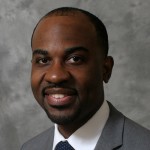 Ryan Sledge is director of worksite operations and product development for OhioHealth. A proven health care leader, he has a strong track record of transforming culture, forming strategic partnerships, and building effective teams. Ryan influences strategy for breakthrough health improvement initiatives for OhioHealth’s 30,000 associates and the 5,000 employers we serve. He leads both clinical and non-clinical teams improving access to care and reimagining care delivery models. His academic background includes a Bachelor of Science degree in exercise science, a Master of Public Health degree from Michigan State University, and a Master of Business Administration degree from University of Michigan.
Ryan Sledge is director of worksite operations and product development for OhioHealth. A proven health care leader, he has a strong track record of transforming culture, forming strategic partnerships, and building effective teams. Ryan influences strategy for breakthrough health improvement initiatives for OhioHealth’s 30,000 associates and the 5,000 employers we serve. He leads both clinical and non-clinical teams improving access to care and reimagining care delivery models. His academic background includes a Bachelor of Science degree in exercise science, a Master of Public Health degree from Michigan State University, and a Master of Business Administration degree from University of Michigan.
This webinar is available to members only. Log in to view.
Hypertension management in the workplace: Evidence from a RCT clinical trial in China (JAMA, March 2020)
Original air date: June 30, 2020
Guest Panelists:

Zengwu Wang, MD, PhD

Chun Chang, PhD

Zugui Zhang, PhD, FAHA
For a long time, few clinical trials were completed addressing the effects of workplace-based wellness intervention programs on the management of high blood pressure (BP). From January 2013 to December 2014, a cluster randomized clinical trial of a hypertension management program was conducted in 60 workplaces across 20 urban regions with 4166 participants in China. The workplace wellness interventional program triumphed for hypertension management with two-thirds of participants meeting blood pressure target after two years. This trial found that a workplace-based, multicomponent intervention appeared to be more effective than the usual care, leading to measurable benefits such as lower blood pressure, improved hypertension control, and adoption of healthy lifestyle habits, including greater reductions in alcohol consumption, perceived stress, and excessive salt intake. The intervention can therefore be considered for large-scale use or inclusion in hypertension control programs in workplaces in China, USA, and other countries. In the webinar, we will discuss how to improve hypertension management in the workplace on the basis of the evidence from China.
Zengwu Wang, MD, PhD, is the division chief of prevention and community health and a professor of cardiology and epidemiology at the National Center for Cardiovascular Disease, Fuwai Hospital, Peking Union Medical College & Chinese Academy of Medical Sciences. His research interests include cardiovascular disease (CVD) epidemiology, CVD prevention and intervention, clinical trial, and health education. He is one of the lead investigators of Hypertension Control in Community in China, a program designed to improve the treatment and control of hypertension in China. He also takes part in several other projects, including the national 9th–11th Five-Year project and the national 973 project. He is currently the president of Beijing Hypertension Association and director of Chinese Hypertension League. He is also a member of the Chinese Medical Association, the Chinese Medical Doctor Association, the China Health Care Association, and the American Association of Cardiovascular and Pulmonary Rehabilitation. Dr. Wang has over 200 peer-reviewed publications.
Chun Chang, PhD, is a professor of health education and promotion, and the vice director of the Department of Social Medicine. She is a member of the Healthy China Initiative Promotion expert advisory committee, and a member of the National Health Commission’s expert steering committee on health promotion and education. She is also the standing director of the China Association of Health Education and Promotion. Dr. Chang’s research field is behavioral science and health education. Research topics involve lifestyle and medicine adherence intervention among patients with non-communicable diseases, tobacco control, health service utilization, health literacy, workplace-based health promotion and so on. She has published more than 200 original research articles in English and Chinese academic journals.
Zugui Zhang, PhD, FAHA, is the director of biostatistics at the Christiana Care Health System, Delaware, research professor of medicine at Thomas Jefferson University, and affiliated professor in the Center of Bioinformatics and Biological Computation and College of Engineering at the University of Delaware. He has a broad background in health outcomes research, health economics, public health, epidemiology, and biostatistics. He has worked extensively on several large, international, multi-center, randomized clinical trials and observational studies, including COURAGE (the Clinical Outcomes Utilizing Revascularization and Aggressive Drug Evaluation), EXTRACT (the Enoxaparin and Thrombolysis Reperfusion for Acute Myocardial Infarction Treatment), ASCERT (American College of Cardiology Foundation-The Society of Thoracic Surgeons Collaboration on the Comparative Effectiveness of Revascularization Strategies), and SPRINT(Systolic Blood Pressure Intervention Trial). He has published articles in New England Journal of Medicine, Journal of the American College of Cardiology, Circulation, Radiology, Pediatrics, Journal of Clinical Hypertension, and The Canadian Journal of Cardiology, among others.
 Ron Goetzel, PhD, is senior scientist and director of the Institute for Health and Productivity Studies (IHPS) at the Johns Hopkins Bloomberg School of Public Health and vice president of Consulting and Applied Research for IBM Watson Health. The mission of the IHPS is to bridge the gap between academia, the business community, and the healthcare policy world. Ron is responsible for leading innovative projects for healthcare purchaser, managed care, government, and pharmaceutical clients interested in conducting cutting-edge research focused on the relationship between health and well-being, medical costs, and work-related productivity. Before moving to Johns Hopkins University, Ron was on the faculty at Emory and Cornell Universities. He is an internationally recognized and widely published expert in health and productivity management (HPM), return-on-investment (ROI), program evaluation, and outcomes research. He has published well over 200 peer-reviewed articles and book chapters and frequently presents at international business and scientific forums.
Ron Goetzel, PhD, is senior scientist and director of the Institute for Health and Productivity Studies (IHPS) at the Johns Hopkins Bloomberg School of Public Health and vice president of Consulting and Applied Research for IBM Watson Health. The mission of the IHPS is to bridge the gap between academia, the business community, and the healthcare policy world. Ron is responsible for leading innovative projects for healthcare purchaser, managed care, government, and pharmaceutical clients interested in conducting cutting-edge research focused on the relationship between health and well-being, medical costs, and work-related productivity. Before moving to Johns Hopkins University, Ron was on the faculty at Emory and Cornell Universities. He is an internationally recognized and widely published expert in health and productivity management (HPM), return-on-investment (ROI), program evaluation, and outcomes research. He has published well over 200 peer-reviewed articles and book chapters and frequently presents at international business and scientific forums.
This webinar is available to members only. Log in to view.
Shared Value in Community Partnerships: Measures that matter to results-oriented stakeholders
Original air date: May 14, 2020
Guest Panelists:

Somava Saha, MD, Director, Executive Lead, Well-being and Equity (WE) in the World and Well Being In the Nation (WIN) Network
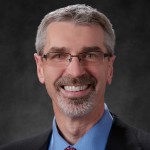
Nico Pronk, PhD, President, HealthPartners Institute
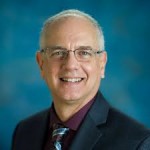
William Kassler, MD, Deputy Chief Health Officer, IBM Watson Health
Somava Saha, MD, Director, Executive Lead, Well-being and Equity (WE) in the World and Well Being In the Nation (WIN) Network
Somava Saha, MD, serves as founder and executive lead of Well-being and Equity in the World (WE in the World), as well as executive lead of the Well Being In the Nation (WIN) Network, which work together to advance inter-generational well-being and equity. She serves as faculty at Harvard Medical School, the Institute for Healthcare Improvement, and the Governance Institute. Over the last five years, as vice president at the Institute for Healthcare Improvement, Dr. Saha founded and led the 100 Million Healthier Lives (100MLives) initiative, which brought together 1850+ partners in 30+ countries reaching more than 500 million people to improve health, well-being and equity. In 2016 she was elected as a Leading Causes of Life Global Fellow.
Nico Pronk, PhD, President, HealthPartners Institute
Nico Pronk, PhD, is president of the HealthPartners Institute, chief science officer at HealthPartners, Inc. and holds a faculty appointment as adjunct professor of social and behavioral sciences at the Harvard T.H. Chan School of Public Health. Dr. Pronk was confirmed by the White House to serve as co-chair of the U.S. Secretary of Health and Human Services’ Advisory Committee on National Health Promotion and Disease Prevention Objectives for the year 2030 (aka “Healthy People 2030”). He is a current member of the Food and Nutrition Board at the National Academies of Sciences, Engineering and Medicine and is the founding and past president of the International Association for Worksite Health Promotion.
William Kassler, MD, Deputy Chief Health Officer, IBM Watson Health
William Kassler, MD is chief medical officer for the Government Health & Human Services business unit and deputy chief health officer at IBM Watson Health. Prior to joining Watson Health, he served as CMO for the New England Region of the Centers for Medicare and Medicaid Services (CMS), and was a founding member in the CMS Innovation Center’s Population Health Models Group. Before that, he served as the State Health Director for New Hampshire Department of Health and Human Services. Dr. Kassler started his career at the Centers for Disease Control and Prevention (CDC). He is recipient of the Surgeon General’s Meritorious Service Award, the NH March of Dimes Physician Leadership Award, and the Bi-State Primary Care Association President’s Award.
This webinar is available to members only. Log in to view.
The Employer’s Role in Community Health: What’s working and not working in public-private partnerships
Original air date: April 23, 2020
Guest Panelists:

Marna Canterbury, Director, Community Health, HealthPartners

Cindy Winters, Advisor, Heart of New Ulm Project, Minneapolis Heart Institute

Audra Shaneman, President and CEO, New Ulm Chamber of Commerce, City of New Ulm
Marna Canterbury, Director, Community Health, HealthPartners
Marna has been a leader in community health improvement for more than 25 years for health plans, clinics, nonprofits and schools. As Director of Community Health for HealthPartners, Marna provides leadership in convening of community in the development, implementation and evaluation of community needs assessments and key community health initiatives and partnerships. She serves as a nonprofit board member and community volunteer including the Center for Community Health and ICSI Expert Panel on Social Determinants of Health. Marna’s other experience includes leadership and development of health improvement efforts for health plans, clinics, nonprofits, schools, and hunger relief organizations.
Cindy Winters, Advisor, Heart of New Ulm Project, Minneapolis Heart Institute
Cindy Winters is a member of the population health team at the Minneapolis Heart Institute Foundation (MHIF) since 2012 and is the Project Advisor to the Heart of New Ulm Project. The project was a 10-year research demonstration study (2009 – 2018) to eliminate heart attacks. It continues today as a community owned and driven health improvement initiative. She worked closely with the team at MHIF, community partners and residents to shift from a program heavy strategy to one that focuses on policy, system and environmental changes (PSE) while overlaying programs that complement the PSE strategies.
Audra Shaneman, President and CEO, New Ulm Chamber of Commerce, City of New Ulm
Audra Shaneman is an experienced executive leader with a demonstrated history of working in the communications, membership and marketing areas. Her skills are in nonprofit management and operations, team building, public speaking, marketing and “surprise and delight” planning. After eight years of success in promoting the New Ulm Area Chamber of Commerce and its members in the role of president, she is now the assistant city manager and economic development director for the City of New Ulm serving businesses and residents.
This webinar is available to members only. Log in to view.
The COVID-19 Teachable Moment for Public-Private Partnerships
Original air date: April 16, 2020
Guest Panelists:
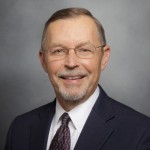
Matt Stiefel, Senior Director, Kaiser Permanente
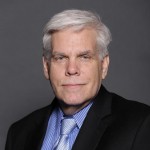
Al Pheley, PhD, Consultus Health Research Group
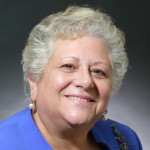
Marcella Wilson, Founder and CEO, Transition to Success
Matt Stiefel, Senior Director, Kaiser Permanente
Matt directs the Center for Population Health in Kaiser Permanente’s Care Management Institute (CMI). He is a fellow and faculty member with the Institute for Healthcare Improvement, currently leading measurement for 100 Million Healthier Lives. Prior to KP, he served on the Carter Administration Domestic Policy Staff and DHEW.
Al Pheley, PhD, Consultus Health Research Group
During the 1990s, Al directed the Clinical Epidemiology Program at the Hennepin County Medical Center & Minneapolis Medical Research Foundation. He later established Ohio University’s Center for Appalachian & Rural Health Research. During this time, Al also served on the Sixth District Federal Healthcare Advisory Committee. More recently, Al directed the Gerald R. Ford Institute for Public Policy and Service and the Institute for Health Professions.
Marcella Wilson, Founder and CEO, Transition to Success
Marcella has over 30 years of extensive experience in healthcare administration, not-for-profit management, behavioral health, criminal justice and public sector programming. In her role as president and founder of Transition to Success™, she is leading a national social change movement with a standard of care to treat poverty as an environmentally based medical condition and not a character flaw.
This webinar is available to members only. Log in to view.
READY TO WIN? Applying for the C. Everett Koop National Health Award
Original air date: March 18, 2020
Guest Panelists:

Ron Goetzel, PhD

Tre McCalister, EdD, MA

Sheri Snow, MA, RDN, CDE
The Health Project recognizes exemplary programs shown to improve employee health and well-being (HWB) while achieving positive health and business outcomes. Organizations are invited to apply for the C. Everett Koop National Health Award. In this session, you will learn valuable tips on the application process, evaluation criteria and what is required to demonstrate the impact of your HWB initiative. Webinar co-panelists include Dr. Ron Goetzel, Chair of The Health Project; Dr. Tre McCalister, current Koop Award judge who prior to that role led development of Dell Inc’s 2013 award-winning application; and Sheri Snow, MA, RDN, CDE, who led development of AMERICAN’s 2014 Koop Award application. The session will be moderated by Dr. Jessica Grossmeier, HERO’s vice president of research who is also a Koop Award judge.
Ron Goetzel, PhD, is senior scientist and director of the Institute for Health and Productivity Studies (IHPS) at the Johns Hopkins Bloomberg School of Public Health and vice president of Consulting and Applied Research for IBM Watson Health. The mission of the IHPS is to bridge the gap between academia, the business community, and the healthcare policy world. Ron is responsible for leading innovative projects for healthcare purchaser, managed care, government, and pharmaceutical clients interested in conducting cutting-edge research focused on the relationship between health and well-being, medical costs, and work-related productivity. Before moving to Johns Hopkins University, Ron was on the faculty at Emory and Cornell Universities. He is an internationally recognized and widely published expert in health and productivity management (HPM), return-on-investment (ROI), program evaluation, and outcomes research. He has published well over 200 peer-reviewed articles and book chapters and frequently presents at international business and scientific forums.
Tre’ McCalister, EdD, MA, is a senior consultant, and strategic thought leader with more than 25 years of experience in the health, well-being and healthcare industry. She developed and managed industry leading, health and well-being initiatives for two large, global technology companies, including Applied Materials and Dell Technologies. Tre’ joined Mercer’s health and benefits consulting practice, where she led the Total Health Management specialty practice for the Central US. She left Mercer in 2019 to establish McCalister and Associates, LLC where she currently provides consulting support for business leaders, HR, benefits professionals, nonprofits and vendor partners on US health and care, global health management and wellbeing initiatives. Tre’ has a doctorate in health education with concentration in business administration from the University of Texas at Austin, and she completed her post-doctoral work with the Health Management Research Center at the University of Michigan, specializing in corporate employee health program evaluation.
As AMERICAN Cast Iron Pipe Company’s Wellness Manager, Sheri Snow, MA, RDN, CDE, does more than talk about food and physical activity. With more than 20 years of experience, she is passionate about innovating new ways to infuse health and wellness strategies into every layer of corporate operations. Her intentional collaboration with both internal and external partners has generated programs and solutions that lead to measurable impact. She believes that positive health and financial outcomes for her company comes down to sustaining a creative and energized culture where employees engage in their individual health journeys. Sheri is a registered dietitian and certified diabetes educator. She completed her undergraduate degree in the “loveliest village on the plains,” Auburn University, and a master’s in health promotion and health education from the University of Alabama at Birmingham.
Jessica Grossmeier PhD, MPH, currently serves as vice president, research at the Health Enhancement Research Organization, is on the Board of Directors of The Health Project and is co-editor of The Art of Health Promotion section of the American Journal of Health Promotion. Jessica is a worksite wellness thought leader with more than 25 years of experience advancing individual and population health. Serving the past 18 years as an outcomes researcher, She has executed research studies demonstrating health and financial outcomes for wellness programs sponsored by numerous large, national employers. More recently, her research has focused on identifying best practice approaches to workplace wellness initiatives that are associated with superior health and business outcomes. Jessica has published more than 60 articles in peer-reviewed and industry professional journals and presented at more than 75 industry events and webinars.
Genetic Testing and Employee Health and Wellness Programs: Opportunities and Challenges
Original air date: February 19, 2020
Guest Panelists:

Patricia Deverka, MD, Chief Science Officer, Innovation and Value Initiative
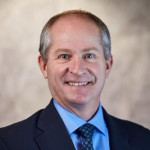
Robb Rowley, MD, Program Director, National Human Genome Research Institute
Huge investments in mapping the human genome are reshaping our understanding of how to use genetics to improve both individual and population health. Approximately 10 new genetic tests enter the market every day, translating to observable increases in both genetic test utilization and spending. Simultaneously, there are a growing number of companies offering genetic screening as part of employee health and wellness programs. For employers, there is an opportunity to assess benefits, risks and costs of population genetic testing. Where is there the strongest evidence that genetic test results are medically actionable? How can genetic testing play a role in population health management? What are the key considerations when deciding whether to cover genetic testing as part of employee health and wellness programs? Join an expert-led conversation to discuss the science behind genetic testing and how these tests could play a role in managing population health.
Patricia A. Deverka, MD, MS, MBE, is currently the Chief Science Officer at the Innovation Value Initiative, a non-profit organization focused on advancing the science and improving the practice of value assessment in healthcare. Previously, she was the director of value evidence and outcomes at Geisinger National Precision Health, where she was responsible for assessment of the clinical and economic impact of population exome sequencing for health systems and self-insured employers. Prior to joining Geisinger, Patricia worked closely with clients to develop evidence of the value of healthcare interventions to inform payer, clinician, patient and health system decision-making. She has a medical degree from the University of Pittsburgh and is board certified in General Preventive Medicine and Public Health. She also has a master’s degree in bioethics from the University of Pennsylvania and completed a policy fellowship at Duke University’s Institute for Genome Sciences and Policy.
Robb Rowley, MD, is an Internal Medicine Physician and the Program Director for the National Human Genome Research Institute (NHGRI) Electronic Medical Records and Genomics (eMERGE) Network. The national Network combines DNA biorepositories with electronic medical record (EMR) systems for large scale, high-throughput genetic research in support of implementing genomic medicine. Prior to starting at NHGRI, Robb spent thirteen years in private practice and hospital management where he provided clinical assessments and medical care for adult diseases influenced by genetically influenced conditions to improve patient risk stratification and individualize treatments. Robb previously served in the United States Air Force Surgeon General’s Office in Washington DC as the Chief of Medical Bioinformatics and Genomics. Robb has also been instrumental in establishing national and international plans and policies for incorporating genomics into biosurveillance systems and biotechnology for the DoD and NATO.
Sorry, this webinar video is not available.
What are the “best” best practices? New HERO Study Suggests Organizational and Leadership Support Drives Outcomes
Original air date: February 5, 2020
Guest Panelists:

Sara Johnson, PhD

Steven Noeldner, PhD

Kristi Rahrig Jenkins, PhD, MPH
Many organizations are interested in fostering an organizational culture that supports workforce health and well-being, but there is little research on the specific practices associated with outcomes and insufficient guidance on how to implement the practices effectively. This session highlights findings from a recently completed study leveraging data from 845 organizations completing the HERO Health and Well-being Best Practices Scorecard in Collaboration with Mercer©. The study identified a core set of practices related to organizational and leadership support that predicted higher levels of program participation, health impact, medical cost impact, and employee perceptions of organizational support. A high-level presentation of findings will be followed by an interactive panel discussion about the challenges associated with implementing the identified practices and what employers can do to implement more successful health and well-being initiatives.
Jessica Grossmeier, PhD, MPH, is Vice President of Research at HERO, where she oversees the direction and execution of the HERO research agenda. This includes providing research expertise and consultation to HERO study committees, serving as HERO’s research liaison to external contractors and study collaborators, and serving as Principal Investigator for HERO-sponsored research studies. Prior to joining HERO, Jessica served a variety of research roles which included oversight of research on best practices and outcomes associated with workplace health and well-being programs. She also has served in academic research and teaching roles at the University of Minnesota and the University of Phoenix. Jessica has contributed to more than 50 published papers and is Co-Editor of The Art of Health Promotion and the practitioner section of the American Journal of Health Promotion.
Mary Imboden, PhD, Mary is the membership manager and research associate for HERO. As the membership manager, she is the point of contact for all HERO members. Mary’s research associate role engages her in HERO research committees and HERO-sponsored research projects. Mary received her PhD in human bioenergetics from Ball State University with a primary focus in clinical exercise physiology. She has been fortunate to author and co-author several peer-reviewed publications in this area, as well as present her research findings at the national level including the AHA, ACSM, and AACVPR conferences. She is an advocate for exercise as medicine, and to stay healthy and fit Mary runs and has most recently ventured into trail running since her move to Portland, Oregon.
Sara Johnson, PhD, is co-president & CEO of Pro-Change Behavior Systems, Inc. She is also the co-editor of The Art of Health Promotion. Sara received HERO’s Mark Dundon Research Award and was named the Health Care Services Woman to Watch by Providence Business News in 2018. In 2015, she was selected as a Top 10 Health Promotion Professional by WELCOA. Most recently, she was named one of the 2019 50 on Fire by Rhode Island Inno. She has been the principal investigator on over $6 million in NIH grants to examine the effectiveness of evidence-based health and well-being interventions and has more than 40 publications. Sara received her PhD in clinical psychology from the University of Rhode Island and is currently an adjunct faculty member to the Psychology Department.
Steven Noeldner, PhD, is a senior consultant in the Total Health Management specialty practice of Mercer. Steven’s experience includes clinical practice in cardiac and pulmonary rehabilitation, hospital administration, university teaching, research, health and well-being management, corporate benefits and senior leadership (President and Chief Operating Officer). Steven’s education includes an MS in clinical exercise physiology and a PhD in exercise science with concentrations in sport psychology, cardiovascular physiology and biomechanics. He is certified by the American College of Sports Medicine as a Program Director, and serves as the Chair of the Research Committee for the Health Enhancement Research Organization (HERO). Steven has published research papers and book chapters on health and well-being, and is an accomplished speaker and presenter at national and international conferences.
Kristi Rahrig Jenkins, PhD, MPH, is the Research Program Manager for MHealthy, the health and well-being initiative for the University of Michigan’s faculty, staff, and dependents. Kristi has more than sixteen years of experience in research units at the university. Before joining MHealthy in 2009, Kristi worked for the university’s Addiction Research Center and the Institute for Social Research, exploring research questions related to health and health behavior across the life course, particularly issues related to chronic disease, family relationships, social and psychological aspects of health, and population health. Kristi holds an MPH in community health education from the University of South Florida and a PhD in Sociology from Wayne State University.
This webinar is available to members only. Log in to view.
Ecosystems for Healthy Lifestyles
Original air date: December 12, 2019
Guest Panelists:

Michael P. O’Donnell, PhD, MBA, MPH
This webinar will review the conceptual framework and implementation strategy for Ecosystems for Healthy Lifestyles, an emerging grass roots effort to make healthy lifestyles the norm in Colorado, presented by Dr. Michael O’Donnell, lead advocate for the effort.
Every healthcare professional knows the PROBLEM. Our toxic lifestyles are making us sick and driving medical spending to levels that are unsustainable for individuals, employers, state governments and especially the federal government.
Most professionals know that harnessing lifestyle as medicine offers a potentially powerful and cost-effective SOLUTION. But, despite some remarkable successes in clinical, workplace and community settings, so many efforts have fallen short because they use superficial efforts that are not scientifically validated approaches, especially to address the cultural and socioeconomic conditions that influence health behaviors. Equally important, the vast majority of the US population (our estimate is 95%) does not have access to comprehensive scientifically validated approaches. This is one of the most impactful health disparities in society. The core problem is lack of resources, not just financial resources, but also social capital, intellectual capital and policy authority. So, the real solution needs to be mobilizing more resources to support harnessing lifestyle as medicine, but how do we do that? The answer is a core element of our approach.
Our approach has five core elements:
- Move beyond the intermittent “programs” that reach too few people, to creating ecosystems that engage all people where they work, learn, pray, play and heal…regardless of their economic status or geographic location.
- Provide a therapeutic dose of evidence-based approaches that change people’s knowledge, motivation, skills and behavior and create opportunities in their social, economic and physical environments to make it possible to practice healthy lifestyle.
- Aspire to be fiscally self-sustainable, requiring no government funding, requiring only seed funding from foundations and repaying that seed funding over time.
- Reach a scale large enough to help solve state and national level problems.
- Create a mobilizing organization (MOG) that identifies and harnesses the financial, social, intellectual capital and the policy authority from individuals and organizations that have these resources and will better achieve their own goals by investing a small portion of those resources in this effort.
Michael O’Donnell is CEO of the Art and Science of Health Promotion Institute and lead advocate of Ecosystems for Healthy Lifestyles. He is also founder and editor-in-chief emeritus of the American Journal of Health Promotion, founder and program chair of the Art and Science of Health Promotion Conference, founder and chairman emeritus of Health Promotion Advocates.
He has served as an employee in leadership roles in four major health systems, including the Cleveland Clinic, as well as serving as the Director of the Health Management Research Center and a faculty member in the School of Kinesiology at the University of Michigan. He has also worked directly as a consultant with more than 150 employers, health care organizations, government agencies, foundations, insurance companies and health promotion providers to develop and refine health promotion programs, products, policies and legislation.
Michael has authored more than 200 articles, book chapters and columns and 6 books and workbooks, including Health Promotion in the Workplace, which has been in continuous publication since 1984 and translated into four languages. He has presented more than 300 keynote and workshop presentations on six continents, partially or fully owned 7 small businesses, served on boards and committees for 50 non-profit and for-profit organizations and received 15 national awards. He conceived and authored legislation that was incorporated into the Affordable Care Act, including provisions that resulted in production of the annual National Prevention Strategy. He earned a PhD in Health Behavior from University of Michigan, an MBA in General Management and an MPH in Hospital Management, both from University of California, Berkeley, and an AB in psychobiology from Oberlin College. He attended high school and was later a Senior Fulbright Scholar and visiting professor in Seoul Korea.
This webinar is available to members only. Log in to view.
Discussing Results from a National Corporate Culture of Health Survey: Is the Health Promotion Profession Ready for a Broader Value Proposition?
Original air date: November 19, 2019
Guest Panelists:
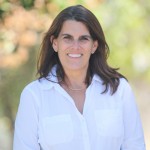
Sara Singer, PhD
With Dr. Sara Singer, Professor of Medicine at the Stanford University School of Medicine and Professor by courtesy at the Stanford Graduate School of Business and Freeman Spogli Institute for International Studies. Hosted by Dr. Paul Terry, HERO, Senior Fellow
Dr. Singer will present results from a national survey recently published in the Milbank Quarterly. The survey is derived from the broad value proposition in a book by Quelch and Boudreau entitled: Building a Culture of Health: A New Imperative for Business, which examines the interface of social and business trends and argues that four pillars are needed if business is to accrue the advantages of leading with a culture of health. Taken directly from their book, the pillars are:
- “Consumer health: How organizations affect the safety, integrity, and healthfulness of the products and services they offer to their customers and end consumers.”
- “Employee health: How organizations affect the health of their employees (e.g., provision of employer-sponsored health insurance, workplace practices and wellness programs).”
- “Community health: How organizations affect the health of the communities in which they operate and do business.”
- “Environmental Health: How organizations’ environmental policies (or lack thereof) affect individual and population health.”
We will discuss the detailed findings from the national survey and, as always, we will poll webinar participants for your views on the implications of this research for your practice. Some of the findings Dr. Singer will describe are that only 8% of businesses report having a strategic plan for promoting a culture of health that included all four pillars. The survey asked about whether businesses took 38 specific actions to promote a culture of health across the four pillars, and found that only 2% of businesses were in the top quartile for action-taking in all four dimensions. This webinar will also examine the connections between the Milbank article with the Workplace Health in America Survey results published in the American Journal of Health Promotion. Those findings indicate that relatively few companies took a comprehensive approach to employee health promotion in 2018, though at 12% it nearly doubled the percent of companies that were sponsoring comprehensive approaches back in 2004. We will discuss parallels between employee health in America in 2004 and the employer’s role in a Culture of Health in America in 2019.
Dr. Singer is a Professor of Medicine at the Stanford University School of Medicine and Professor by courtesy at the Stanford Graduate School of Business and Freeman Spogli Institute for International Studies. Before Stanford, Dr. Singer developed and taught courses at the Harvard T.H. Chan School of Public Health entitled “Health Care Organizations and Organizational Behavior” and “Leadership and Innovation in Health Care Organizations.” She also taught in the Harvard PhD in Health Policy core course and conducted leadership training programs for the Brigham and Women’s Hospital and the Massachusetts General Physician Organization on topics related to organizational culture, leadership and teamwork.
Dr. Singer’s research productivity is extraordinary with more than 100 articles published in academic journals and books on healthcare management, health policy and health system reform. Singer’s publications have won numerous awards, including best paper awards from the Academy of Management’s Health Care Division in three consecutive years, and she was the recipient of the Avedis Donabedian Healthcare Quality Award from the American Public Health Association. Singer shared the results of the national culture of health survey as a keynote speaker at HERO’s Forum19, and this webinar builds on questions and comments she fielded from the audience.
This webinar is available to members only. Log in to view.
Thriving & Flourishing – Successful Aging (At Any Age)!
Original air date: October 30, 2019
Guest Panelists:

Don Ardell, PhD

Susan Bradley-Cox
While we can’t change genetics, we can promote the odds for effective adaptations that allow extended enjoyments in later life. How? By attitude adjustments based upon worthy insights, and wiser lifestyle choices made before, during and after age changes commence. Successful aging is something that should appeal to all age groups.
Not Dead Yet is a book inspired by the attitudes held and choices made by a selection of elder triathlon world champions. The eighteen women and men profiled share two salient characteristics:
- The benefit of good fortune (the single most vital ingredient for successful aging); and
- Lifestyle qualities known to promote successful aging.
All are currently experiencing the culminating phase of their lives, and doing so in a manner that seems worthy of note. Without exception, their lives appear to model a hopeful set of positive, optimistic expectations for what’s possible.
Join the author, Don Ardell and Ironman, Susan Bradley-Cox, one of the athletes profiled in Don’s book, for a webinar that explores aging and wellness as something we should all address, no matter what our age or lifestyle.
Don Ardell, PhD is an outspoken freethinker who promotes a philosophy of REAL wellness. REAL is an acronym for Reason, Exuberance, Athleticism and Liberty – the four dimensions of a philosophy and lifestyle conducive to well-being and happiness.
In presentations since 1977, Don has integrated the highlights of his 15 books and nearly 1000 Wellness Reports with three favorite topics related to current events, namely, politics, sex and religion. He also offers a REAL wellness perspective with 56 tips on thriving and flourishing while aging. His latest is entitled Not Dead Yet.
Don’s presentations address principles and possibilities for finding added meaning and purpose, humor and joy amidst the challenges of weight gain/stress, political correctness, religion and obstacles to vigorous daily exercise. His focus is always on positive, enjoyable ways to live better, not the usual emphasis on reducing risks, giving up bad habits or otherwise addressing matters medical and boring.
Susan Bradley-Cox grew up in a wonderfully supportive small town, Paducah, Kentucky and attended the University of Kentucky where she practiced gymnastics. In Susan’s post-college career, she coached UK Cheerleaders for 10 years, taught water aerobics and competed in tennis. She was also the director of state tennis tournaments. Susan now coaches USMS Masters Swim Team at the University of Kentucky, as well as Team-in-Training Triathletes who raise funds for Leukemia/Lymphoma research.
Susan did her first triathlon in 1982 and qualified for her first Ironman in 1986. An annual triathlon is held in Susan’s name (Tri for Sight – a fund raiser for eye research at UK). Susan was named to the USA Triathlon Hall of Fame in 2010 and to Kentucky Athletic Hall of Fame in 2013. Susan’s motto is: No one flourishes alone – be grateful to all for encouragement and for opening doors.
This webinar is available to members only. Log in to view.
Not By My Selfie – A joint webinar between HERO and the UnLonely Project
Original air date: August 29, 2019
Guest Panelists:

Jeremy Nobel, MD, MPH
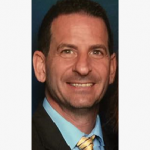
Keith Winick
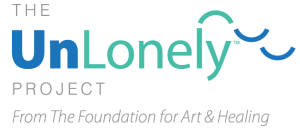 There is growing concern that social isolation and loneliness are a growing epidemic and employer leadership will be vital to curb this trend. This webinar features the work of The UnLonely Project and we will share exemplary results from initiatives underway for employees at Prudential. HERO members should consider this a “teaser” to our September 9th Think Tank in Portland on “Loneliness in an Era of Hyperconnectivity: The Employer’s Role in Addressing Social Isolation.” The need to find solutions to this problem has never been more acute given that loneliness affects more than one-third of American adults, with particular likelihood among individuals facing challenging life circumstances like loss of a loved one and chronic or catastrophic illnesses like diabetes, heart disease, mental illness or cancer. Research shows that loneliness has negative effects on mental health, worsening depression, anxiety, mood disorders and cognitive decline, and on physical health, leading to higher rates of cardiovascular impairment, chronic pain and fatigue. We will discuss the many factors that may be accelerating the crisis, such as how internet and social media engagement exacerbate feelings of loneliness, depression and anxiety. First, because the problem of loneliness is worrisome and growing, with an urgent need to move past the silence and stigma that prevents us from fully acknowledging its significance, our focus as always will be on finding solutions. For example, we will discuss how creative arts expression, with its ability to engage us and connect us, shows great promise in reducing isolation and fostering improvement in health outcomes.
There is growing concern that social isolation and loneliness are a growing epidemic and employer leadership will be vital to curb this trend. This webinar features the work of The UnLonely Project and we will share exemplary results from initiatives underway for employees at Prudential. HERO members should consider this a “teaser” to our September 9th Think Tank in Portland on “Loneliness in an Era of Hyperconnectivity: The Employer’s Role in Addressing Social Isolation.” The need to find solutions to this problem has never been more acute given that loneliness affects more than one-third of American adults, with particular likelihood among individuals facing challenging life circumstances like loss of a loved one and chronic or catastrophic illnesses like diabetes, heart disease, mental illness or cancer. Research shows that loneliness has negative effects on mental health, worsening depression, anxiety, mood disorders and cognitive decline, and on physical health, leading to higher rates of cardiovascular impairment, chronic pain and fatigue. We will discuss the many factors that may be accelerating the crisis, such as how internet and social media engagement exacerbate feelings of loneliness, depression and anxiety. First, because the problem of loneliness is worrisome and growing, with an urgent need to move past the silence and stigma that prevents us from fully acknowledging its significance, our focus as always will be on finding solutions. For example, we will discuss how creative arts expression, with its ability to engage us and connect us, shows great promise in reducing isolation and fostering improvement in health outcomes.
Jeremy Nobel, MD, MPH, is founder of the UnLonely Project and faculty of the Harvard Medical School in the Department of Global Health and Social Medicine. He is Board Certified in both internal medicine and preventive medicine, with master’s degrees in epidemiology and health policy from the Harvard School of Public Health. He is also a poet, a photographer, and a teacher—a practitioner of the humanities. With the unique background and training required to bridge scientific and humanistic disciplines, he has contributed to significant explorations into how creative expression mitigates illness and enhances well-being. He has become a prominent advocate for creative engagement, ancillary to and integrated with traditional medical care, as a pathway to healing.
Keith Winick is the director of health & wellness and analytics for Prudential Financial’s award-winning health and wellness program. He has over 25 years’ experience in the health and wellness industry. His focus is creating a culture of health, reducing health risks and improving and measuring performance and productivity within his organization. Under Keith’s guidance, Prudential has won many prestigious awards, including the C. Everett Koop National Health Award, American Heart Association’s Fit Friendly Platinum Award and The National Business Group on Health’s Best Employers for Healthy Lifestyles Platinum Award. Keith holds a master’s degree in physical education from Montclair State University.
This webinar is available to members only. Log in to view.
Forgiveness and Collective Well-Being: The Science Behind Pro-social Experiences and Health Behavior Change
Original air date: July 11, 2019
Guest Panelists:

Loren Toussaint, PhD

Brita Roy, MD, MPH, MHS

Carley Riley, MD, MPP, MHS
This HERO webinar is based on two 2018 “Papers of the Year” published in the American Journal of Health Promotion.
Integrative work building from psychological, medical, theological, philosophical and sociological theory and research supports the utility of forgiveness for the enhancement of health, well-being and longevity. Loren Toussaint will focus on three areas that improve an individual’s ability to incorporate forgiveness into their lives. First, he will define forgiveness and understanding of the ultimate goal that we strive for in living a forgiving life. Second, he will connect forgiveness to its primary health benefits to understand how forgiveness can confer health advantages. Third, he will review leading approaches to forgiveness education and promotion. This presentation should give a clear sense of what forgiveness is, how it can be healing in multiple settings and specific techniques for how to encourage and promote forgiveness for health. Forgiveness IS healing at biological, psychological and social levels.
We are also featuring an encore presentation on “collective well-being” a conceptual model based on a comprehensive literature review showing the interrelationships between community health and individual health practices. In this session, Brita Roy and Carley Riley will present a literature-based model called “Collective well-being” which can serve as a holistic measure of the overall “health” of a community. “Collective well-being” is a group-level construct measured across five domains: vitality, opportunity, connectedness, contribution and inspiration. They will discuss how the five domains contribute to collective well-being through actionable examples and opportunities for demonstrating how community characteristics effect well-being and how worksite wellness can play a role in improving community health.
Dr. Loren Toussaint is a professor of psychology at Luther College in Decorah, Iowa. He is a consultant to Mayo Clinic, Cancer Treatment Centers of America, Boise State University, and the associate director of the Sierra Leone Forgiveness Project. Dr. Toussaint’s research examines virtues, especially forgiveness, and how they are related to health and well-being. He and colleagues recently published a compendium of research titled: Forgiveness and Health: Scientific Evidence and Theories Relating Forgiveness to Better Health (Springer). Dr. Toussaint directs the Laboratory for the Investigation of Mind, Body, and Spirit at Luther College (https://www.luther.edu/touslo01/). He encourages “everyday forgiveness” to build resilience and minimize stress in families, schools, healthcare, workplaces, and communities.
Brita Roy is an Assistant Professor in General Internal Medicine at the Yale School of Medicine and the Director of Population Health for Yale Medicine. Her scholarly work focuses on assessing the relative contribution of positive social and psychosocial factors at the individual and community level to health outcomes and health disparities, as well as the interdependence of these determinants and interactions with the environment. Dr. Roy is also interested in the development of multi-disciplinary community-healthcare collaborations to support population health and well-being. Dr. Roy received a Bachelors in Engineering from Vanderbilt University and a Masters in Engineering from Wayne State University. She then completed a combined MD/MPH at the University of Michigan before completing residency and Chief Residency in internal medicine at the University of Alabama at Birmingham. Dr. Roy was a Robert Wood Johnson Foundation Clinical Scholar at Yale University from 2013-2015.
Carley Riley is an Assistant Professor in the Department of Pediatrics at the University of Cincinnati College of Medicine and an Attending Physician in the Division of Critical Care at Cincinnati Children’s Hospital. She is a clinician-investigator with the mission of cultivating populations of thriving individuals and communities across all demographics from childhood through adulthood by building positive health assets through research, policy, and activism. Her research focuses on generating actionable knowledge to inform efforts to achieve this mission. Dr. Riley received a Bachelor of Arts in English Literature and a Medical Doctorate from Northwestern University, a Master of Public Policy from UCLA, and a Master of Health Science from Yale University. She completed General Pediatric Residency and Chief Residency at Children’s Hospital Los Angeles and Pediatric Critical Care Fellowship at Cincinnati Children’s Hospital Medical Center. Dr. Riley was a Robert Wood Johnson Foundation Clinical Scholar at Yale University from 2013-2015 and is currently a Fellow with The Institute for Integrative Health.
This webinar is available to members only. Log in to view.
Beyond Incentives: Harnessing the Power of Purpose to Transform Programs and Lives
Original air date: June 18, 2019
Guest Panelists:

Vic Strecher, PhD, MPH

Eric Zimmerman, MPH, MBA
Join this science and story-packed session to gain timely insights on ways to transform your approach to engagement and change. Companies are increasingly harnessing the power of purpose to create a more authentic connection with their people and to unify their health and talent strategies. While we know incentives can work to boost initial participation, we also know they have unintended consequences and add significant cost. In contrast, the main side-effects of a stronger sense of purpose are lower resistance to change, increased openness to diversity and reduced risk of a whole host of diseases. Join us to learn practical steps to infuse a stronger purpose focus into your emotional and total well-being initiatives and the benefits in doing so, and start on your path toward creating a Culture of Purpose at your organization.
Both Eric and Vic will be joining HERO this September in Portland, Oregon. Eric will be hosting a deep dive on this topic at Forum19 on Thursday, September 12th. Vic will be a keynote speaker at the Healthcare Summit on September 9th. For more information please visit the Forum website.
Vic Strecher is a leader and visionary in the fields of purpose and well-being, creating new solutions that operate at the intersection of the science of behavior change and advanced technology. In 1998, Vic created Health Media pioneering Web-based “digital health coaching.” Since January 2014, Vic has given keynote presentations about the role of purpose in life, energy and willpower to over 1,500 organizations, providing him the opportunity to not only respond to the growing interests of the market, but to also continue to help shape it.
Eric Zimmerman brings global experience in design, launch and commercialization of breakthrough digital health solutions focused on population health, connectivity, community and collaboration. Before joining Kumanu, Eric led strategic marketing, product management, business development and behavior design as Chief Marketing Officer at RedBrick Health. He previously held leadership roles at RelayHealth, Mirixa, Medscape and StayWell. Eric earned his B.A. in Ecology Behavior and Evolution at UCSD’s Revelle College, his MPH in Behavior Science and Health Education from UCLA and his MBA from Pepperdine University.
This webinar is available to members only. Log in to view.
The Recent JAMA Study: A Balanced Discussion of Workplace Wellness Research
Original air date: May 15, 2019
Guest Panelists:

Ron Goetzel, PhD

Zirui Song, MD, PhD

Jean Abraham, PhD
Hundreds of research studies published in scientific journals conclude that well designed, evidence based, comprehensive health and well-being initiatives work. We know this, yet occasionally, a new study is published that is inconsistent with the overall body of research. So we’ve asked Dr. Ron Goetzel to facilitate a conversation with Dr. Zirui Song, lead study author, and Dr. Jean Abraham who wrote the editorial commentary. Join us for a balanced discussion of the research and get answers to your questions on the design, implementation and evaluation methods.
Ron Goetzel, PhD, wears two hats. He is Senior Scientist and Director of the Institute for Health and Productivity Studies (IHPS) at the Johns Hopkins Bloomberg School of Public Health and Vice President of Consulting and Applied Research for IBM Watson Health. Dr. Goetzel is a Task Force Member for the Guide to Community Preventive Services (Community Guide) housed at the CDC and President and CEO of The Health Project, which annually awards the prestigious C. Everett Koop Prize. He is the Immediate Past Chair for HERO and Vice-Chair for The Fries Foundation housed at the CDC Foundation. He has also served on several committees organized by the National Academies of Science (NAS). Dr. Goetzel earned his doctorate in Organizational and Administrative Studies and his MA in Applied Social Psychology from New York University (NYU).
Zirui Song, MD, PhD, is a physician and health economist at Harvard Medical School and Massachusetts General Hospital. His work examines policy options to slow health care spending and improve the value of care, including alternative payment models, changes in provider prices, the economics of Medicare Advantage and workplace wellness programs. Dr. Song teaches health policy and economics at Harvard and co-directs the Harvard Medical School external education course on employee health benefits purchasing. His work has been recognized by AcademyHealth, the American College of Physicians, Society of General Internal Medicine and Forbes Magazine. Dr. Song received his MD, magna cum laude, and PhD in Health Policy (Economics) from Harvard University and completed his residency training at Massachusetts General Hospital.
Jean Abraham, PhD, is a professor in the Division of Health Policy and Management and is the director of the Master of Healthcare Administration Program in the School of Public Health at the University of Minnesota. Abraham received her PhD in public policy analysis and management from Carnegie Mellon University with specialization in the areas of health economics and policy. She is particularly interested in employer and employee decision-making with respect to health insurance, employer wellness program evaluation and competition in provider and insurance markets. She won the Master of Healthcare Administration (MHA) program’s teaching award three times and the Leonard M. Schuman Award for Excellence in Teaching in the School of Public Health in 2011.
This webinar is available to members only. Log in to view.
Is there more to food than calories, taste, and nutrition?
Original air date: May 9, 2019
Guest Panelists:

Kevin D. Walker, PhD, Michigan State University
Two full lifetimes ago consuming more calories was always welcome, taste was secondary and having enough food defined everyday life. Nowadays, the opposite holds true: our society is awash in calories and individuals expect their food to satisfy personal tastes and lifestyle preferences. Finding ways to turn out more food created new possibilities and made living easier. Yet, while we have been busy changing food, food has been changing us in unexpected and unforeseen ways.
The modern food system relies on an illusion. It depends on endless abundance, but the planet has its limits. So too does a healthcare system that must absorb rising rates of diabetes and obesity. Shifting our mindset is essential, and It starts with remembering that what we eat affects the wider world. If each of us decides that bigger isn’t always better, we can renegotiate the grand food bargain, one individual decision at a time.
Kevin D. Walker grew up farming and has seen almost every facet of agriculture firsthand: working in agribusiness at the US Department of Agriculture, overseas with international nonprofits, and as a professor at Michigan State University. He has served on committees with the National Academies Institute of Medicine and National Research Council and as a consultant to foreign governments and the World Trade Organization. Dr. Walker’s book, The Grand Food Bargain: and the Mindless Drive for More, was released in March 2019.
This webinar is available to members only. Log in to view.
Mental Health: A Workforce Crisis
Original air date: April 30, 2019
Guest Panelists:
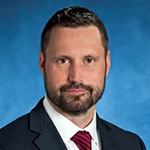
Chris Calitz, MPP

Drew Mills, MPH
Given the high prevalence of chronic stress, burnout and mental health disorders reported by US employees and the associated costs borne by employers, the American Heart Association’s CEO Roundtable commissioned the Center for Workplace Health to report on effective strategies to address mental health disorders in the workplace. This webinar shares insights and implications of the published report including:
- The business case for investing in the mental health of employees;
- What current research tells us about the effectiveness of mental health interventions in the workplace;
- Employee perceptions of these programs, and their interests in mental health related topics; and
- Implications for research and practice.
Chris Calitz is Director of the Center for Workplace Health. Chris has expertise in policy analysis, workplace health research and evaluation, program development, implementation science, and cardiovascular disease prevention. Before joining AHA, Chris was a health policy analyst for the Vitality Group and he co-founded the MEND Program, one of the largest community-based childhood obesity programs in the US, UK, Canada, and Australia. Chris has published original research, commentaries, and statement articles on disease prevention and workplace health promotion in Circulation, Health Affairs, American Journal of Preventive Medicine, and the Journal of the American Medical Association.
Drew Mills is a Health Programs Analyst in the AHA’s Center for Workplace Health. Drew is a recent graduate of the University of Texas Health Science Center- Houston, where his graduate work focused on health promotion and behavioral science. Before joining AHA in his current role, Drew completed multiple internships at the AHA. In addition to working with the Center for Workplace Health’s white paper on mental health, he worked with the Center for Health Metrics and Evaluation and the NFL PLAY 60 and Back to Sports programs.
This webinar is available to members only. Log in to view.
A Masterclass on Engagement: Exploring What We Mean and How To Drive a Culture of Value
Original air date: April 16, 2019
Guest Panelists:

Dr. Brad Shuck
Few ideas have generated more excitement with leaders than employee engagement. Everyone wants more of it, yet application, measurement, and practice—not to mention results—vary widely across our industry. What seems to be missing from the conversation is a fundamental understanding of the science behind the engagement phenomenon, as well as a deeper understanding around how the practice of engagement is deeply connected to outcomes that matter every day, including our personal and work lives. Using the latest decision-science, learn to focus on uncovering the psychology of employee engagement to build toward workplace conditions that promote happier, committed, and healthier employees at all levels. This evidence-based, yet informal and relaxed Webinar is designed for professionals at all levels who hope to build a better place of work through sustainable, principle-based strategies – rather than prescribed, one-size fits all practices – that drive possibility and opportunity.
Dr. Brad Shuck uses evidenced-based, story-driven, and visually inspiring presentations show how leaders at all levels can build positive and inspiring places of work that improve performance, increase employee wellbeing, and influence peak motivation. His evidenced-based work on engagement and the employee value proposition has been featured in Forbes, The Washington Post, and TIME, as well as Business World Online, India’s Economic Times, and the Hindu Times. Dr. Shuck is an Associate Professor in the Human Resource and Organizational Development program at the University of Louisville, Louisville, Kentucky. Shuck holds faculty affiliate status with the Department of Counseling and Human Development (UofL) and has worked with the United States Army, Defense Language Institute, United States Navy, and The United States Air Force.
This webinar is available to members only. Log in to view.
Promoting Physical Activity in the Workplace
Original air date: April 11, 2019
Guest Panelists:

Laurie Whitsel, Ph.D.

Nico Pronk, Ph.D.
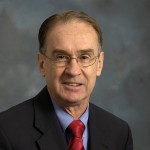
Russell R. Pate, Ph.D.
The US Department of Health and Human Services released its second edition of the Physical Activity Guidelines for Americans in November 2018, highlighting the importance of moving more and sitting less. Physical inactivity continues to be a significant health and business issue with implications for mental health, mortality and morbidity associated with chronic conditions, health care costs, and workforce productivity.
This webinar will focus on the actions employers can take to support the Physical Activity Guidelines with a special focus on the influence of employers to support consistent physical activity assessment, incorporation of physical activity into health care, leadership role modeling, worksite culture and policy.
Laurie Whitsel, Ph.D., is currently the Vice President of Policy Research and Translation for the American Heart Association (AHA), helping to translate science into policy at a national level in the areas of cardiovascular disease and stroke prevention and health promotion. The association’s policy research department provides policy development and the foundation for the American Heart Association’s advocacy work at the global, national, state, and local levels. Guided by volunteer leadership, the AHA policy research team has worked with leading experts around the world to develop policy statements that position the organization on issues that will impact cardiovascular health and reduce mortality, guide the association’s advocacy work, and inform policy makers, practitioners, health care professionals, researchers, the media, and the public. Whitsel serves on the Board of Directors for the Health Enhancement Research Organization and the National Coalition for Promoting Physical Activity. She has served on expert advisory groups with RAND, the National Academies of Sciences, Engineering, and Medicine, the Bipartisan Policy Center, the Centers for Disease Control and Prevention, and the Robert Wood Johnson Foundation. Her Ph.D. is from Syracuse University and she is a Fellow and member of the AHA’s National Scientific Council on Lifestyle and Cardiometabolic Health.
Nico Pronk, Ph.D., is President of the HealthPartners Institute and Chief Science Officer at HealthPartners, Inc. and holds a faculty appointment as Adjunct Professor of Social and Behavioral Sciences at the Harvard T.H. Chan School of Public Health in Boston, Massachusetts. Dr. Pronk’s work is focused on connecting evidence of effectiveness with practical applications of programs and practices, policies and systems that measurably improve population health and well-being. His work applies to the workplace, the care delivery setting, and the community and involves development of new models to improve health and well-being at the research, practice and policy levels. Dr. Pronk was confirmed by the White House to serve as co-chair of the U.S. Secretary of Health and Human Services’ Advisory Committee on National Health Promotion and Disease Prevention Objectives for the year 2030 (aka “Healthy People 2030”). He is a current member of the Food and Nutrition Board at the National Academies of Sciences, Engineering and Medicine and is the founding and past president of the International Association for Worksite Health Promotion. Dr. Pronk received his doctorate degree in exercise physiology at Texas A&M University and completed his post-doctoral studies in behavioral medicine at the University of Pittsburgh Medical Center at the Western Psychiatric Institute and Clinic in Pittsburgh, Pennsylvania.
Russell R. Pate, Ph.D., is a Professor in the Department of Exercise Science in the Arnold School of Public Health at the University of South Carolina. Pate is an exercise physiologist with interests in physical activity and physical fitness in children and the health implications of physical activity. He has published more than 350 scholarly papers and has authored or edited eight books. His research has been supported by the National Institutes of Health, the U.S. Centers for Disease Control and Prevention, the American Heart Association, and several private foundations and corporations. He heads a research team that is currently supported by multiple grants from the National Institutes of Health and from the U.S. Centers for Disease Control and Prevention. He served on the U.S. Dietary Guidelines Advisory Committee (2003-04), the U.S. Physical Activity Guidelines Advisory Committee (2007-08), and an Institute of Medicine panel that developed guidelines on prevention of childhood obesity. He currently serves as Chair of the National Physical Activity Plan Alliance, and was a member of the 2017-2018 U.S. Physical Activity Guidelines for Americans Advisory Committee.
This webinar is available to members only. Log in to view.
What is the Business Case for Employers’ Investment in Healthy Communities: Improved Worker Health, Lower Medical Costs, and Higher Stock Performance?
Original air date: March 21, 2019
Guest Panelists:

Ron Goetzel, PhD
Dr. Ron Goetzel will address the ongoing controversy over whether workplace wellness programs work by sharing new and emerging research on the role culture of health (COH) plays. He will also address the shift from a return-on-investment (ROI) rationale for these programs to one that emphasizes value-on-investment (VOI). Dr. Goetzel will also review his “top 10” list of best and promising practices revealed from research projects supported by the Robert Wood Johnson Foundation.
Session Take-Aways:
- Learn about three major studies conducted in the last 12 months that have strongly influenced workplace health promotion
- Understand what it takes to achieve a world-class and effective workplace wellness program
- Gather new information to make a compelling business case for investing in workers’ health and well-being
- Identify key factors needed to develop or expand an effective and credible workplace health promotion program
Ron Goetzel, PhD, wears two hats. He is Senior Scientist and Director of the Institute for Health and Productivity Studies (IHPS) at the Johns Hopkins Bloomberg School of Public Health and Vice President of Consulting and Applied Research for IBM Watson Health. Dr. Goetzel is responsible for leading innovative projects for healthcare purchaser, managed care, government, and pharmaceutical clients interested in conducting cutting-edge research focused on the relationship between health and well-being, medical costs, and work-related productivity. He is an internationally recognized and widely published expert in health and productivity management (HPM), return-on-investment (ROI), program evaluation, and outcomes research. Dr. Goetzel has published well over 200 peer-reviewed articles and book chapters and frequently presents at international business and scientific forums.
Dr. Goetzel is a Task Force Member for the Guide to Community Preventive Services (Community Guide) housed at the CDC, and President and CEO of The Health Project, which annually awards the prestigious C. Everett Koop Prize to organizations with demonstrable health improvement and cost savings data. He is the Chairperson for HERO and Vice-Chair for The Fries Foundation housed at the CDC Foundation. He has also served on several committees organized by the National Academies of Science (NAS).
Dr. Goetzel earned his doctorate in Organizational and Administrative Studies and his M.A. in Applied Social Psychology from New York University (NYU), and his B.S. degree in Psychology from the City College of New York (CCNY). He is based in Bethesda, MD.
This webinar is available to members only. Log in to view.
Broadening our View of Financial Well-Being
Original air date: February 26, 2019
Guest Panelists:

Sara Johnson, PhD

Susan Morgan Bailey, MS, CIC, SHRM-SCP, SPHR
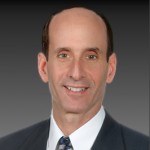
Bruce Sherman, MD, FCCP, FACOEM
Increasingly aware of the toll financial distress is taking on employees, employers are taking steps to address financial well-being as a key component of their overall wellness strategy. This webinar will challenge our field to adopt a more comprehensive approach to addressing financial well-being. Please join Sara Johnson, Bruce Sherman, and Susan Morgan Bailey as they explore the limitations on “bandwidth” that scarcity can create; the role financial well-being initiatives can play in improving social determinants of health; and opportunities for employers to address financial well-being along a continuum from financial concerns that impact ability to afford necessities of living to financial planning skills and preparing effectively for retirement.
Sara Johnson, PhD, is the Co-President & CEO of Pro-Change Behavior Systems, Inc., a behavior change science consulting and solution provider whose mission is to disseminate evidence-based behavior change solutions to maximize health and well-being. In her 20 years at Pro-Change, she has been responsible for generating and leading the implementation of innovative research and development opportunities as well as creating and expanding strategic business alliances. She has been the principal investigator on over $6 million in National Institutes of Health grants to examine the effectiveness of evidence-based health and well-being interventions and has more than 40 publications. In addition, she has applied best practices in behavior change to novel areas such as promoting financially responsible use of health services and continuing medical education. She is currently leading new research initiatives to integrate individual- and culture-level interventions to enhance well-being; increase engagement with evidence-based mobile apps that promote behavior change; and develop interventions for pain self-management and sleep. She is also the Co-Editor of The Art of Health Promotion. Sara received her Ph.D. in Clinical Psychology from the University of Rhode Island and is currently an adjunct faculty member to the Psychology Department.
Susan Morgan Bailey, MS, CIC, SHRM-SCP, SPHR, is director of total health & wellbeing at Marsh & McLennan Agency, where she calls upon her experience to help organizations build supportive cultures that empower individuals to live healthy, engaged lives. She has been instrumental in the success of a number of best-in-class health management strategies, including initiatives at DTE Energy, Beaumont Health System and Chrysler. Prior to joining MMA, Susan led the health and well-being strategy team at RedBrick Health. She has also worked in the public health sector as a health promotion coordinator for the Gaston County Health Department in NC, where she developed a countywide fitness and nutrition program for residents. She continues her commitment to community health improvement through active involvement in the Michigan Wellness Council. She has presented at conferences for HERO, National Business Group on Health, and Truven Health Analytics, and she serves on the faculty of the National Wellness Institute as a trainer for the Certified Worksite Wellness Program Manager certificate. Susan is a Certified Intrinsic Coach and is SHRM-SCP and SPHR certified. She has a BS in education from Central Michigan University and a master of science degree in health promotion from the University of North Carolina at Charlotte. Susan integrates her passion for wellbeing into her own life through time with her husband and two boys at her cottage in northern Michigan and conquering various outdoor pursuits, including paddleboarding, hiking, swimming, soccer, and occasional 10K and traveling to warm, sunny places.
Bruce Sherman, MD, FCCP, FACOEM, is the Chief Medical Officer for the National Alliance of Healthcare Purchaser Coalitions, where he provides guidance for clinically-related organizational activities. He also serves as Medical Director, Population Health Management for the RightOpt private exchange offering at Conduent HR Services. His primary area of responsibility is health/well-being strategy, with the goal of implementing integrated, data-driven approaches to optimize workforce health, and performance for employer clients. Dr. Sherman has research interests in the areas of employer health benefits strategies and the business value of workforce health. Previously, he served as the consulting corporate medical director for Wal-Mart Stores, Inc., Whirlpool Corporation, and The Goodyear Tire & Rubber Company. He received his MD from NYU School of Medicine, his MA from Harvard and his ScB from Brown, and is a member of the clinical faculty at Case Western Reserve University School of Medicine.
This webinar is available to members only. Log in to view.
The Fearless Organization: Creating Psychological Safety in the Workplace for Learning, Innovation, and Growth
Original air date: January 16, 2019
Guest Panelists:

Amy Edmondson, PhD
With so much riding on innovation, creativity, and spark, it is essential to attract and retain quality talent—but what good does this talent do if no one is able to speak their mind? The traditional culture of “fitting in” and “going along” spells doom in the knowledge economy. Success requires a continuous influx of new ideas, new challenges, and critical thought, and the interpersonal climate must not suppress, silence, ridicule or intimidate. Not every idea is good, and yes there are stupid questions, and yes dissent can slow things down, but talking through these things is an essential part of the creative process. People must be allowed to voice half-finished thoughts, ask questions from left field, and brainstorm out loud; it creates a culture in which a minor flub or momentary lapse is no big deal, and where actual mistakes are owned and corrected, and where the next left-field idea could be the next big thing. The road is sometimes bumpy, but succinct and informative scenario-based explanations provide a clear path forward to constant learning and healthy innovation.
Amy C. Edmondson, PhD, is the Novartis Professor of Leadership and Management at the Harvard Business School, a chair established to support the study of human interactions that lead to the creation of successful enterprises that contribute to the betterment of society.
Edmondson has been recognized by the biannual Thinkers50 global ranking of management thinkers in 2011, 2013, 2015 and 2017 and was honored with the Talent Award in 2017. She studies teaming, psychological safety, and leadership, and her articles have been published numerous academic and management outlets. She has published several books, including her latest “The Fearless Organization: Creating Psychological Safety in the Workplace for Learning, Innovation, and Growth.”
Before her academic career, she was Director of Research at Pecos River Learning Centers, where she worked on transformational change in large companies. In the early 1980s, she worked as Chief Engineer for architect/inventor Buckminster Fuller. Edmondson received her PhD in organizational behavior, MA in psychology, and BA in engineering and design from Harvard University.
This webinar is available to members only. Log in to view.
Workplace Health and Well-Being: Perceptions and the Employee Experience
Original air date: December 6, 2018
Guest Panelists:

Michelle Soto, MS

Lynn Clement
Employee awareness of health and well-being offerings and perceptions about their value are just a couple of factors that might influence the effectiveness of employer-sponsored health and well-being initiatives. This session will feature findings from a recently conducted survey of 589 employed adults regarding employer-sponsored wellness programs, including awareness, participation, and perceptions about physical, mental, and financial well-being programs. The presentation will be followed by an employer reactor panel, which will discuss the implications of the findings as well as insights from their organizations’ efforts to understand their employee health and well-being experience.
Michelle Soto, MS, is senior vice president of research for KJT Group, where she provides overall leadership, direction and support for her team to ensure client satisfaction. She has been consulting in healthcare market research for almost 20 years, with business objectives spanning the product life cycle, including new project development, positioning and messaging, satisfaction and loyalty, forecasting, segmentation, and customer experience. Michelle is a RIVA-trained focus group moderator and has conducted extensive international in-person and online qualitative research across a variety of issues and therapeutic areas. Previous employment at an academic hospital, as well as at a county health department, contribute to her overall understanding of the healthcare industry. Michelle has an MS in management from Rochester Institute of Technology and earned her BA magna cum laude from the University of Rochester.
Lynn Clement has been the President of Global Research at KJT Group, Inc. since its inception in 2007. Her extensive background in the healthcare market research industry coupled with her passion for healthcare delivery and life sciences has led her to manage a dynamic team of researchers in the design and management of thousands of qualitative and quantitative research projects in the US and abroad, providing clients with strategic insights and research guidance throughout the product life cycle. In addition, Lynn is a RIVA trained focus group moderator with significant experience conducting groups and IDIs among clinicians, payers, administrators, consumers and many other stakeholders in the healthcare industry. Lynn earned her MPH with a concentration in Health Policy and Management from Columbia University and a bachelor’s degree in Health and Society from the University of Rochester.
This webinar is available to members only. Log in to view.
Improving Population Health and Well-Being in the Central Southern Tier
Original air date: November 14, 2018
Guest Panelists:

Melissa Wendland, Director of Strategic Initiatives with Common Ground Health
The Central Southern Tier Health Alliance is a multi-stakeholder planning group that formed to address the complex issues affecting the health and well-being of residents in the Southern Tier of the Finger Lakes region (Steuben, Schuyler and Chemung counties). Building on lessons learned from previous health improvement efforts and with facilitation and analytic support from Common Ground Health, the Alliance utilized a systems dynamic approach to coalesce around a value proposition of improving overall health and well-being in the region. Using dynamic modeling, the Alliance found that top two priorities for improving health and well-being are jobs and wealth, and pathways to success for children.
This webinar is available to members only. Log in to view.
Shared Responsibility for Resilience: Uncovering the Factors
Original air date: September 27, 2018
Guest Panelists:
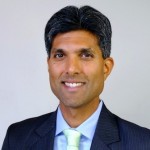
Siddharth Ashvin Shah, MD, MPH; CEO of Greenleaf Integrative
Washington, DC-based Greenleaf Integrative completed a study for the globally-dispersed governmental agency, USAID, to assess the psychosocial difficulties and contextual stressors faced by the agency’s humanitarian relief workers and the supports available to them. The key insights from the study fueled recommendations for structural changes within the agency, as well as Greenleaf’s continued philosophy of shared responsibility for resilience in organizations operating in highly demanding environments. Webinar participants are invited to download a research summary prior to the webinar.
Siddharth Ashvin Shah, M.D., M.P.H., is a physician and public health scientist who seeks to change the way we regard our society’s helpers, protectors, and healers—people and organizations who operate in demanding and traumatic environments. Siddharth’s interdisciplinary expertise spans the humanities, social sciences, common sense preventive
medicine, cross-cultural resilience and spiritual practices, trauma-informed care, disaster public mental health, and real-world applications of cutting-edge neuroscientific thinking.
He serves as CEO of Greenleaf Integrative, collaborating with his expert staff on the development of integrative wellbeing solutions. Greenleaf grew out of Siddharth’s international consulting to governments, health care organizations, NGOs, and the private sector in the areas of chronic high stress, brain health, trauma resiliency, strategic communications, and leadership effectiveness.
Before founding Greenleaf, Siddharth conducted a private practice at the GW Center for Integrative Medicine in Washington, DC. Previously, he headed the Preventive Medicine Residency Program at Wyckoff Heights Medical Center in Brooklyn, NY. Siddharth received his BA in religious studies from Rice University and completed his MD at Baylor College of Medicine. He completed residency at the Icahn School of Medicine at Mount Sinai, training in preventive and behavioral medicine, and a Masters in Public Health.
This webinar is available to members only. Log in to view.
From Wellness to Well-being to “Collective Well-being”: Our field’s growing ambitions in research and practice
Original air date: September 19, 2018
Guest Panelists:

Brita Roy, MD, MPH, MHS

Patty Purpur de Vries
In this session, Yale’s Brita Roy will unveil a new, literature based model called “Collective well-being” which can serve as a holistic measure of the overall “health” of a community. Patty Purpur de Vries will review Stanford’s “Well-being Framework” and we will compare these models and discuss how each offers actionable examples and opportunities for demonstrating how community characteristics effect well-being and how worksite wellness can play a role in improving community health. “Collective well-being” is a group-level construct measured across five domains: vitality, opportunity, connectedness, contribution, and inspiration. Related to these domains, professional development and resiliency building examples from Stanford will be featured. As always, we will poll our webinar audience to learn about current applications from the field that are advancing these concepts.
Brita Roy, MD, MPH, MHS, is an Assistant Professor in the Section of General Internal Medicine at the Yale School of Medicine and the Director of Population Health for Yale Medicine. Her scholarly work focuses on assessing the relative contribution of positive social and psychosocial factors (i.e., health assets) at the individual and community level to health outcomes and health disparities, as well as the interdependence of these determinants and interactions with the environment. Dr. Roy is also interested in the development of multi-disciplinary community-healthcare collaborations to support population health and well-being. Finally, Dr. Roy enjoys caring for patients and teaching medical students and residents as an academic hospitalist. Dr. Roy received a Bachelors in Engineering from Vanderbilt University, followed by a Masters in Engineering from Wayne State University. She then completed a combined MD/MPH at the University of Michigan before completing residency and Chief Residency in internal medicine at the University of Alabama at Birmingham. Dr. Roy was a Robert Wood Johnson Foundation Clinical Scholar at Yale University from 2013-2015.
Patty Sue Purpur de Vries is the associate director of faculty and staff wellness at Stanford University. Born and raised in North Dakota, Patty earned a full-athletic track scholarship to attend Stanford University, where she was a 9-time NCAA All-American and competed at the 1988 Olympic Trials. In 1992, Patty purchased $40 worth of business cards and began her career as a personal fitness trainer. By 2008, she grew her fitness & wellness company, TimeOut Services, to employ over 100 employees with annual revenues of over $5 million. In January, 2009, Patty sold all corporate fitness & wellness contracts, including those with Cisco, Yahoo! and Safeway, and the rights to her trademark Community BootCamp program to Plus One Holdings of New York (now Optum). Since 2013, Patty has been with Stanford; her previous roles included wellness manager of the HealthySteps wellness program for the 14,000+ non-physician employees of Stanford Health Care and Stanford Children’s Health, and the director of strategic projects for the Stanford WellMD Center. Patty holds an MS in health promotion management.
This webinar is available to members only. Log in to view.
What’s Your Mountain?
Original air date: August 15, 2018
Guest Panelists:

Jennifer Bruno
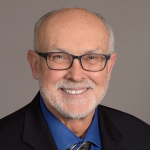
Jack Groppel, PhD
Jennifer Bruno, Vice President of Global Health Services, Johnson & Johnson, and Jack Groppel, PhD, Co-founder of Johnson & Johnson Human Performance Institute, were tested when climbing the largest mountain on the African continent. From the known challenges they planned for to the unknown events they could never have imagined, their human spirit was tested. The goal was to summit Mount Kilimanjaro and return safely. But with any goal in life, what lies in the purpose is what really makes the journey. This webinar shares insights they learned while climbing Mount Kilimanjaro, offering applications to overcoming life’s challenges.
Jack Groppel, PhD, is an internationally recognized authority and pioneer in the science of human performance and co-chair of the newly formed Global Alliance for Health & Performance. He currently serves on an academic appointment as Professor of Kinesiology & Community Health at the University of Illinois @ Urbana-Champaign, and served as an Adjunct Professor of Management at the J.L. Kellogg School of Management at Northwestern University for several years. Jack has addressed the issue of worksite wellness and performance at such policy events as the United Nations Side Event for Physical Activity and Non-Communicable Disease, a US Congressional Briefing on Worksite Health Promotion, and represented the worksite wellness industry at the historic Surgeon General’s Call to Action on Walking and Walkable Communities. He is the co-chair of HERO’s Workplace Performance Study Committee, as well as the national spokesperson for the CEO Pledge for Physical Activity of the National Coalition for Promoting Physical Activity. Jack co-authored the books, “The Corporate Athlete” and “The Corporate Athlete Advantage,” and developed a training program around the concept. He has been featured in the New York Times, Fortune, Forbes, Shape, Fast Company and Huffington Post, among others. Jack is a Fellow in the American College of Sports Medicine and the American College of Nutrition, as well as a Board certified nutritionist.
Jennifer Bruno is the Vice President of Global Health Services for Johnson & Johnson. In this role, Jennifer is part of the Total Reward Leadership Team and leads J&J’s employee health and wellness strategies, policies, guidelines and service delivery for the 134,000 employees in more than 260 companies worldwide. She is responsible for driving innovative approaches and operational excellence across Occupational & Executive Health, Mental Well-being, Energy Management, Wellness & Health Promotion and Work-Life Services to achieve the enterprise aligned goal of the healthiest workforce.
Jennifer has been published in several industry publications including the Journal Occupational and Environmental Medicine, Baseline Magazine and Incentive Magazine. She is a member of the Global Business Group on Health, National Business Group on Health, Health Enhancement Research Organization, American Heart Association CEO Roundtable Lieutenant Group and the Healthcare Business Women’s Association. Jennifer is also an Advisory Council Member to the Harvard T.H. Chan School of Public Health and the Harvard Business School Culture of Health Advisory Committee. She is on the Board of Directors of The Health Project, which helps determine which organizations have earned the prestigious title of “Winner” of the annual C. Everett Koop National Health Award.
This webinar is available to members only. Log in to view.
Leveraging the Power of Your Brand to Unleash Engagement in Wellbeing
Original air date: June 28, 2018
Guest Panelists:

Tina M. Marshall, Sr. Director, Total Rewards, T-Mobile USA, Inc.
T-Mobile sought to find a better way to connect employees in a simple and efficient manner to expert resources, ultimately helping them to be their best self. In their desire to stay true to their culture and engage their millennial population, T-Mobile wanted a solution that was mobile, socially driven and fun! From these objectives, LiveMagenta! was born as a means to drive engagement through organic adoption and simple yet engaging sourcing of resources.
Join us as we learn from Tina M. Marshall and gain a better understanding on how an organization can use their brand to enhance engagement in well-being practices of their employees.
Tina M. Marshall joined the T-Mobile HR Leadership team in 2003. As the Sr. Director of Total Rewards, she is responsible for the overall strategy and management of U.S. employee benefits, compensation and enterprise recognition programs. Tina and her team are committed to continuously finding ways to deliver exceptional programs and processes that align with T-Mobile’s vision and “Un-carrier” strategy.
Tina has held a variety of leadership roles over the past 30 years in employee benefits, healthcare insurance services, and the consulting field as well as operations and general manager positions in Seattle-based employee benefits and third party administration firms. She earned the Certified Benefits Professional (CBP) designation through World at Work in 2006 and is an active member of the IFEBP and Recognition Professionals International. She is currently Corporate Sector Representative on the International Foundation of Employee Benefits Plans’ Executive Committee, Executive Committee Liaison on its Corporate Board and a member of the Strategic Initiative Steering Committee and Affordable Care Act (ACA) Expert Panel. Tina is past Chair of the Corporate Board of the International Foundation and was a voting member of its Board of Directors.
This webinar is available to members only. Log in to view.
Dreamland: The True Tale of America’s Opioid Epidemic
Original air date: May 23, 2018
Guest Panelists:

Sam Quinones
Following on the HERO Winter Think Tank, “Overdosed: Are we taking in too much?”, the HERO team is proud to bring you a unique opportunity to join us in a book club discussion with journalist and author, Sam Quinones. Not only did Quinones win the National Book Critics Circle Award for “Dreamland: The True Tale of America’s Opioid Epidemic,” his book also was recognized as a “Best Book in 2015” in over a dozen literary and journalistic venues. Laura Miller from Slate.com summarized “Dreamland” superbly when she wrote:
“You won’t find this story told better anywhere else, from the economic hollowing-out of the middle class to the greedy and reckless marketing of pharmaceutical opiates to the remarkable entrepreneurial industry of the residents of the obscure Mexican state of Nayarit. All of these factors combined to create an opiate-addicted population in small American cities like Portsmouth, Ohio, where residents, priced out of pill mills, turned to a new, and newly cheap, high. Dreamland — true crime, sociology, and exposé — illuminates a catastrophe unfolding all around us, right now.”
We look forward to continuing our learnings and discussions about how employers can play a larger role in preventing and managing what many consider one of the most serious epidemics of modern times.
Sam Quinones
Sam Quinones is a journalist, storyteller, former L.A. Times reporter, and author of three acclaimed books of narrative nonfiction. His most recent book is Dreamland: The True Tale of America’s Opiate Epidemic by Bloomsbury Press.
His career as a journalist has spanned almost 30 years. He lived for 10 years as a freelance writer in Mexico, where he wrote his first two books. In 2004, he returned to the United States to work for the L.A. Times, covering immigration, drug trafficking, neighborhood stories, and gangs.
In 2014, he resigned from the paper to return to freelancing, working for National Geographic, Pacific Standard Magazine, the New York Times, Los Angeles Magazine, and other publications.
Columbia Journalism School selected him as a 2008 recipient of the Maria Moors Cabot prize, for a career of excellence in covering Latin America. He is also a 1998 recipient of an Alicia Patterson Fellowship, one of the most prestigious fellowships given to print journalists.
This webinar is available to members only. Log in to view.
Building Resilience in the Workplace
Original air date: April 11, 2018
Guest Panelists:

Chris Calitz, MPP

Adela Santana, MPH, MSEd, CHES
- How resilience is defined and measured;
- What current research tells us about the effectiveness of resilience training programs;
- Employee perceptions of these programs, and their interests in resilience related topics; and
- Implications for research and practice.
Chris Calitz is Director of the Center for Workplace Health Research and Evaluation. Before joining AHA, Chris was a health policy analyst for the Vitality Group and he co-founded the MEND Program, one of the largest community-based childhood obesity programs in the US, UK, Canada, and Australia. Chris has published original research, commentaries, and statement articles on disease prevention and workplace health promotion in Circulation, Health Affairs, American Journal of Preventive Medicine, and the Journal of the American Medical Association. He has served as an expert panelist on workplace wellness for the Centers for Disease Control and Prevention and the national advisory board for the Corporate Health Leadership Program convened by the Robert Wood Johnson Foundation. Chris has expertise in policy analysis, workplace health research and evaluation, program development, implementation science, and cardiovascular disease prevention.
Adela Santana is a Program Evaluation Analyst for the American Heart Association’s Center for Workplace Health Research and Evaluation. In this role, she contributes to workplace health research-related activities for the Association. She also manages the continuous quality improvement of the Workplace Health Achievement Index, an onlinetool used to help employers assess the comprehensiveness of their workplace health programs and the heart health of their workforce,resulting in annual enhancements to the tool’s functionality, utility and distribution. Prior to joining the Association, Adela was a Health Scientist for Centers for Disease Control and Prevention Division of Public Health Information Dissemination, where she worked closely with leadership staff in policy, communication and science to coordinate strategic planning efforts and develop an evaluation infrastructure. As a training and technical assistance provider for the Substance Abuse and Mental health Services Administration’s (SAMHSA’s) Center for the Application of Prevention Technologies, a federally contracted agency responsible for supporting designated state agencies to reduce and prevent substance abuse, Adela was Lead of the Service to Science Initiative in the Southeast region, where she managed multiple evaluation projects and provided evaluation-related technical assistance to community-level sub-grantees working to prevent substance abuse.
This webinar is available to members only. Log in to view.
Companies That Care About Community Health: What’s their advantage?
Original air date: March 14, 2018
Guest Panelists:

Cathy Baase, MD

Somava Stout, MD, MS
Dr. Cathy Baase, MD recently retired from her role as Chief Health Officer and Global Director of Health Services for The Dow Chemical Company, a position she held for 20 of her 32 years with Dow. Dr. Baase was the key driver of the Dow Health Strategy. She serves as the Board Chairperson of the Michigan Health Improvement Alliance (MIHIA), a multi-stakeholder collaborative dedicated to improving the health of people in 14 counties of central Michigan. She is a member of the Population Health Roundtable of the National Academy of Sciences, Engineering and Medicine and additionally chairs their Business Collaborative. Dr. Baase serves on the Stakeholder Engagement Subcommittee of the Secretary’s Advisory Committee on National Health Promotion and Disease Prevention Objectives for 2030. She serves as Co-Chair of the HERO Employer-Community Collaboration Study Committee.
This webinar is available to members only. Log in to view.
How Should We Define “Voluntariness” in Worksite Wellness?
Original air date: February 22, 2018
Guest Panelists:
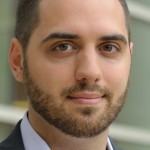
David Molitor, PhD
The HERO Policy Committee, co-chaired by Laurie Whitsel of the American Heart Association and Jim Pshock of Bravo Wellness, is pleased to invite all HERO members to join the committee’s next meeting, which we will conduct as a webinar.
We are hosting Dr. David Molitor who is one of the investigators in the recently released Illinois Workplace Wellness Study. This research is based on a large, randomized controlled trial of a comprehensive wellness program at the University of Illinois at Urbana-Champaign. The study reports on first year data relating to participation, behavior change and health care utilization.
Relating to the work of our Policy Committee, we will be particularly focused on the effects of financial incentives on participation and examine demographic differences and peer effects on participation. We will discuss how the Illinois study findings may help to inform guidance to EEOC, AARP and others seeking clarification on the impact of the ACA wellness provisions on effectiveness and equity in worksite wellness.
Dr. David Molitor is the Assistant Professor of Finance at the University of Illinois at Urbana-Champaign. Other appointments include Research Associate, Center for Business and Public Policy and Faculty Research Fellow, National Bureau of Economic Research. David earned his PhD in Economics from Massachusetts Institute of Technology in 2012 and a BS in Math and Economics from the University of Minnesota in 2007.
David’s research explores factors that shape health and health care delivery in the United States, with a focus on physician behavior, technology adoption, and environmental adaptation. He is a Principal Investigator of the Illinois Workplace Wellness Study, a large-scale field experiment of workplace wellness conducted at the University of Illinois. His work has been supported by the National Institutes of Health, the National Science Foundation, J-PAL North America, and the Robert Wood Johnson Foundation.
This webinar is available to members only. Log in to view.
Great States of Health: How well are states doing in supporting worksite health promotion?
Original air date: February 21, 2018
Guest Panelists:

Siobahn Gilchrist, JD, MPH

Dyann Matson Koffman, DrPH, MPH

Jennifer VanderVeur, JD
Most states have laws encouraging the adoption of Worksite Health Promotion programs. How does your state’s health promotion efforts compare to others and what can we be doing to advocate for state policies that support a vision of healthy workplaces throughout America? This webinar, hosted jointly by HERO and the American Journal of Health Promotion shares results from the study: An Overview of State Policies Supporting Worksite Health Promotion Programs. This paper was recognized by the Journal’s editors as one of our 2017 “Papers of the Year.” Authors Siobhan Gilchrist, Jennifer VanderVeur, and Dyann Matson Koffman will join host Paul Terry to describe and discuss how state laws can encourage employers and employer-provided insurance companies to offer comprehensive WHP programs.
Please join us to learn more about how state laws are enabling greater success in worksite health promotion and what the future holds for awareness and advocacy in advancing healthy workplaces and great states of health. As always in HERO webinars, we will poll the audience for your views and encourage questions and interactions with our experts.
Siobahn Gilchrist has been working to expand the CDC’s Division for Heart Disease and Stroke Prevention’s policy research capacity since 2009 through researching policies and laws supported by scientific and practice-based evidence, implementing policy surveillance efforts to analyze and report the extent to which states adopt such laws, and conducting policy implementation and outcome studies for the effective control and prevention of cardiovascular diseases.
She earned a law degree in 2006 after leading projects as an epidemiologist in local, state, national and international public health agencies to advance science-based programs and policies that lead to positive public health outcomes She became interested in health policy while working with ministries of health in several countries to institutionalize evidence-based decision-making through health information systems projects sponsored by CDC and WHO. Her experience as the DeKalb County, Georgia, district epidemiologist working with neighborhood communities, law-enforcement, city planners and policy makers spurred her interest in using the legal system to improve health outcomes.
Before returning to CDC, Ms. Gilchrist practiced law in a small law firm focusing on zoning and property issues and provided legal representation to clients through the Atlanta Volunteer Lawyers Foundation and other nonprofit organizations.
Dr. Matson Koffman is a Senior Health Scientist and Certified Health Education Specialist. Since 2013, she has worked in the CDC Office of the Associate Director for Science on the Guidelines and Recommendations Activity Team. She completed her doctorate in public health promotion from Loma Linda University and master’s degree in public health from the University of California, Berkeley.
Dr. Matson Koffman coordinated a number of health promotion initiatives, including one for a large private company, General Dynamics, before coming to the CDC in 1992. She has held a variety of health scientist positions at the CDC. She promotes health in the U.S. by providing scientific clearance and consultation for CDC guideline development, conducting and translating “what works” evidence-based science into practice, and providing technical assistance to business leaders, state health departments, scientists, and other partners in the U.S. She has authored over 50 peer-reviewed manuscripts and developed numerous tools and products, primarily related to health promotion in worksite and healthcare settings. For example, she led the development of The CDC Worksite HealthScoreCard, and co-authored A Purchaser’s Guide to Clinical Preventive Services: Moving Science into Coverage. She currently serves on the steering committee of the National Healthy Worksite Program and contributes to various projects focusing on building cultures of health in worksites, led by the Health Enhancement Research Organization (HERO).
She is married and lives in Tucker, Georgia. She enjoys running, swimming, dancing, skiing, traveling, and watching her two children perform in theatre, dance, and ice skating.
Jennifer VanderVeur received her Juris Doctor from New England School of Law in May 2011. She worked as an ORISE Fellow, then as an IHRC contractor at the Centers for Disease Control and Prevention since 2012, with a primary focus on analyzing health law policy. She has worked on worksite health promotion program research and legal policy analysis for over three years.
This webinar is available to members only. Log in to view.
Meeting the Needs of Sub-Population Cultures
Original air date: January 17, 2018
Guest Panelists:
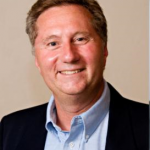
Judd Allen, PhD
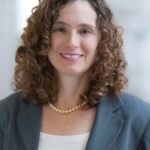
Mary Marzec, PhD
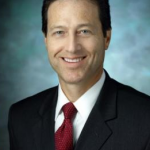
Richard Safeer, MD
Addressing the needs of sub-cultures is essential to fostering a culture of health. For example, something that may work great on the day shift may have little traction on the night shift. The norms and needs of machine operators may be very different from those in sales.
- How do you identify sub-cultures?
- How do you empower managers and champions to align programs and practices with diverse sub-cultures?
- How will you address the needs of sub-cultures without undermining the brand and core themes of your program?
Explore these fundamental challenges and other related topics with culture experts Judd Allen, PhD, Mary Marzec, PhD, and Richard Safeer, MD.
Dr. Judd Allen, PhD is President of the Human Resources Institute, LLC, a research, publishing and consulting firm that focuses on the creation of supportive cultural environments. He earned his PhD in Community Psychology from New York University and serves on the editorial board of the American Journal of Health Promotion. Dr. Allen supports over 200 health and wellness professionals in their Wellness Culture Coaching work. Dr. Allen has assisted several hundred government, business and community settings to bring about lasting and positive culture change. Dr. Allen has served on the Board of Directors of the National Wellness Institute, as a Senior Research Analyst at Memorial Sloan-Kettering Cancer Center and on the Vermont Governor’s Council for Physical Fitness and Sports. Dr. Allen has authored more than 50 books, journal articles, training manuals and software titles. His most recent books are Leading for Purpose, Culture Change Planner, The Social Climate Toolkit, The Cultural Analysis Toolkit, A Family Guide to Wellness, Kitchen Table Talks for Wellness, Bringing Wellness Home, Wellness Leadership and Healthy Habits, Helpful Friends. Further information about Judd’s work is available at www.healthyculture.com. Judd has completed more than 30 New York City Marathons, multiple Ironman distance triathlons and long distance cross-country ski races. He lives in Burlington, Vermont.
Dr. Mary Marzec, PhD is a Senior Researcher and Consultant with RedBrick Health. She leads the workplace culture group and contributes to outcomes research as part of RedBrick’s health strategy team. Dr. Marzec has over 12 years’ experience working with employers on population health and health risk reduction strategies. Her areas of focus are stress, and leveraging culture to improve well-being program engagement and health. Previously at the University of Michigan, Mary led the development of the Workplace Culture of Health survey, which quantifies health-contributing factors in the environment and culture. This is the core component of RedBrick’s Culture Check™. By identifying strengths and opportunities, organizations can leverage cultural factors to more effectively support the health of their populations. More information about her work and Culture Check can be found at https://home.redbrickhealth.com/health-innovation-blog/. Mary has a master’s degree in Biostatistics and a PhD in Kinesiology, both from the University of Michigan. She has received multiple awards for outstanding research and frequently presents at national conferences.
Dr. Richard Safeer, MD, FAAFP is Medical Director of Employee Health & Wellness at Johns Hopkins HealthCare LLC. Dr. Safeer completed his Bachelor of Science in Nutrition at Cornell University before graduating from medical school at the State University of New York at Buffalo (magna cum laude). He completed his residency in Family Medicine at Franklin Square Hospital Center, in Baltimore, Maryland. After which, he completed a Faculty Development Fellowship at the Virginia Commonwealth University of Medicine in Richmond, Virginia. He is also certified in Clinical Lipidology. Prior to arriving at Hopkins, Dr. Safeer practiced family medicine in Northern Virginia. He was then on the faculty at the George Washington University, serving as the Residency Director of Family Medicine in his last year at the institution. He was the Medical Director of an Occupational Health Center in Baltimore and Wellness Director for the Mid-Atlantic region of the parent company, just before starting at CareFirst BlueCross BlueShield in Baltimore, Maryland as the Medical Director of Preventive Medicine. One of his responsibilities at Hopkins includes addressing the employee health initiative, Healthy at Hopkins. He is also the clinical lead for the Employee Health Plan. He sees patients in the Hopkins Hospital Lipidology clinic.
This webinar is available to members only. Log in to view.
Tailored Outreach and Employee Engagement: How Big Data Analytics can Transform Health and Business Outcomes
Original air date: December 7, 2017
Guest Panelists:
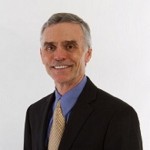
Dr. Michael Parkinson
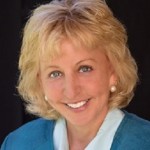
Dr. Wendy Lynch

Dr. Marleece Barber
Join HERO in hosting a brilliant trio of experts for a webinar, Q and A, and audience polls that examine how the UPMC health system has been able to demonstrate a ten-fold improvement in prediction accuracy and a five-fold increase in program engagement for their employees. This unique (but replicable) project combines 1) a comprehensive, integrated data platform, 2) a sophisticated, big-data analytics engine and 3) a sophisticated system of coordinated interventions. Key differentiators include the combination of all benefits, workplace factors, health risks, job performance, and community metrics into a unique, integrated platform where the latest analytic techniques were used. Lastly, they leveraged dozens of existing member touch points through an intelligent, real-time referral system to improve effective programs and timing. Presenters will describe the unique, integrated approach they are taking to support a large workforce and how the newest Big Data capabilities are revolutionizing the ability to tailor outreach to individual needs.
Dr. Marleece Barber is Director of Health, Wellness and Employee Health and Life Insurance Benefits. She also serves as the Chief Medical Officer for the Lockheed Martin Corporation. She is responsible for designing, developing, and executing a health and productivity strategy that includes wellness and preventive care for over 100,000 employees. Prior to joining Lockheed Martin, she was employed by Deere & Company where she created wellness programs and initiatives that emphasized the importance of risk factor reduction in the prevention of chronic disease. She was also the Director of Global Safety, ensuring that appropriate standards were met and programs deployed to prevent workplace injuries. She holds a Bachelor of Science degree in Chemistry from Dillard University; a Doctor of Medicine from the University of Rochester School of Medicine and Dentistry; and a Master of Science from Harvard University School of Public Health. Dr. Barber serves on the Board of Directors of the National Business Group on Health and is an inaugural member of the Institute of Medicine’s Public-Private Partnerships for Global Health and Safety Committee. She is also on the Board of Directors for the Leapfrog Group. The wife and mother of two children is also a talented singer and songwriter of inspirational music.
Dr. Wendy Lynch has been making the connection between human and business performance for over 30 years. Her career has included roles as faculty at the University of Colorado Health Sciences Center, Vice President of Strategic Development at HCMS Group, Principal at Mercer Human Resource Consulting and on the Board of Directors for two publicly-traded companies. Now Dr. Lynch runs her own consulting firm and holds an adjunct position of Associate Professor at IUPUI. Dr. Lynch has applied her skills in research design and evaluation to several pivotal studies in the fields of health measurement, consumer engagement, and productivity assessment. Her current efforts focus on the application of Big Data solutions in Human Capital Management. She has consulted to dozens of Fortune 100 companies during her career. A frequent speaker, and author of over 100 articles and reports, Dr. Lynch has also published three books. Most recently, she co-authored Get to What Matters, highlighting effective listening tools and questions for business professionals.
Dr. Michael Parkinson is the Senior Medical Director overseeing employer health and productivity strategies for UPMC Health Plan and WorkPartners. Mike is a Past President of the American College of Preventive Medicine, the national medical specialty society of physicians trained in and committed to disease prevention and systems-based approaches to improving health and healthcare. He formerly was EVP, Chief Health and Medical Officer of Lumenos, a pioneer of consumer-directed health plans and a subsidiary of Wellpoint. A retired Air Force colonel, he served as associate director of medical programs and resources in the Office of the Surgeon General where he was responsible for policy and planning for over 2 million beneficiaries, 70 facilities and a $4 billion budget. While assigned to the US Public Health Service, he provided oversight of federal programs in public health, geriatrics and preventive medicine training. He served on the Institute of Medicine Committee on NASA employee health programs, and as faculty for the 14-cities Robert Wood Johnson Foundation “Aligning Forces for Quality” project. He is a board member of the American Heart Association Great Rivers Affiliate, University of Iowa NIOSH Total Worker Health Center and the Defense Health Board Healthcare Delivery Subcommittee. Mike serves on the editorial boards of the American Journal of Preventive Medicine and the American Journal of Medical Quality. He obtained his AB from Cornell, MD from George Washington, family practice training at the UCLA and his MPH, preventive medicine residency and chief residency at Johns Hopkins.
This webinar is available to members only. Log in to view.
The Association of Employee Engagement at Work With Health Risks and Presenteeism
Original air date: November 15, 2017
Guest Panelists:

Wayne N. Burton, MD

Alyssa B. Schultz, PhD
Research clearly demonstrates a link between employee engagement in their work and business outcomes that leaders care about; and many employers are keenly interested in strategies to increase levels of engagement.
An emerging question for the wellness profession is how employee engagement is linked to health and how to leverage such data to support a broader value proposition for wellness initiatives.
Join us as Drs. Wayne Burton and Alyssa Schultz share their recently published research study that examines the relationships between health, engagement, and presenteeism and discuss the practical implications of their findings.
Wayne N. Burton, MD was the Corporate Medical Director for American Express from 2009 to 2017. Previously he was the Corporate Medical Director for JPMorgan Chase and its legacy banks from 1982 to 2009. He graduated from the University of California at Santa Barbara and attended the University of Oregon Medical School. He completed his residency in internal medicine and was chief medical resident at Northwestern Memorial Hospital in Chicago, Illinois. He is a Fellow of the American College of Physicians, the Institute of Medicine of Chicago and the American College of Occupational and Environmental Medicine.
Since 1978, Dr. Burton has been an associate professor of clinical medicine at Northwestern University Medical School. He is also an adjunct professor of Environmental & Occupational Sciences at the University of Illinois at Chicago. He is on the editorial boards of Population Health Management and the Journal of Health and Productivity and has authored or co-authored almost 100 articles on various aspects of employee health and productivity, pharmacoeconomics and disease management.
Alyssa B. Schultz, PhD has more than twenty years of experience researching various aspects of employee health and economic outcomes such as absenteeism, health care costs and on-the-job productivity loss. Her work has been focused on the relationship between health and health behaviors on a variety of outcome measures related to vitality, productivity, and cost. Her academic background includes degrees in exercise physiology, kinesiology, and health promotion. This combination of experience and interest has served her well when analyzing the impact of health promotion initiatives at a variety of organizations during her tenure at the University of Michigan Health Management Research Center in Ann Arbor, MI. She has been the recipient of several awards including excellence in publishing, a graduate fellowship award and a presidential scholarship.
This webinar is available to members only. Log in to view.
Making Healthy Eating Policy Practice
Original air date: September 26, 2017
Guest Panelists:

Michael W. Beets, MEd, MPH, PhD

R. Glenn Weaver, PhD
What Can Workplace Health Promoters Learn from Food Policy and Practices in Schools?
If “building a culture of health” is to become more than a bromide in workplace health promotion, examples of policies that transform a culture and become commonly accepted are essential. Research into the health benefits of food policy changes in schools offers some of the most compelling evidence that cultures can be changed in real life systems. But schools are systems where paternalism and choice architecture is commonly accepted, some would say even expected. Can what we’ve learned from school-based food policy be applied at workplaces where libertarianism and paternalism sometimes coexist but other times cause conflict? To examine such questions, we have invited an encore webinar presentation from authors of one of the American Journal of Health Promotion’s Papers of the Year from 2016. Our guests Dr. Michael Beets and Dr. Glenn Weaver led a randomized controlled trial on how changes in food quality and costs affected food consumption. They will summarize their findings and offer us an update on their latest studies. Dr. Beets refers to himself as a “public health commonsense’ist” working to harness “real life” systems and help shape the direction of the field of public health interventions targeting childhood obesity. Dr. Weaver conducts research in schools and out of school time programs to address unhealthy weight gain in youth. As always, we will leave plenty of time for your questions and poll you on your views about whether school-based food policies have takeaway lessons ready for primetime in worksite settings.
This webinar is available to members only. Log in to view.
Workplace Performance Committee Guest Presentation
Original air date: August 17, 2017
Guest Panelists:

Mark Poindexter, Shell Oil

Krystal Sexton, Shell Oil
Shell’s Human Performance and Care (HP&C) initiative places an intentional lens of care on all its programs aimed at improving human performance. Covering physical, psychological, and emotional well-being, HP&C contains a number of programs, initiatives, and tool kits to help teams and individuals perform at their best. In this talk, two programs, Resilience and Care for People, will be highlighted, along with their impacts on engagement and safety throughout Shell.
This webinar is available to members only. Log in to view.
Building Cultures of Resilience, One Manager at a Time
Original air date: August 10, 2017
Guest Panelists:

Dr. Sara Johnson, Pro-Change Behavior Systems
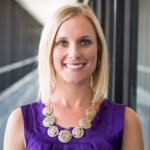
Megan Hammes, Director for University of Iowa
- The University of Iowa Story – How “Building Resilience at UIowa” is a health and well-being initiative that is weaving its way into larger University strategies
- Managers as Multipliers – Data from “Manager on the Move” program and case-building for how managers are a critical component in a culture that supports well-being
- Program Sustainability – Sharing outcomes with leadership, fostering an environment where manager supported efforts can be offered
This webinar is available to members only. Log in to view.
Awakening Compassion at Work: New Avenues for Linking Well-Being and Performance
Original air date: July 20, 2017
Guest Panelists:

Monica Worline, PhD
Addressing and alleviating suffering doesn’t rise to the top of most resilience initiatives, leadership training programs, or organizational development initiatives, and yet the evidence is growing that it should! Compassion is an overlooked, undervalued aspect of today’s workplaces. This webinar will introduce you to the new science of compassion and marshal evidence from two decades of research, much of it based in real organizations, to show you how to open up new avenues that link human well-being at work with organizational innovation, collaboration, service quality, care delivery, adaptability to change, and retention of talented people. Incorporating yet going beyond interpersonal skills, Monica Worline will share four keys to awakening compassion in your organizations at the systems level. You’ll take away inspiring and practical ideas for organizational change that highlight steps anyone can take – no matter their role – to alleviate suffering and awaken compassion.
This webinar is available to members only. Log in to view.
A Randomized Trial of Social Comparison Feedback and Financial Incentives to Increase Physical Activity
Original air date: July 12, 2017
Guest Panelists:
Dr. Mitesh Patel, MD, MBA, MS
Dr. Kevin Volpp, MD, PhD
HERO and the American Journal of Health Promotion are delighted to host Drs. Mitesh Patel and Kevin Volpp, leaders in the Center for Health Incentives and Behavioral Economics (CHIBE). The Center conducts behavioral economics research aimed at reducing the disease burden from major U.S. public health problems. Volpp and Patel are two of the most prolific researchers in the nation when it comes to examining the effectiveness of workplace and health systems based financial incentives. Originally founded within the Leonard Davis Institute of Health Economics, the CHIBE mission is to inform health policy, improve health care delivery and increase healthy behavior. This webinar was hosted by Dr. Paul Terry. Our expert panel will summarize their current research and allow ample time for participant questions. We also react to your opinions from our webinar polls relating to the use of incentives and discuss the effectiveness of other of your engagement strategies.
This webinar is available to members only. Log in to view.
Employee Wellness Provisions, Privacy and Protections: Keeping up with the EEOC/ADA Rules
Original air date: June 27, 2017
Guest Panelists:
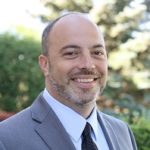
Jim Pshock, Bravo Wellness

Barbara Zabawa, Center for Health and Wellness Law
Though there has yet been a replacement for the Affordable Care Act that Congress would pass, there have been many indications concerning what is and is not likely to change. Join our panel to learn about current trends in the use of incentives and how they fit in an employer’s overall engagement strategy. One of the most telling indicators that changes to wellness provisions will be closely scrutinized has been surrounding the “Preserving Employee Wellness Programs Act” (H.R. 1313). Our panel will review how the bill recognizes employee protections that are already in place and includes specific language relating to non-discrimination based on illness.
This webinar is available to members only. Log in to view.
Advancing Well-being Through a Model for Professional Fulfillment
Original air date: June 8, 2017
Guest Panelists:

Patty Purpur de Vries, MS
Employee stress is a significant concern for employers and is especially critical in health care settings. Many employers have responded by offering employee stress management programs or launching resiliency initiatives which focus predominantly on individualistic approaches. Stanford Medicine identified drivers of burnout in their employees, and leveraged the data to demonstrate business impacts as well as inform development of an initiative to address the issue. Stanford’s model of professional fulfillment integrates individualistic and systemic approaches to building a culture of wellness, efficiency of practice, and personal resilience. Patty will share how they developed the conceptual framework and describe some of the specific initiatives Stanford is using to address physician burnout. We will poll for your reaction to the conceptual framework and discuss how the model can be applied to other industry sectors.
This webinar is available to members only. Log in to view.
What Human Capital Measures Matter Most to the C-Suite?
Original air date: April 26, 2017
Guest Panelists:
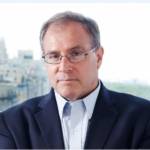
Dr. Derek Yach
What are companies doing to cultivate environments and cultures that create a workforce that leads in well-being? How would we respond if we knew that the C-Suite was more interested in sustainability and people development and less interested in body mass index metrics and cholesterol levels? Instead, what role might measures play that examine how governance, culture, management, and business success all interrelate and contribute to the health of both the company and employees? Dr. Yach will share ideas, trends and recommendations about C-Suite level metrics and discuss report cards and emerging metrics such as sustainability, value on investment and emotional and mental well-being
This webinar is available to members only. Log in to view.
Is there a single most beneficial well-being intervention?
Original air date: April 4, 2017
Guest Panelists:

Stephen G. Post, Ph.D.
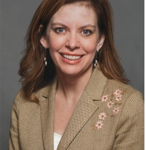
Tracy Hoover, Points of Light Institute’s Giving, Health, and Happiness
What is the most powerful well-being intervention known to mankind? If, as our speakers for this webinar propose, it is 100 hours per year of volunteer work, how should this finding be applied to the work of health promotion? How integrated are your corporate volunteerism policies and programs with your health and well-being initiatives? Many offer incentives for being fit, should we do the same for being happy and good to others? Is there a business case for practicing loving-kindness? Join Dr. Stephen Post and Points of Light Institute’s CEO Tracy Hoover as we explore whether those who give of their time and talent receive more well-being in return than available via any other intervention.
This webinar is available to members only. Log in to view.
What Causes Well-being and Where does Health Fit in?
Original air date: March 1, 2017
Guest Panelists:
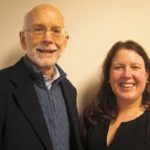
Thomas E. Kottke, MD, MSPH, HealthPartners & Ginger Kakacek, MD, HealthPartners
We have long understood the impact of lifestyle choices such as how tobacco use, inactivity or inadequate sleep affect our health. But how do these decisions compare to others that predict or advance well-being? How does tobacco use, for example, compare to not belonging to groups? What’s more impactful for well-being, healthy eating or healthy thinking? If we are to flourish, should we schedule more fitness club visits or “gratitude visits”? Join Drs. Tom Kottke and Ginger Kakacek, from HealthPartners, for a webinar that explores whether “well-being in all policies” could have greater impact than our more usual advocacy for “health in all policies.” Related to this, what percent of U.S. adults are flourishing? Where we’ve long held that the absence of illness is not health, we’ll explore positive psychology principles and ask whether the absence of mental illness assures the presence of mental health.
This webinar is available to members only. Log in to view.
Reaching the Disaffected: Strategic Approaches to Employer Health and Well-Being Metrics
Original air date: January 11, 2017
Guest Panelists:
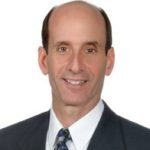
Bruce Sherman, MD, Conduent HR Services (formally Xerox)
Many employers are faced with the dilemma of understanding how their health and well-being programs are performing, and whether their programs are responsive to the needs of everyone, not just the readily engaged. Collecting the right data is critical for this effort to measure as well as maximize the value of employer investments in workforce health. This session describes the unique challenges related to lower income workers, many of whom may be the “disaffected” we heard so much about in the recent election. Dr. Sherman provides pragmatic considerations for employers to use available data sources in order to maximize the value of their greatest asset: their human capital. These approaches are based on an analysis of the relationship of employee wage data with healthcare consumerism engagement, revealing how the findings can provide important insights to help reach the hard to reach.
This webinar is available to members only. Log in to view.
Wednesday Webinar – The Healthy Workplace
Original air date: September 7, 2016
Guest Panelists:
Leigh Stringer, EYP
Phil Williams, Webcor Builders
This webinar is available to members only. Log in to view.
Wearables in Wellness: How Employers are Incorporating Wearable Fitness Tracking Devices into the Workplace
Original air date: July 14, 2015
Guest Panelists:
Jack Bastable, National Practice Leader, Health & Productivity Management
CBIZ Benefits & Insurance Services
Jessica Grossmeier, VP of Research, HERO
EEOC Proposed Regulations: What employers need to know
Original air date: June 4, 2015
Guest Panelists:
Jim Pshock
Founder, CEO and President
Bravo Wellness
Tami Simon
Managing Director
Career Practice and Knowledge Resource Center
Buck Consultants
Don’t Throw Out the Baby with the Bathwater – A Measured Response to Critics of Workplace Health Promotion and Disease Prevention Programs
Original air date: April 22, 2015
Guest Panelists:
Ron Goetzel, PhD
Vice President of Consulting & Applied Research
Truven Health Analytics and Johns Hopkins Bloomberg School of Public Health
Vice Chair, HERO Board of Directors
Connecting the Dots: What Business Leaders Think about Employee Health, Productivity, and Performance
Original air date: March 18, 2015
Guest Panelists:
Jessica Grossmeier, PhD, MPH, VP of Research, HERO
Nikki Hudsmith, MBA, VP, Consulting Services, Performance pH
HERO EHM Best Practices Scorecard in collaboration with Mercer©. The move from Version 3 to Version 4
Original air date: January 29, 2015
Guest Panelists:
Steven Noeldner, Partner, Mercer
This webinar is available to members only. Log in to view.
Developing Highly Engaged Organizations that Improve the Quality of Human Life
Original air date: August 8, 2013
Guest Panelists:
Jack Groppel, PhD
Co-founder of the Human Performance Institute
Vice President of Applied Science and Performance Training
Wellness & Prevention, Inc.
Julia Brandon, PhD
Director of Environment, Health & Safety Excellence
GlaxoSmithKline
HERO EHM Best Practices Scorecard in Collaboration with Mercer: Findings and Functions
Original air date: June 19, 2013
Guest Panelists:
Beth Umland, Research Director, Mercer
Steven Noeldner, PhD, Partner, Mercer
A Community Based Proactive Health Care Model for Small Businesses
Original air date: January 23, 2013
Guest Panelists:
William E Primmerman – Project Director, Greater Somerset Public Health Collaborative
Kala Ladenheim, PhD, MSPH – Senior Researcher, Medical Care Development, Inc.
Organizational Energy: A Primer on Improving Health
Original air date: July 11, 2012
Guest Panelists:
Jack Groppel, PhD, Co-Founder of the Human Performance Institute, Vice President of Applied Science and Performance Training, Wellness & Prevention, Inc., a Johnson & Johnson company
A Strategic Approach to Employee Well-Being and Organizational Performance
Original air date: March 21, 2012
Guest Panelists:
David W. Ballard, PsyD, MBA – Assistant Executive Director, American Psychological Association
Connie Roy-Czyzowski, SPHR, CCP – Vice President, Human Resources, Northeast Delta Dental
Obesity in America: Putting Strategies into Practice in the Worksite
Original air date: April 1, 2011
Guest Panelists:
John White, PhD, Global Health Services Prevention and Health Culture Leader, Dow Chemical Company
Anne C. Haddix, PhD, Senior Policy Advisor, CDC
©2026 Health Enhancement Research Organization ‘HERO’
